Chemistry and Chemists № 3 2025
Journal of Chemists-Enthusiasts
| Content | Chemistry experiments - video | Physics experiments - video | Home Page - Chemistry and Chemists |
|
Chemistry and Chemists № 3 2025 Journal of Chemists-Enthusiasts |
Hexamethylene Triperoxide Diamine (HMTD): Storage Stability - p.4, 5 Chemist |
|
Having noticed a mistake in the text, allocate it and press Ctrl-Enter
Explosion of HMTD after 11 Months of Storage - Part 4
After 11 months had passed, I tested the second sample (1 g of HMTD). The measured electrical resistance was 0.6 Ohm. I secured the cylinder in a retort stand, set up a protective shield, and placed an inverted tin can beneath the cylinder. To protect my hearing, I put on headphones. Then, I connected a 6-volt lead-acid battery to the contacts.
Взрыв ГМТД после 11 месяцев хранения - Часть 4 White smoke began to rise from the cylinder's stopper. At first, it escaped slowly, but then it shot upward in a strong jet. A short time later, a loud explosion followed, and the can was thrown aside. Because the headphones absorbed the sound, I could not tell at the moment whether the substance had detonated or whether the cylinder had merely been blown away by the jet thrust of the escaping gases. On inspection, it became clear what had happened: the cylinder had been reduced to dust, and the bottom of the tin can had been torn out. The fragments had struck the base of the stand, leaving small craters. Several shards of the tin can were also scattered across the table and floor. Despite the violence of the explosion, the hot bridge wire remained intact. Thus, the HMTD sample retained its ability to detonate even after 11 months of storage in contact with titanium wire. However, the explosion occurred with a noticeable delay—apparently because the layers of HMTD in direct contact with the titanium had already decomposed. |
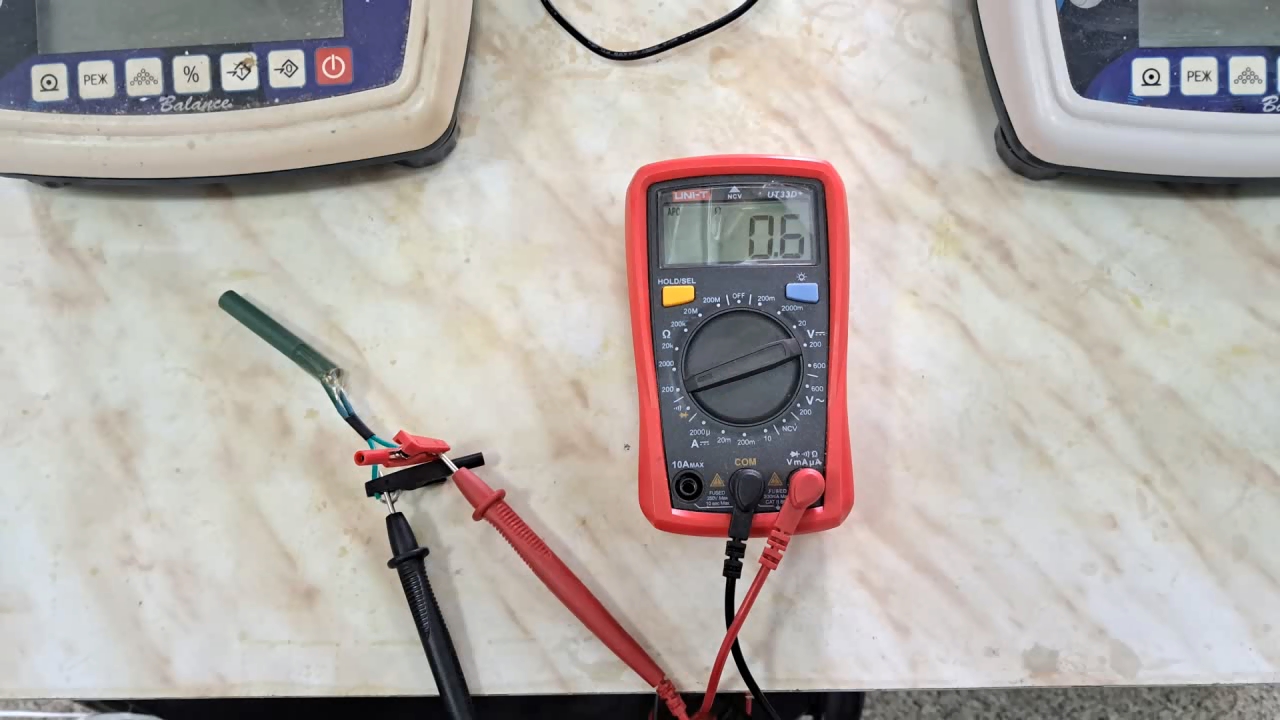
Explosion of HMTD after 11 Months of Storage |
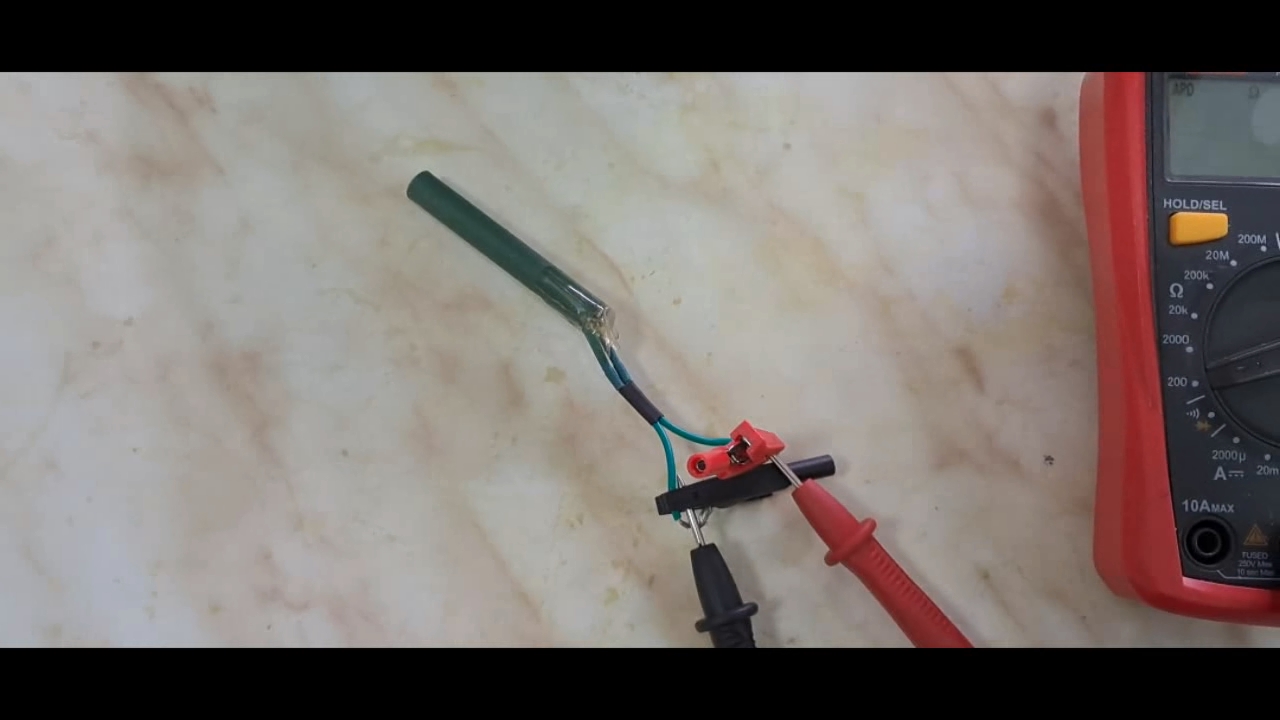
|
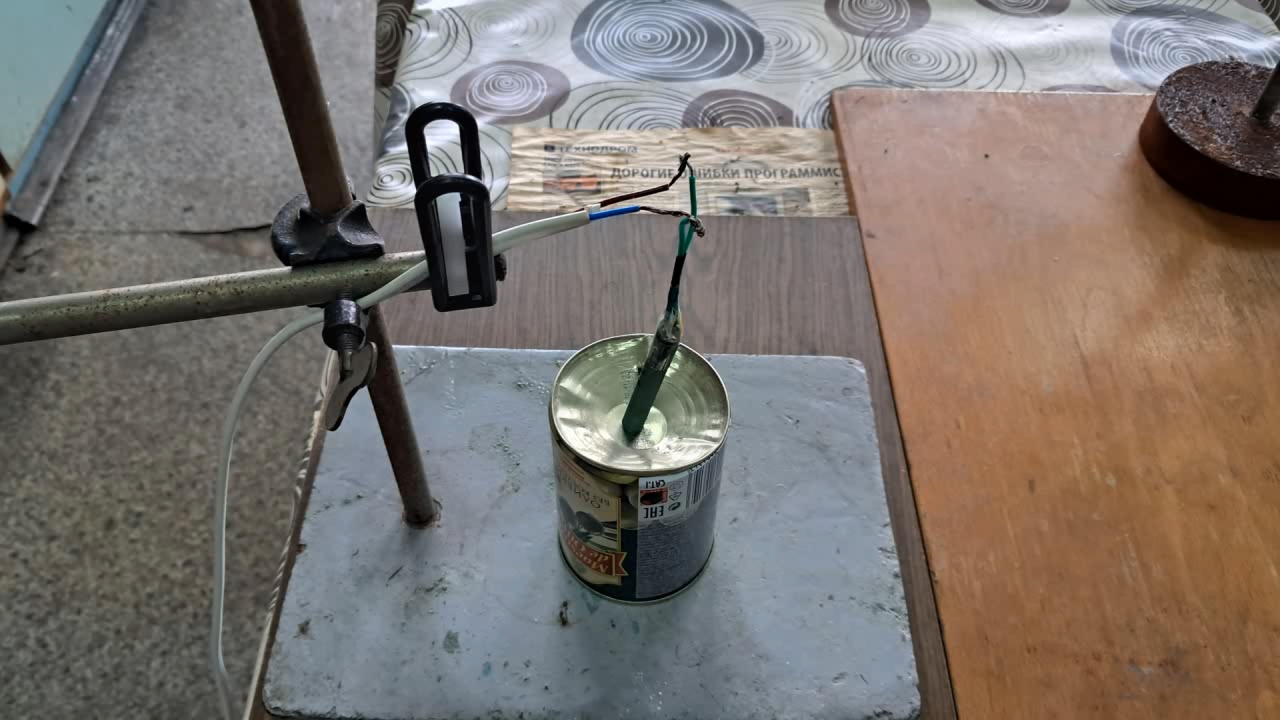
|
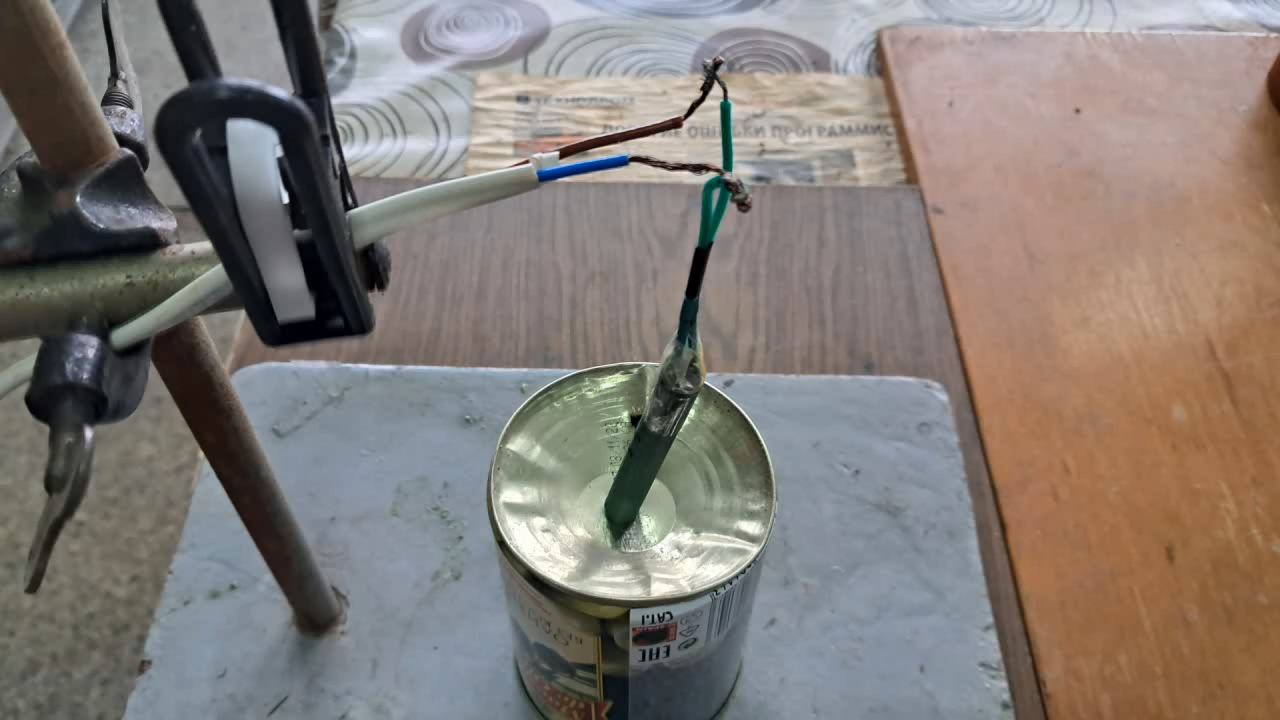
|
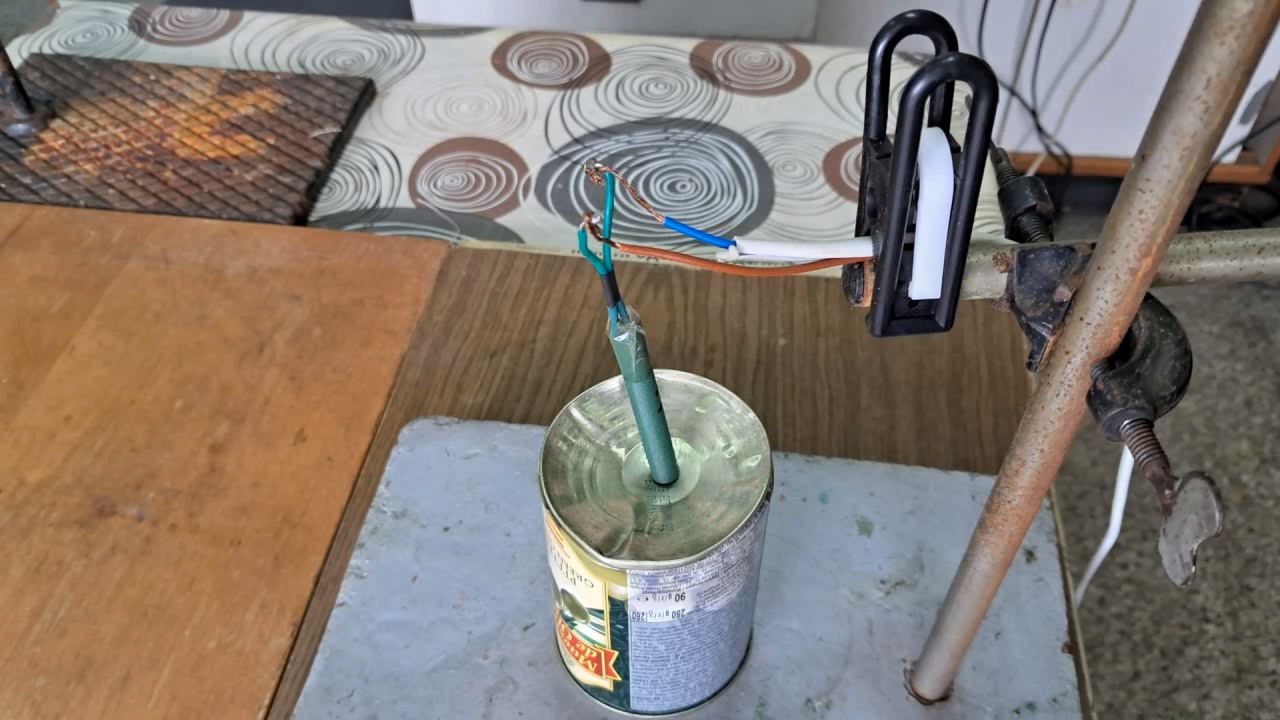
|
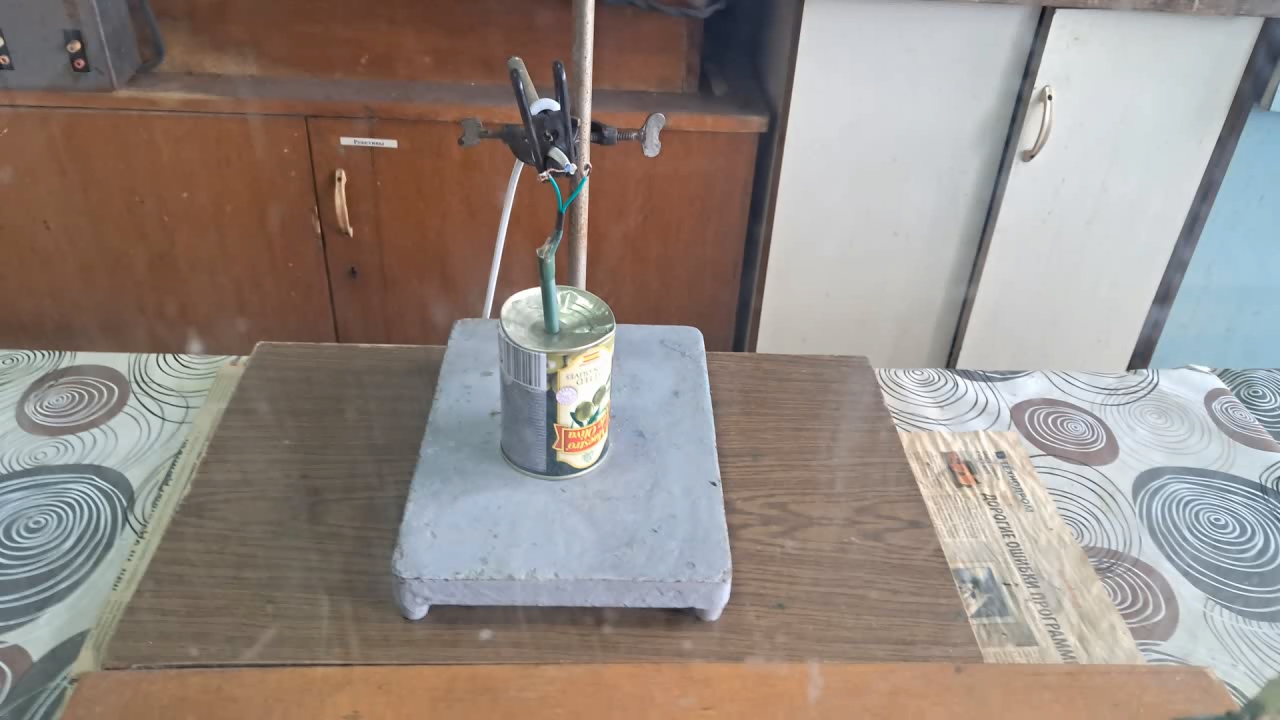
|
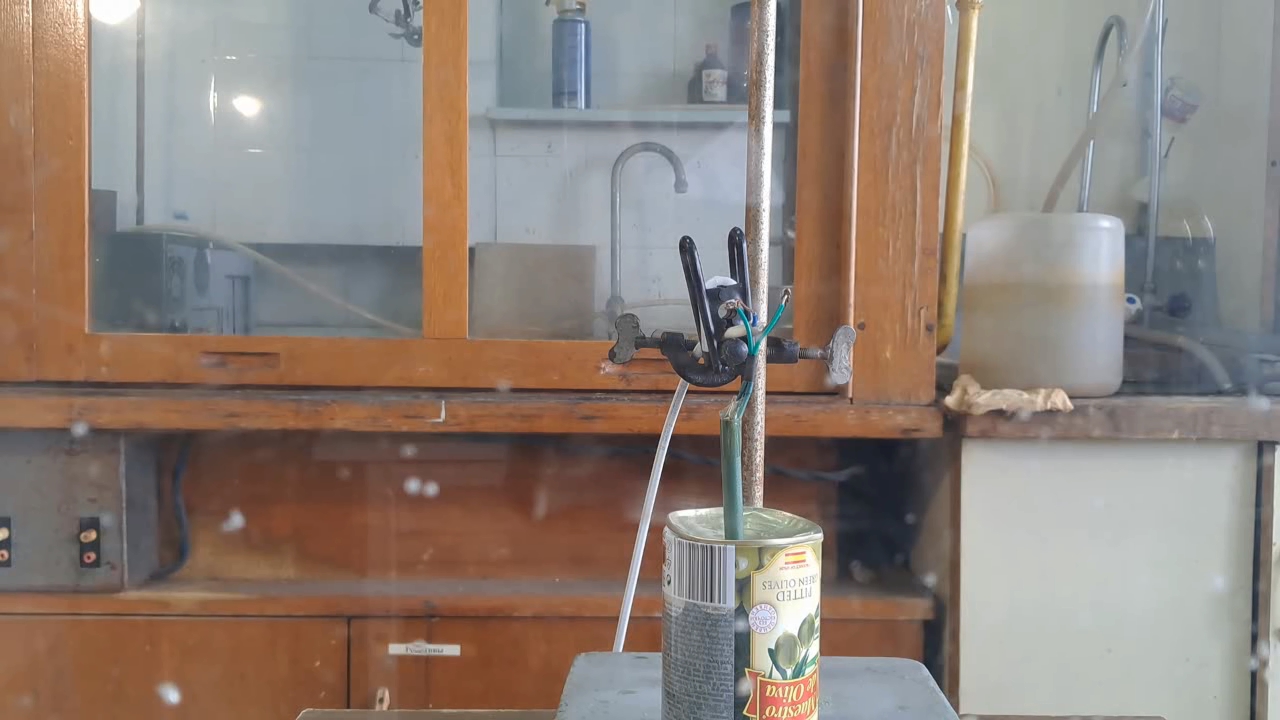
|
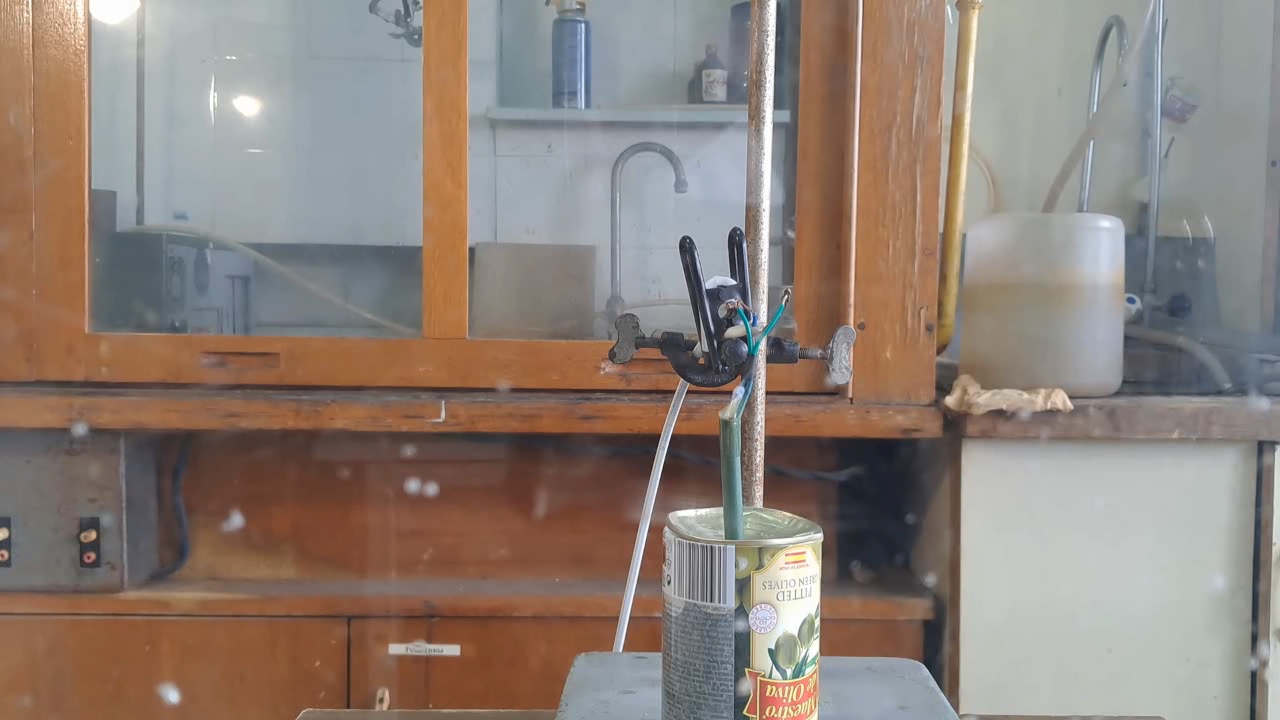
|
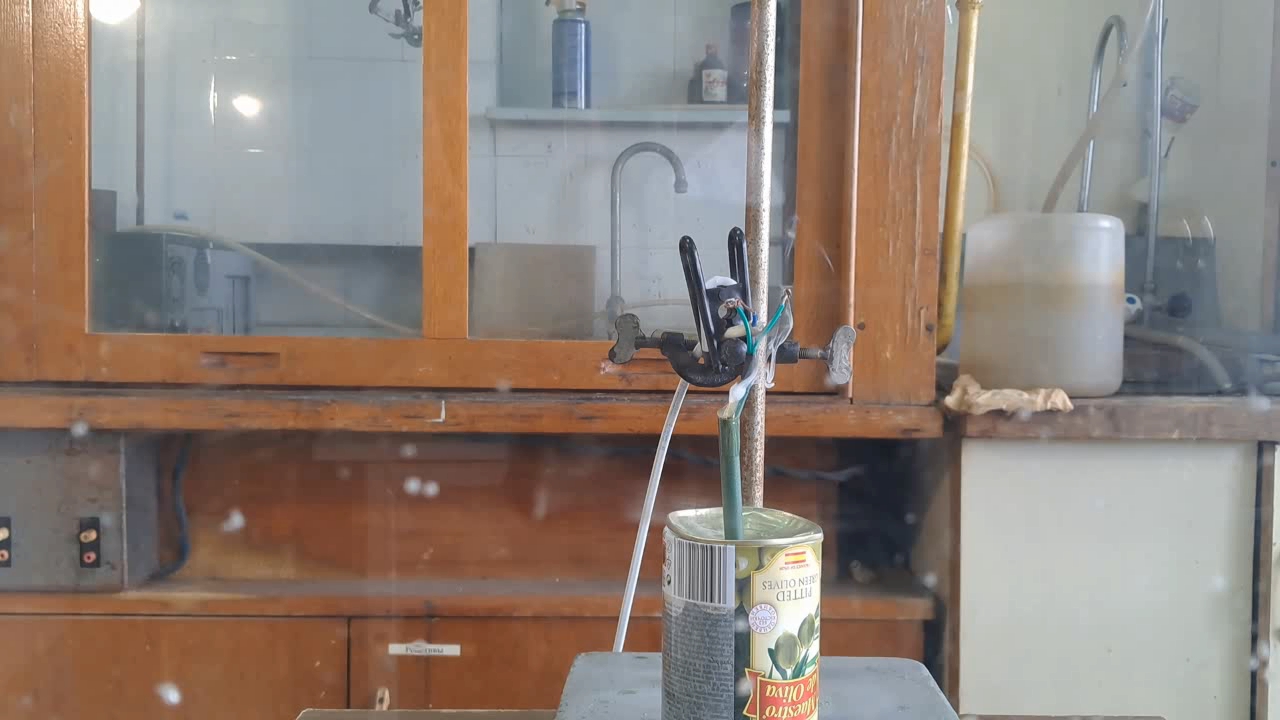
|
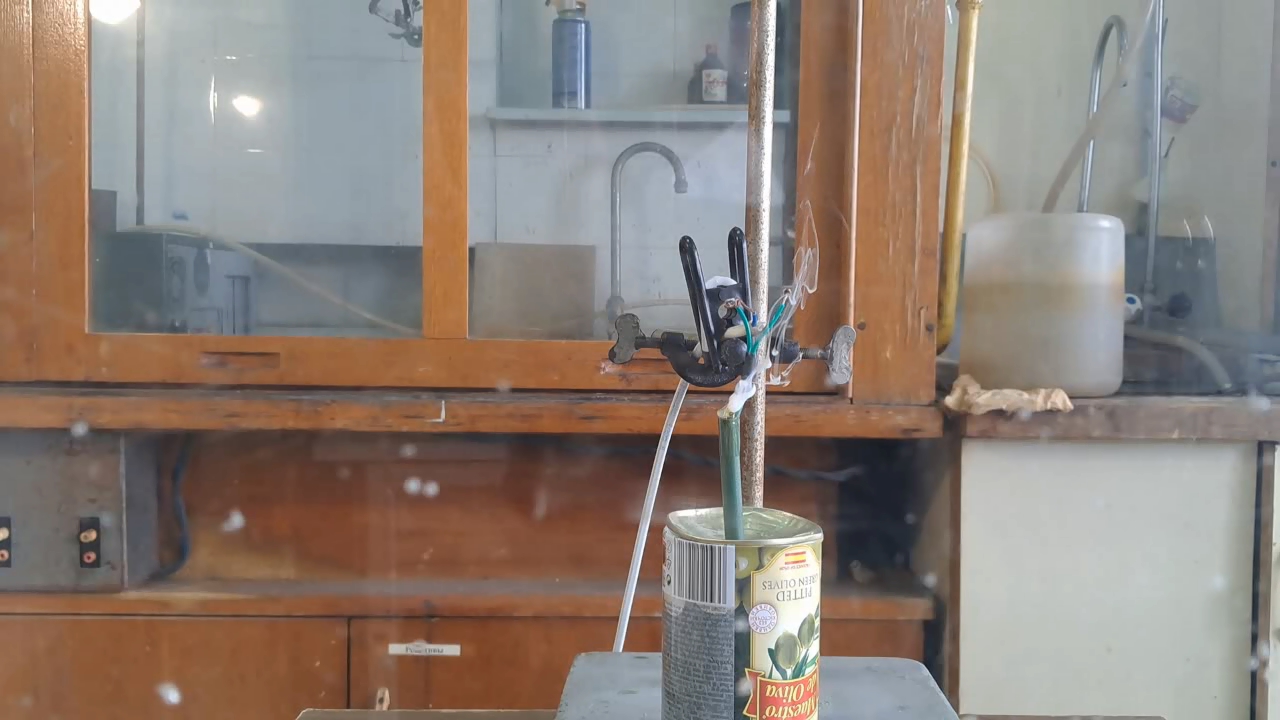
|
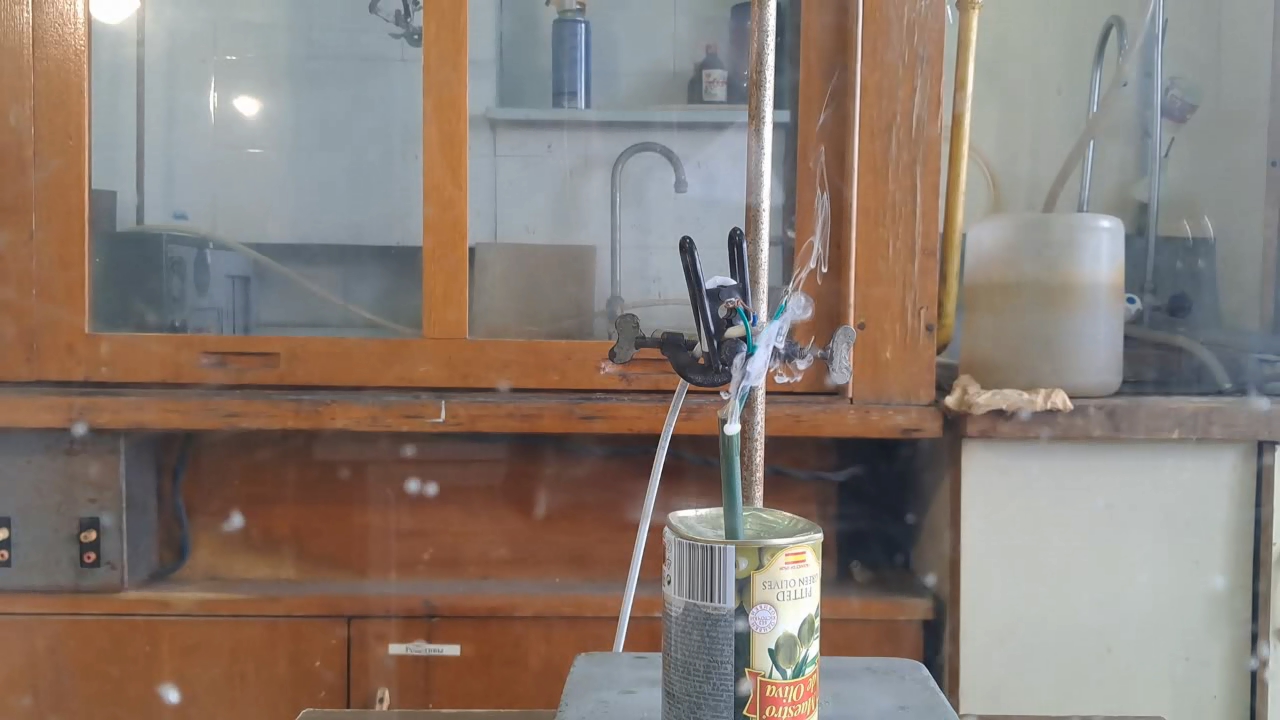
|
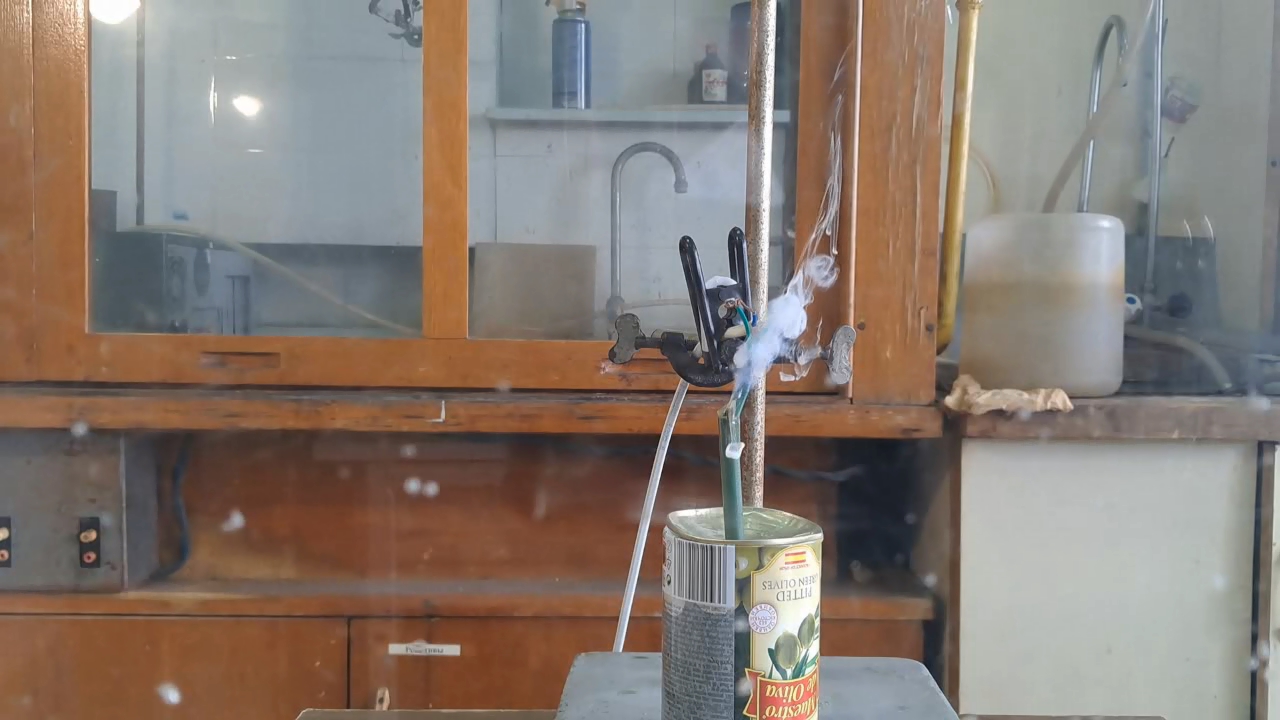
|
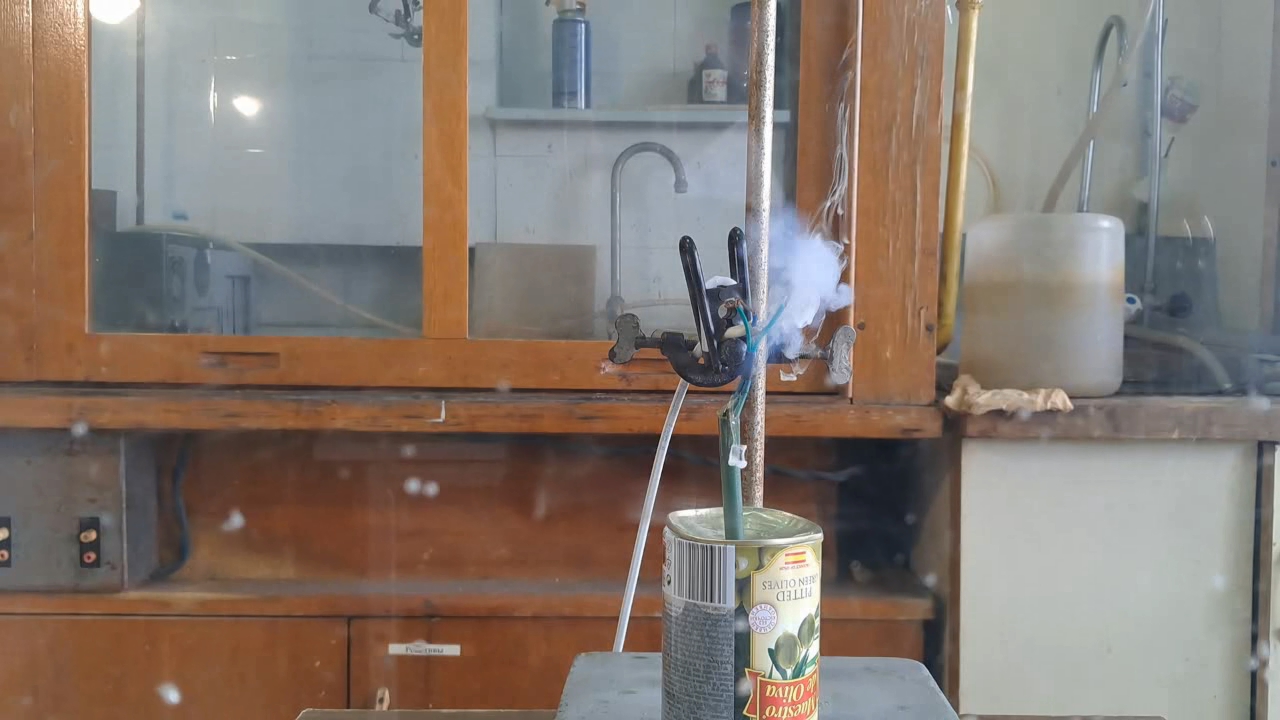
|
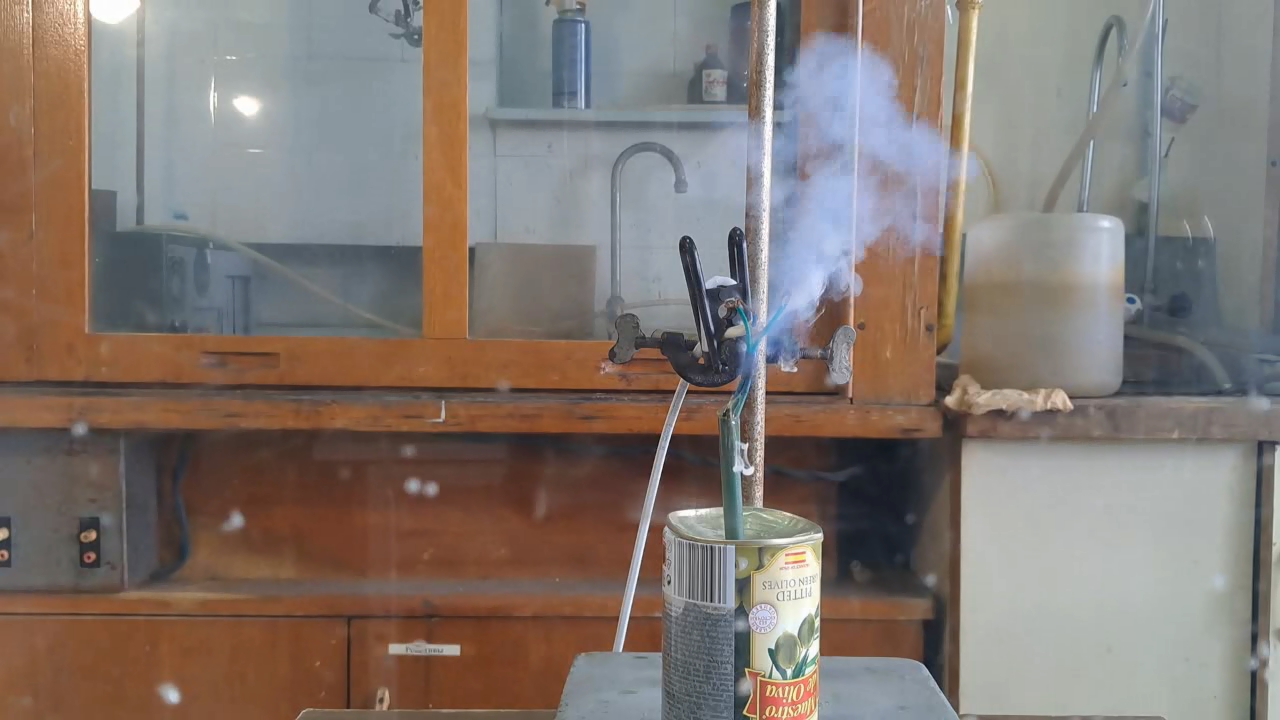
|
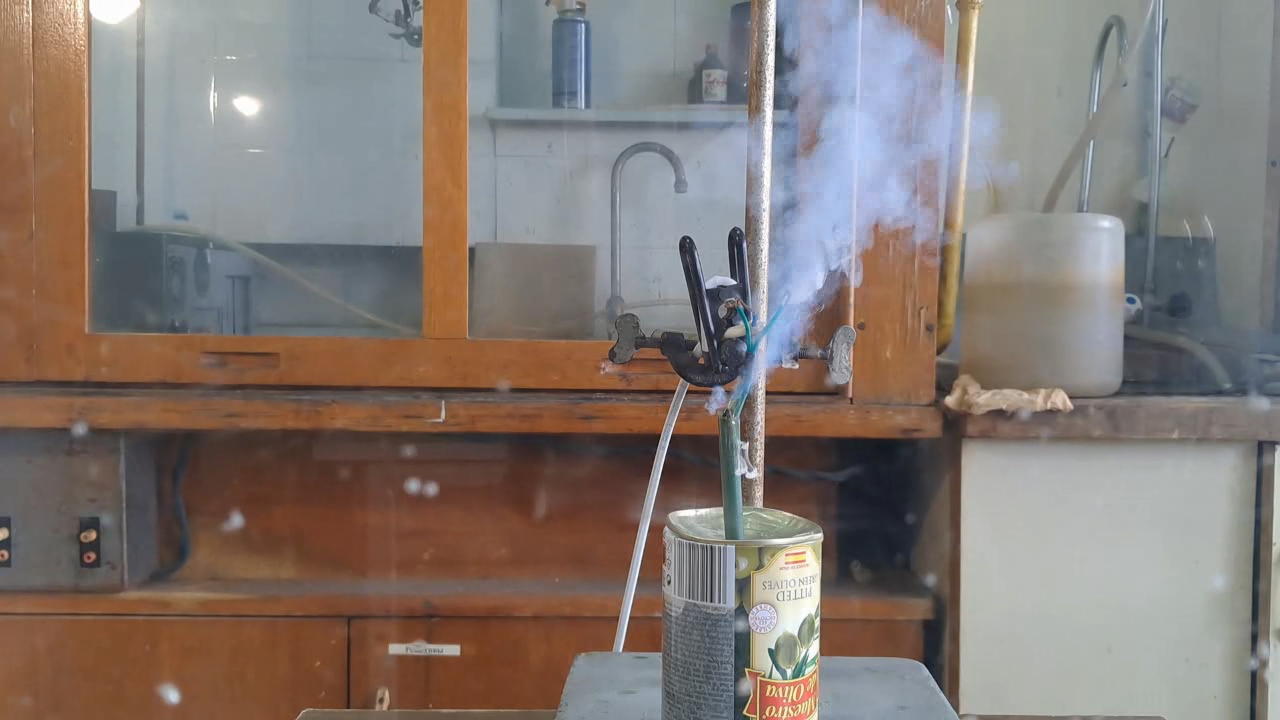
|
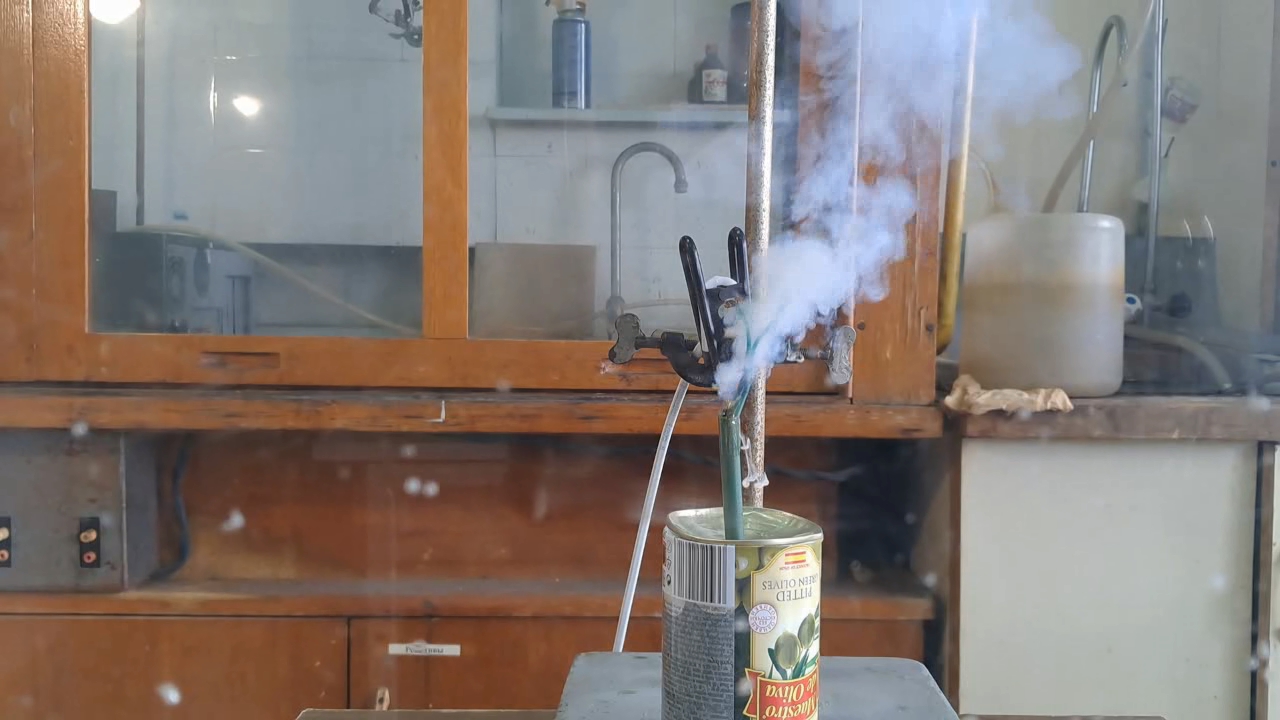
|
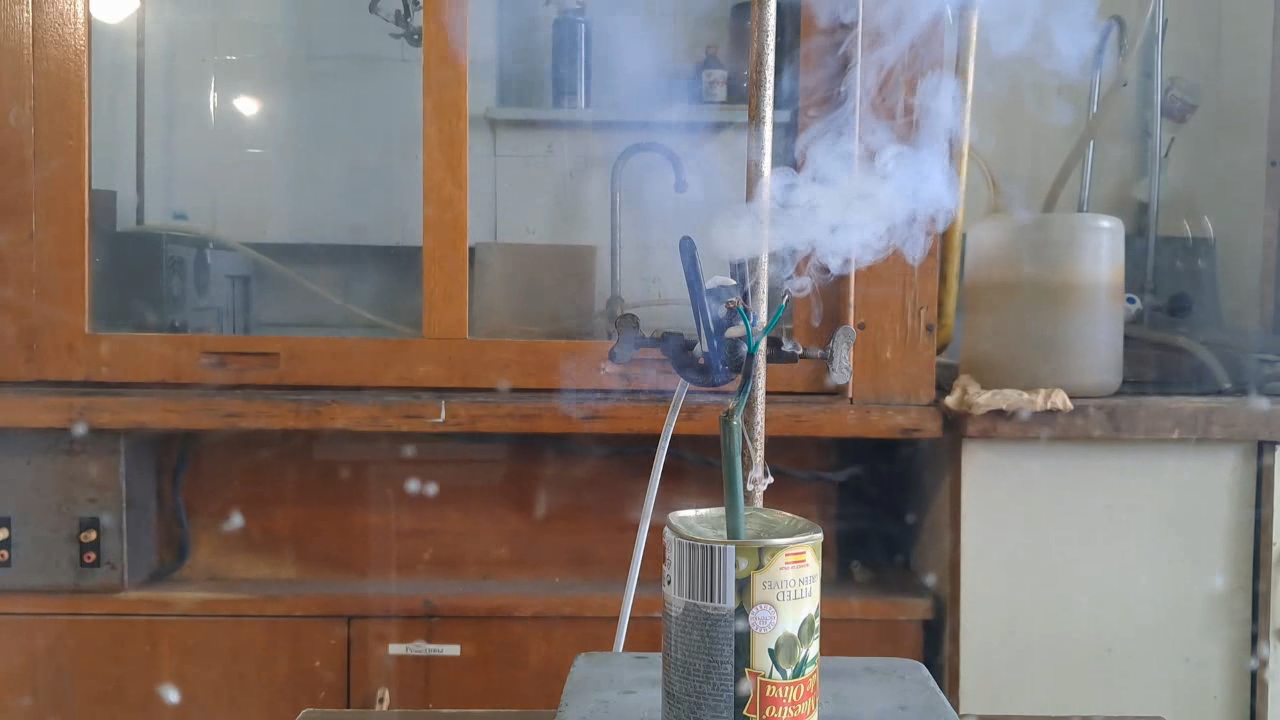
|
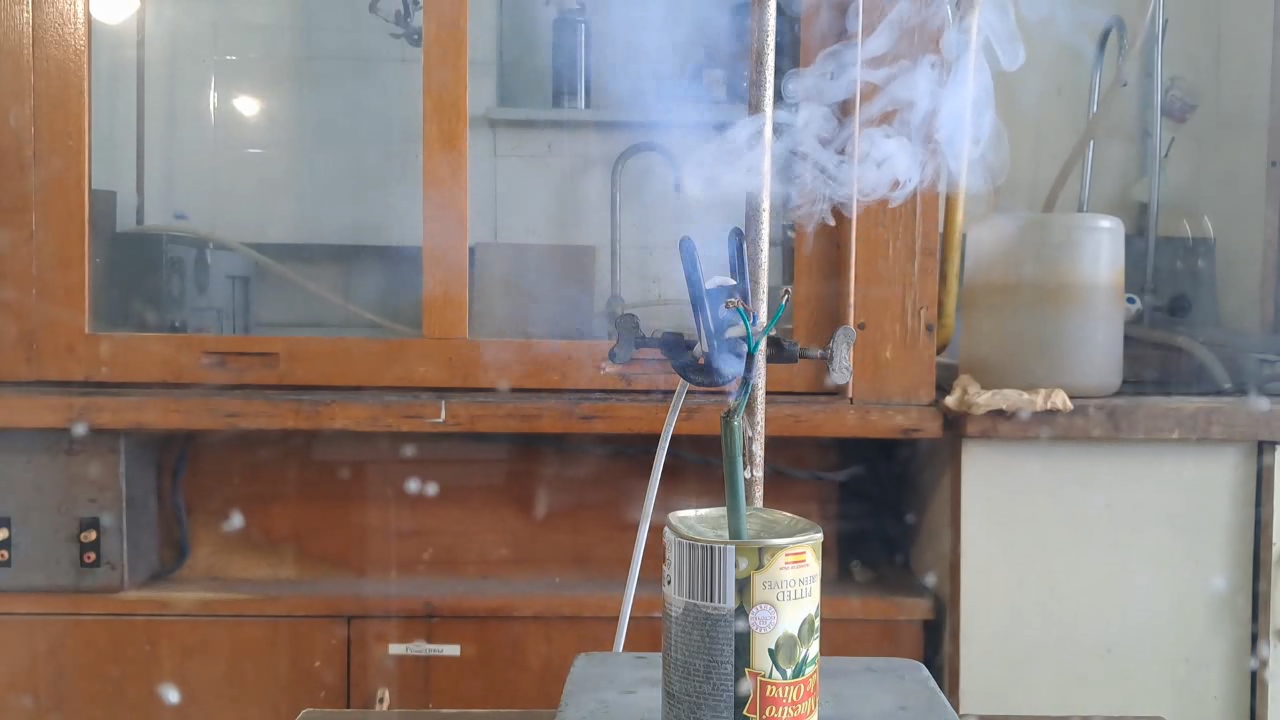
|
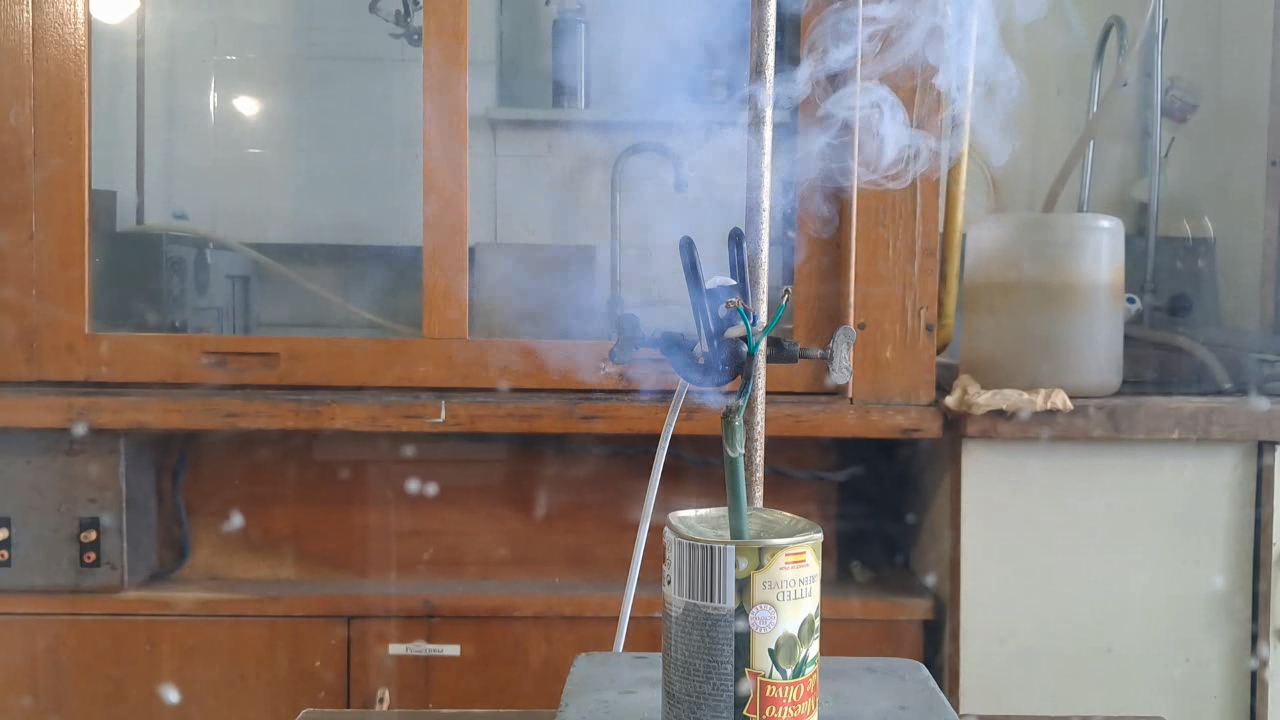
|
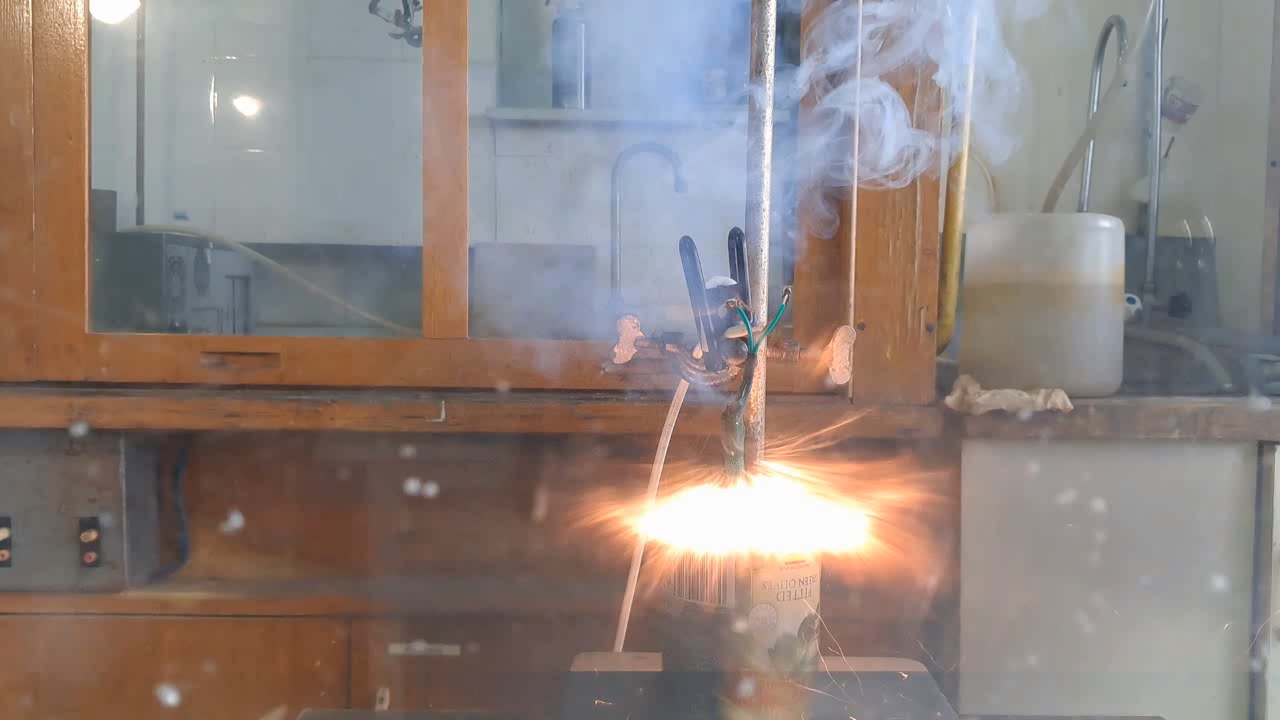
|
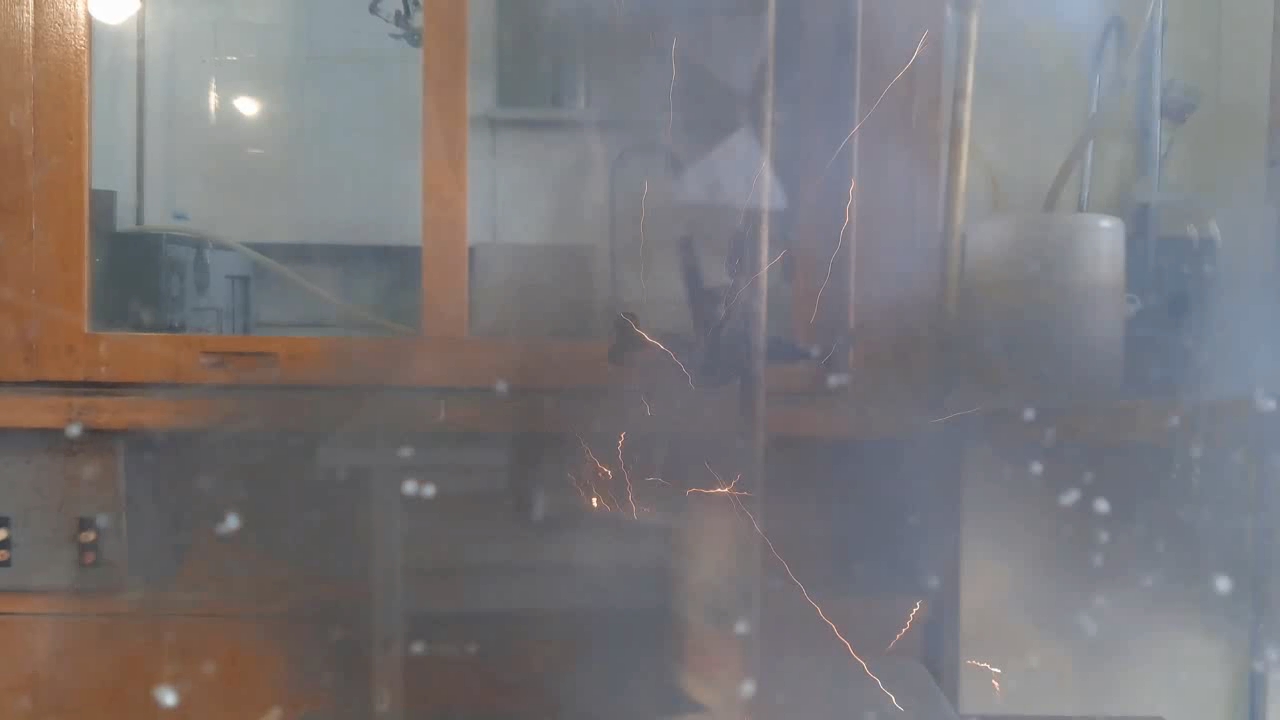
|
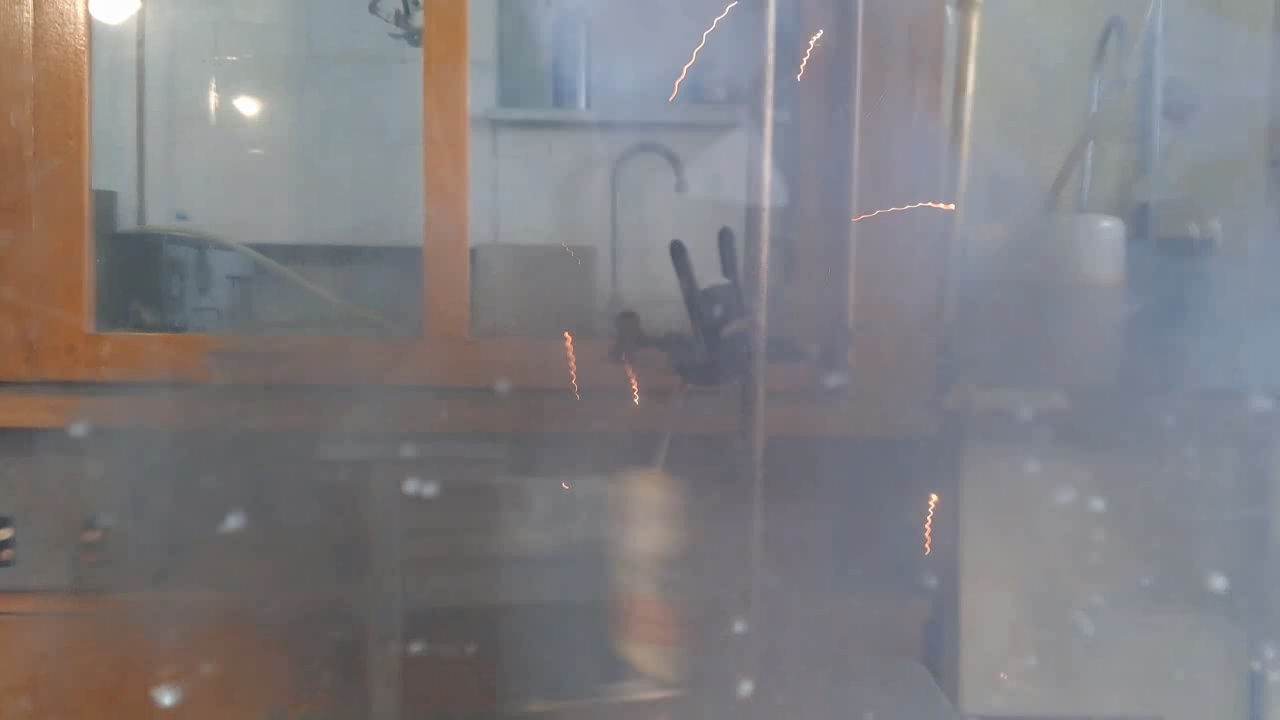
|
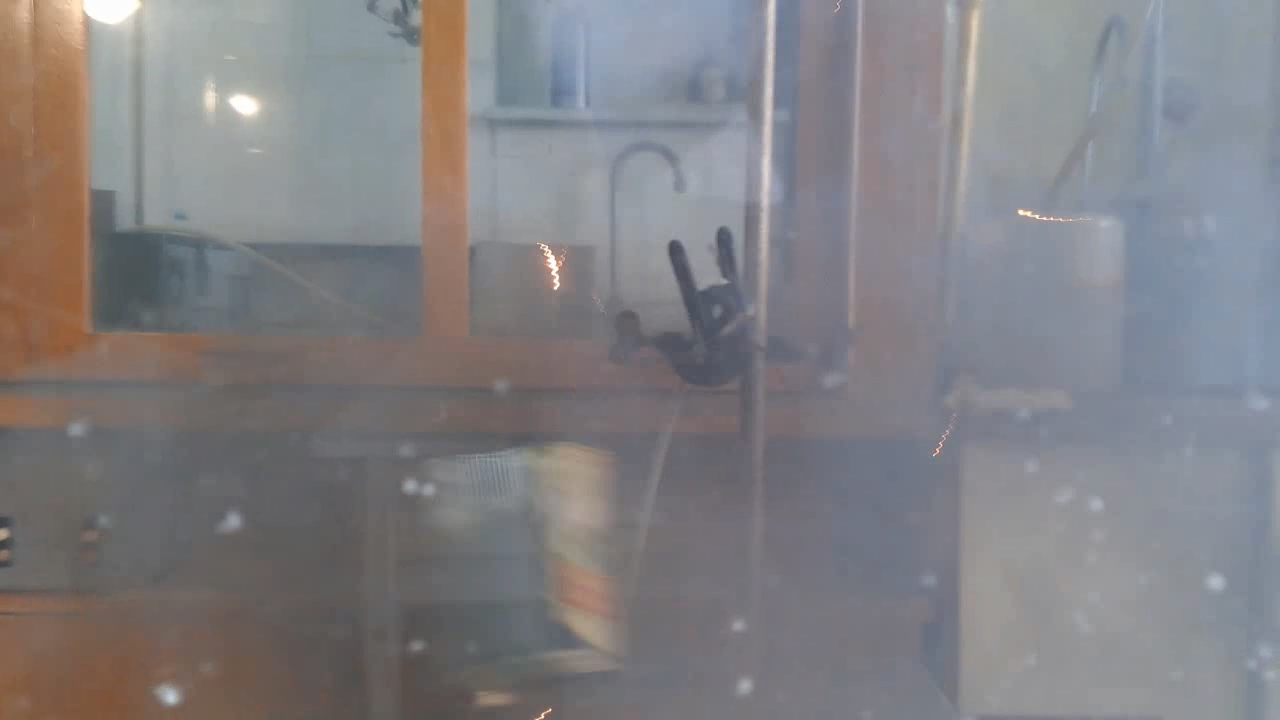
|
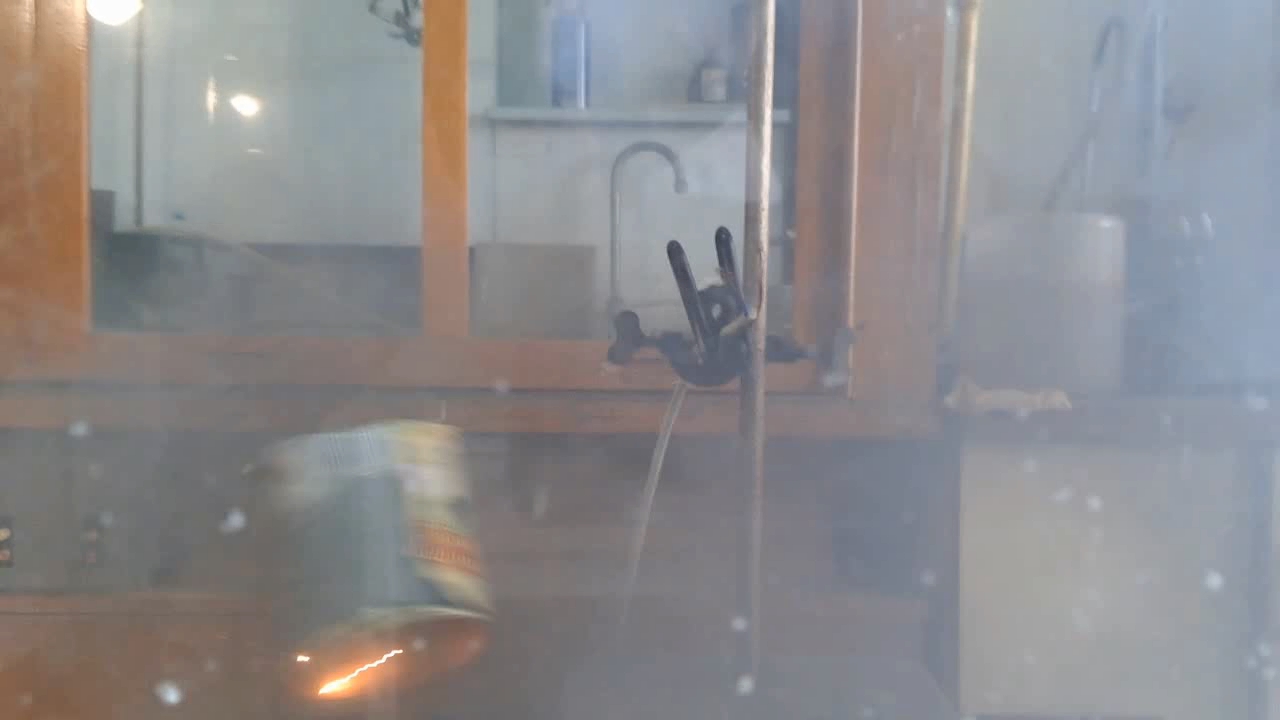
|
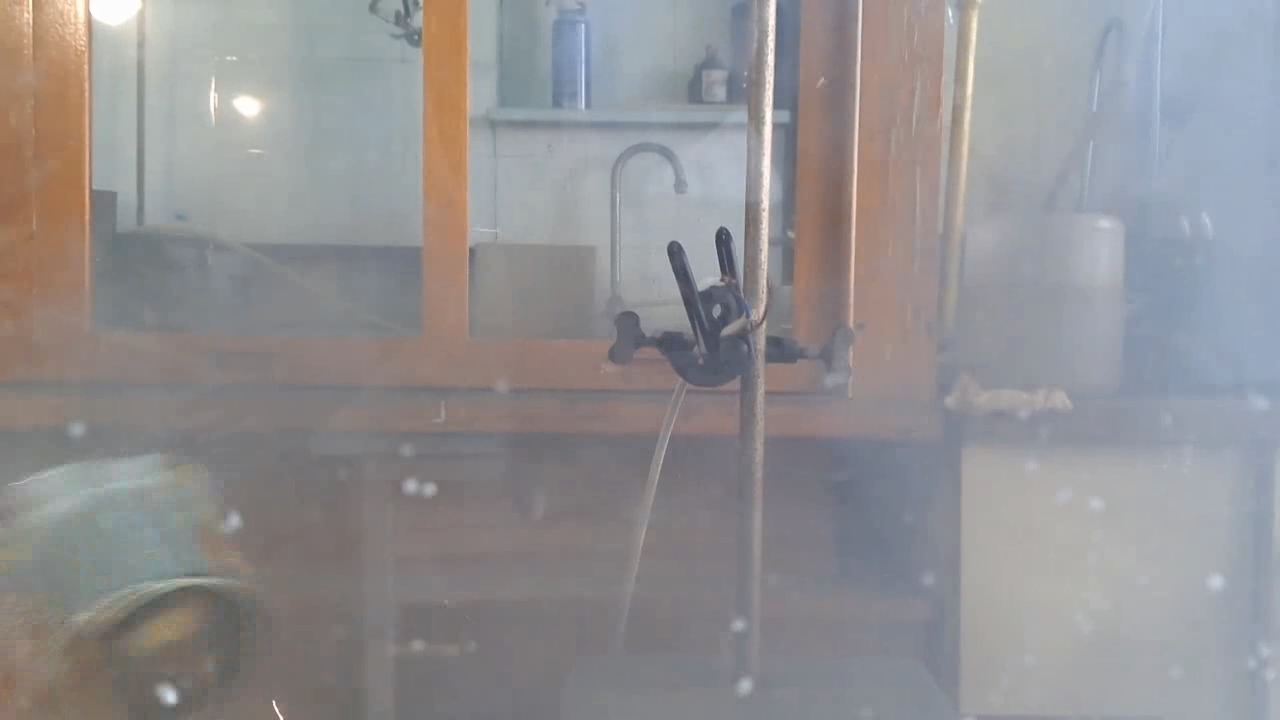
|
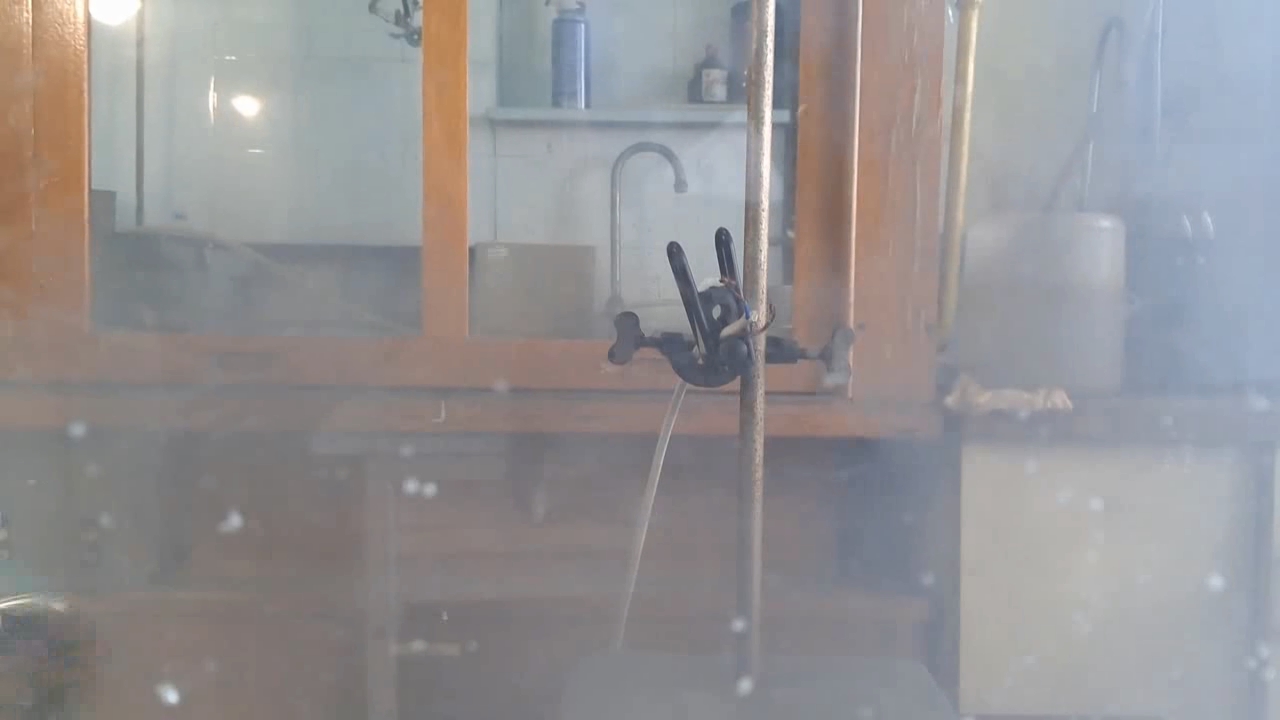
|
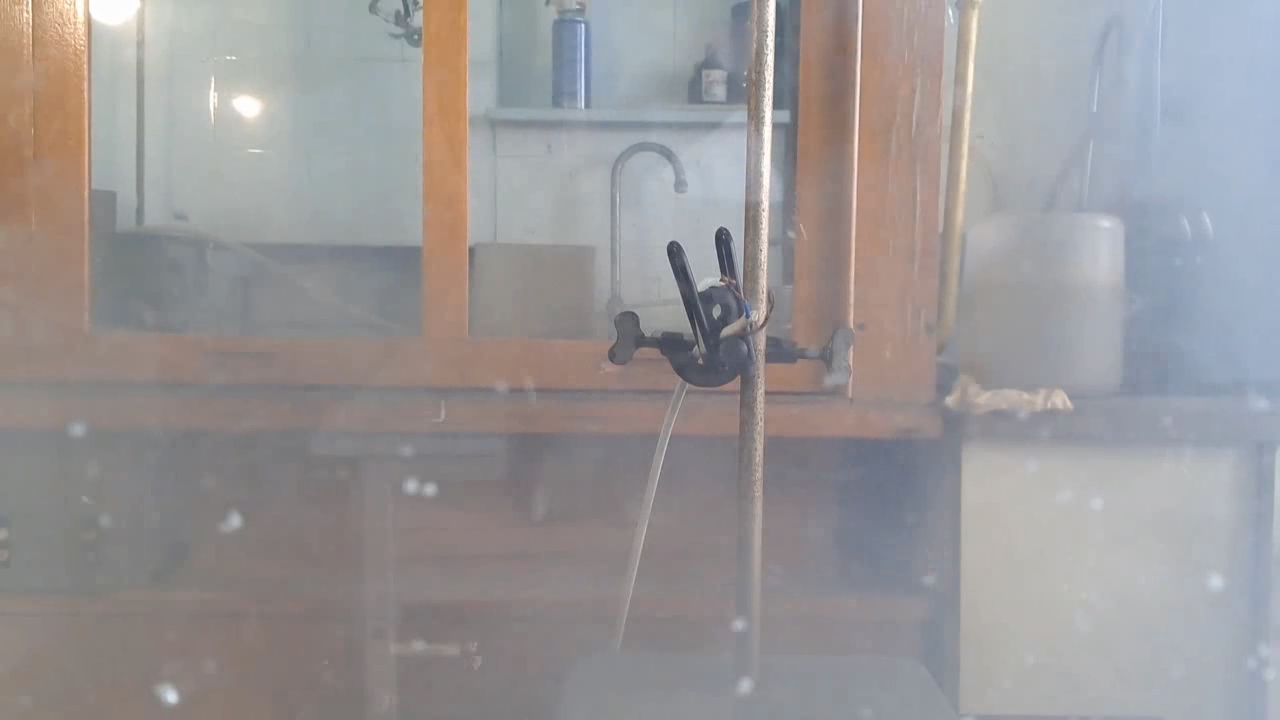
|
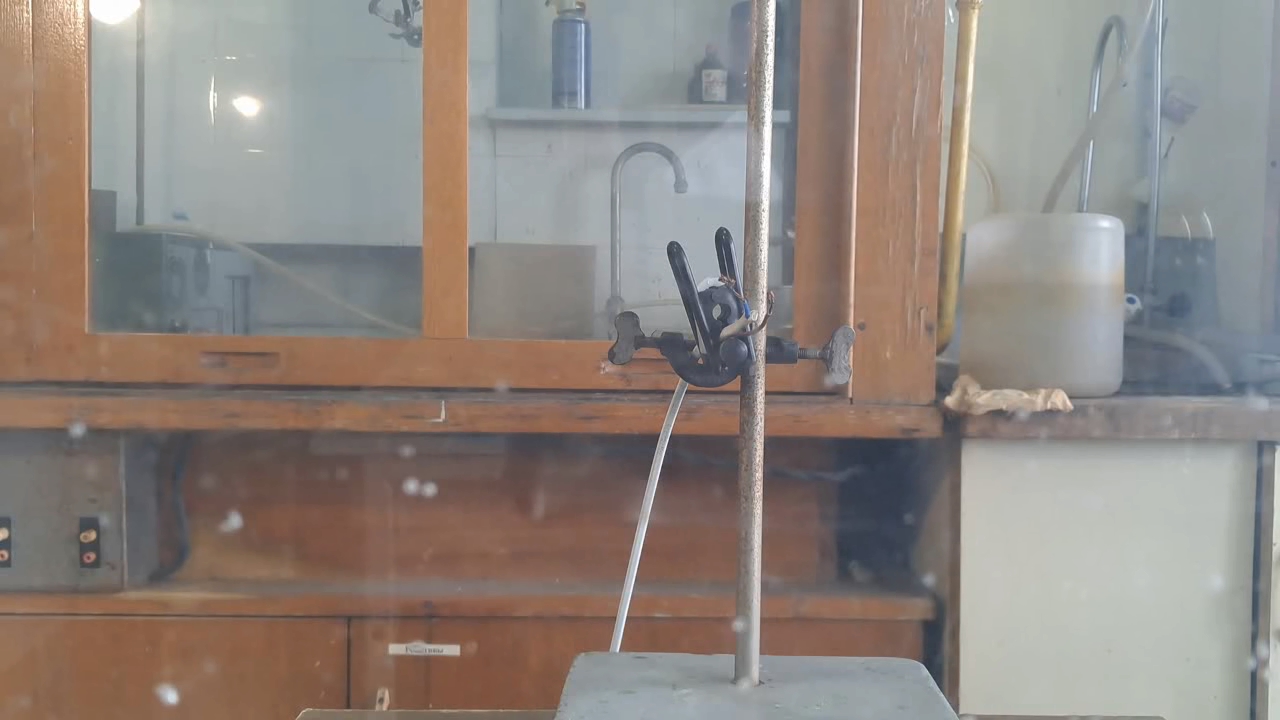
|
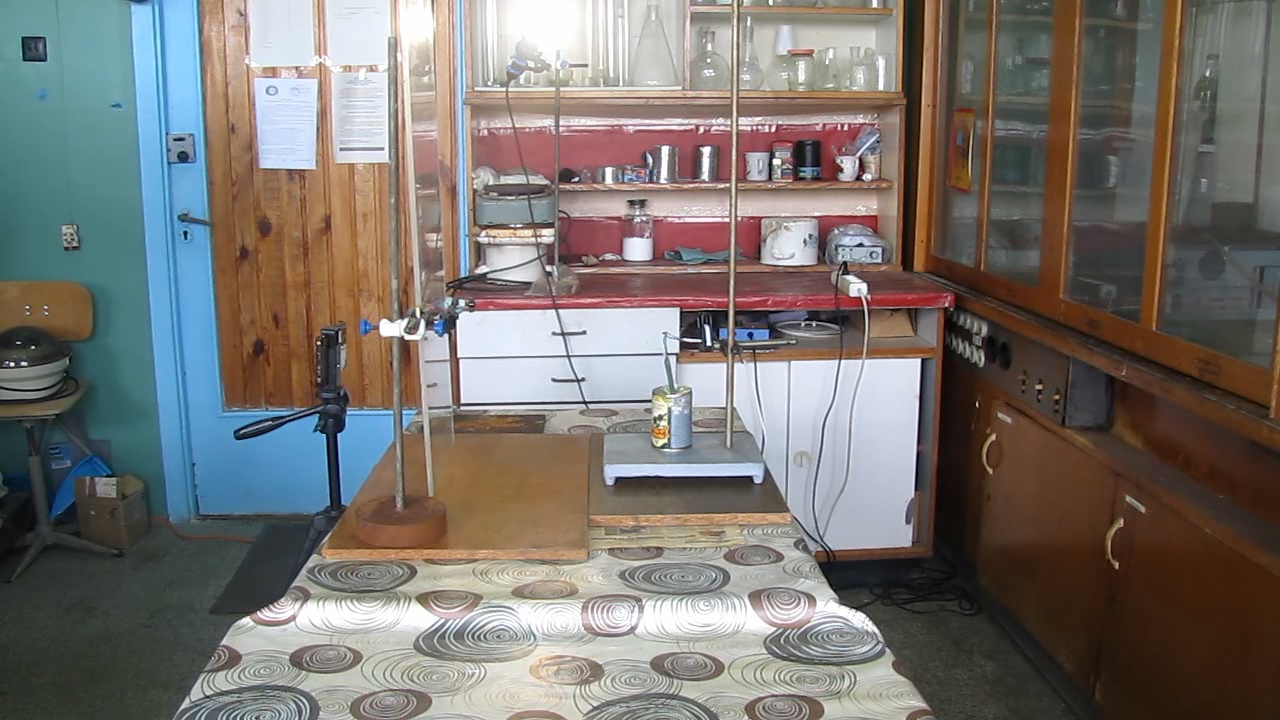
|
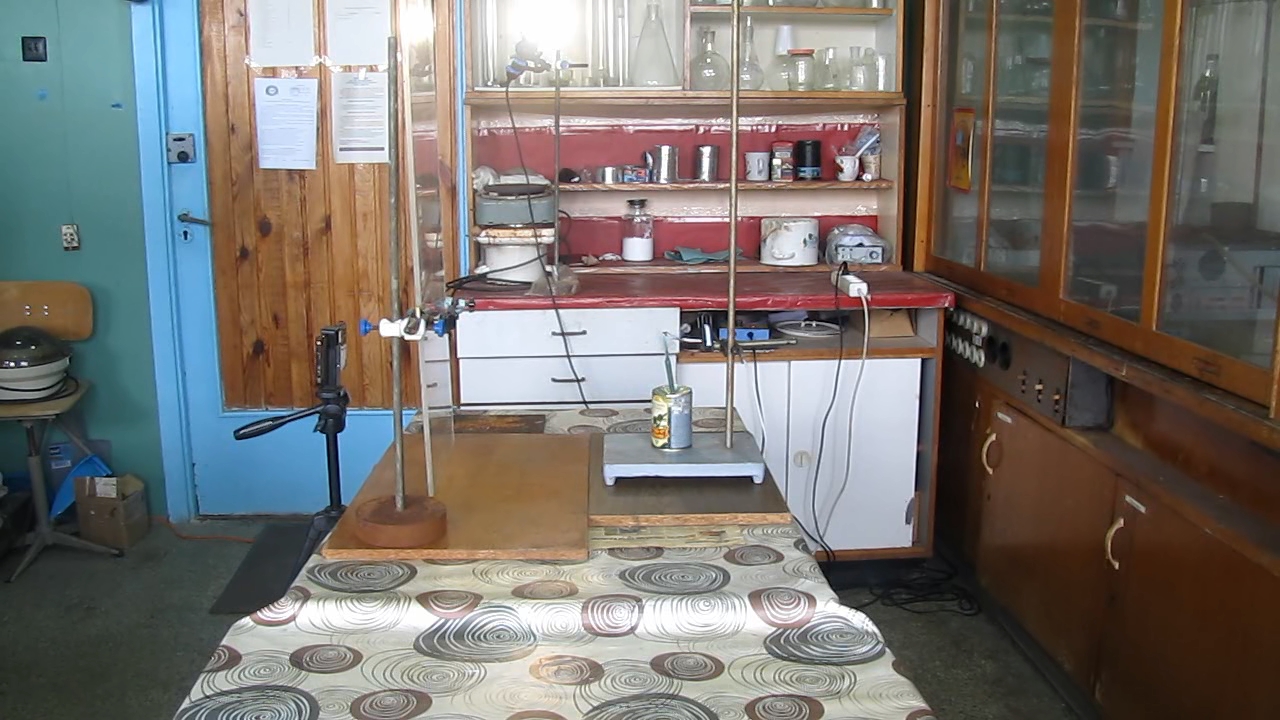
|
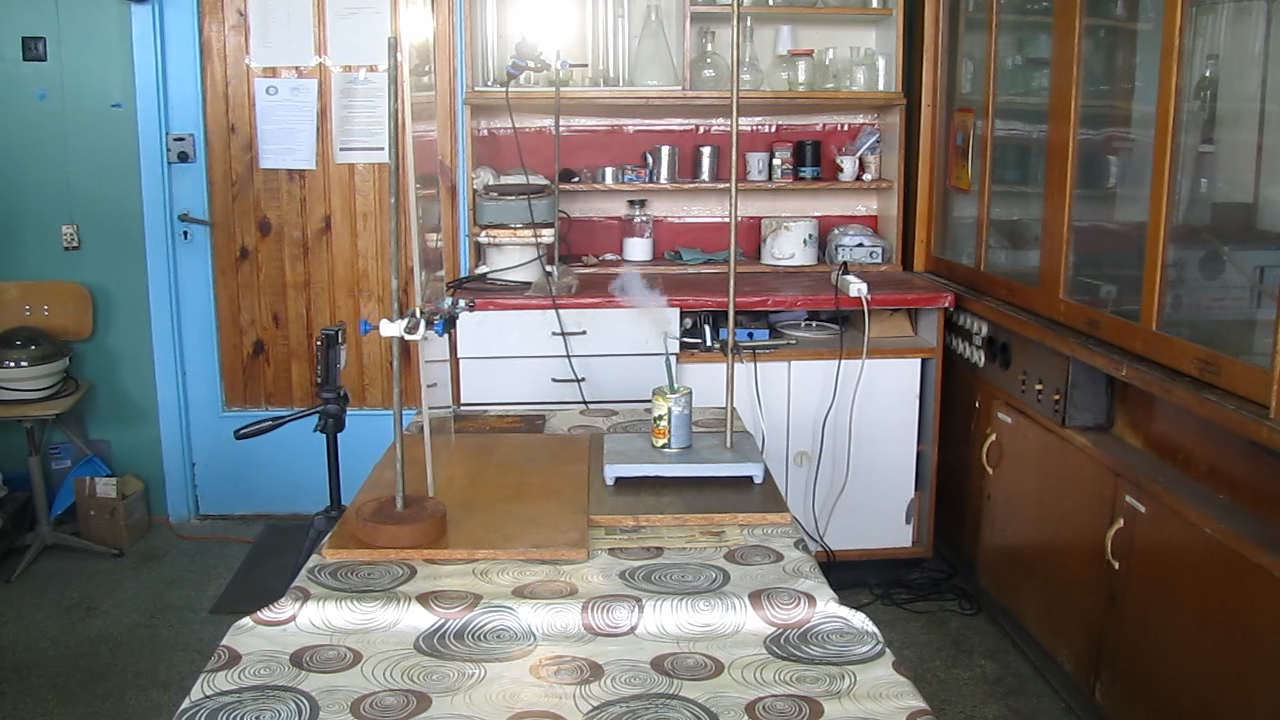
|
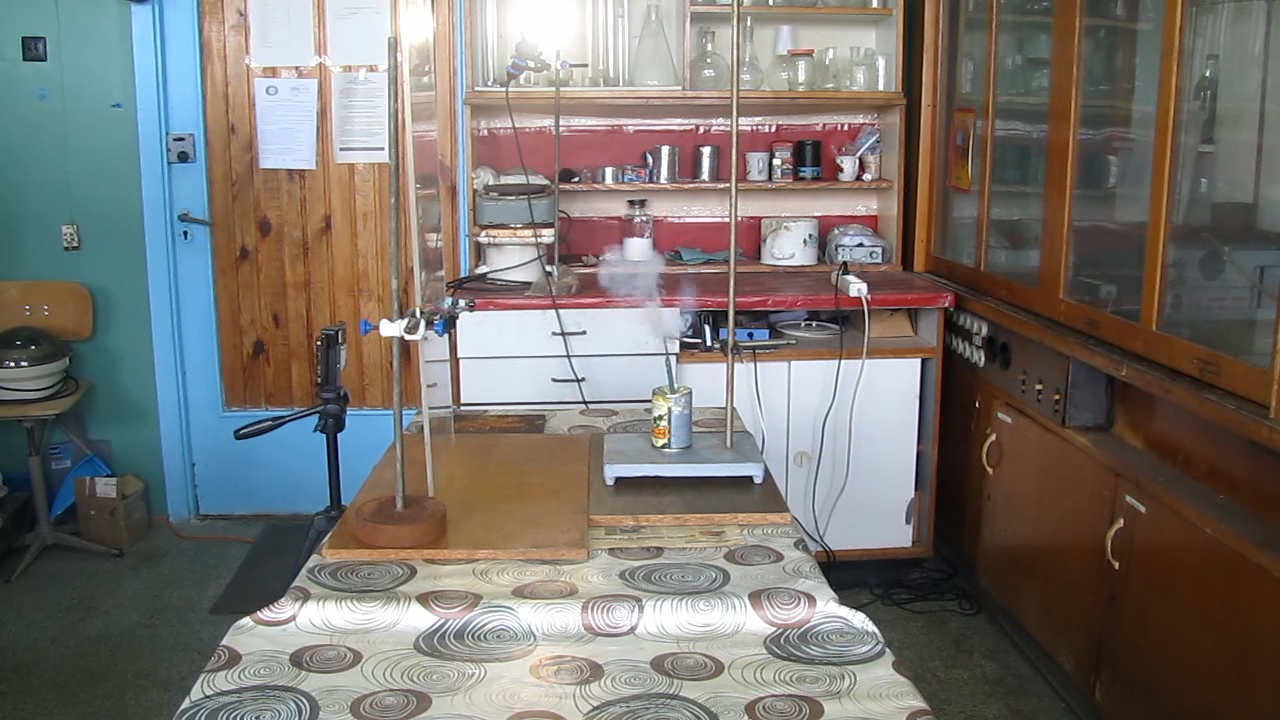
|
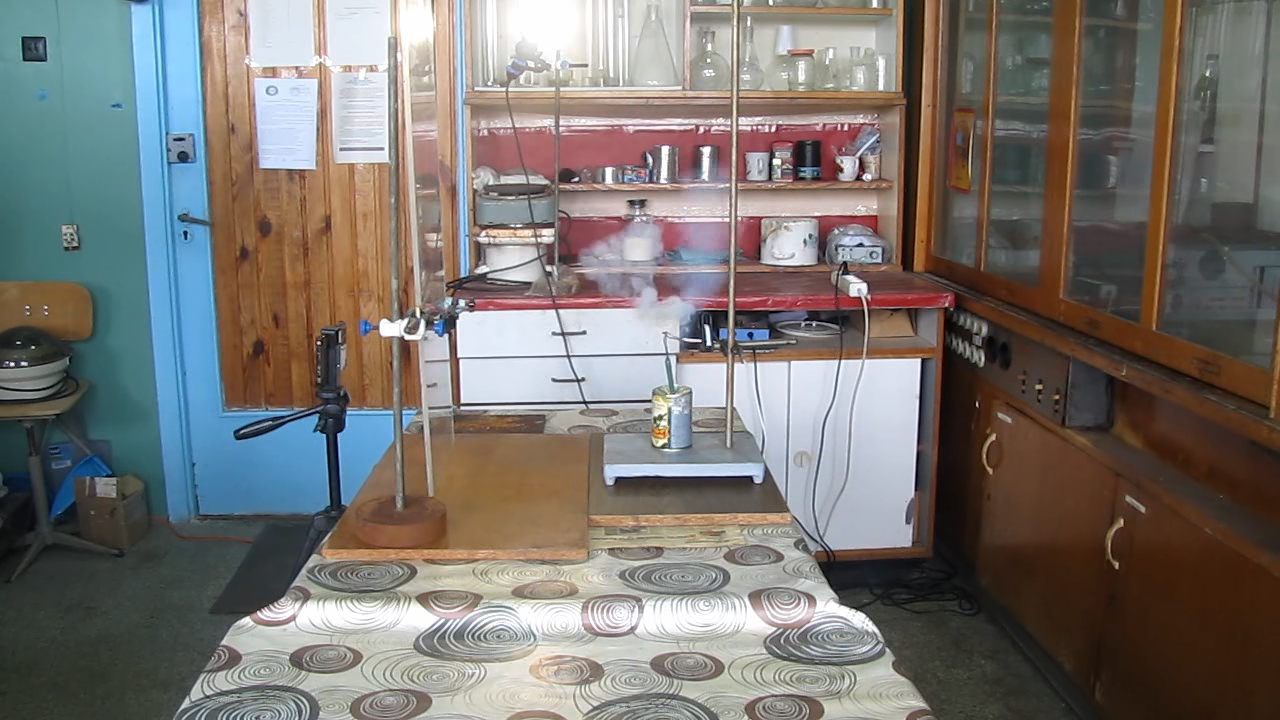
|
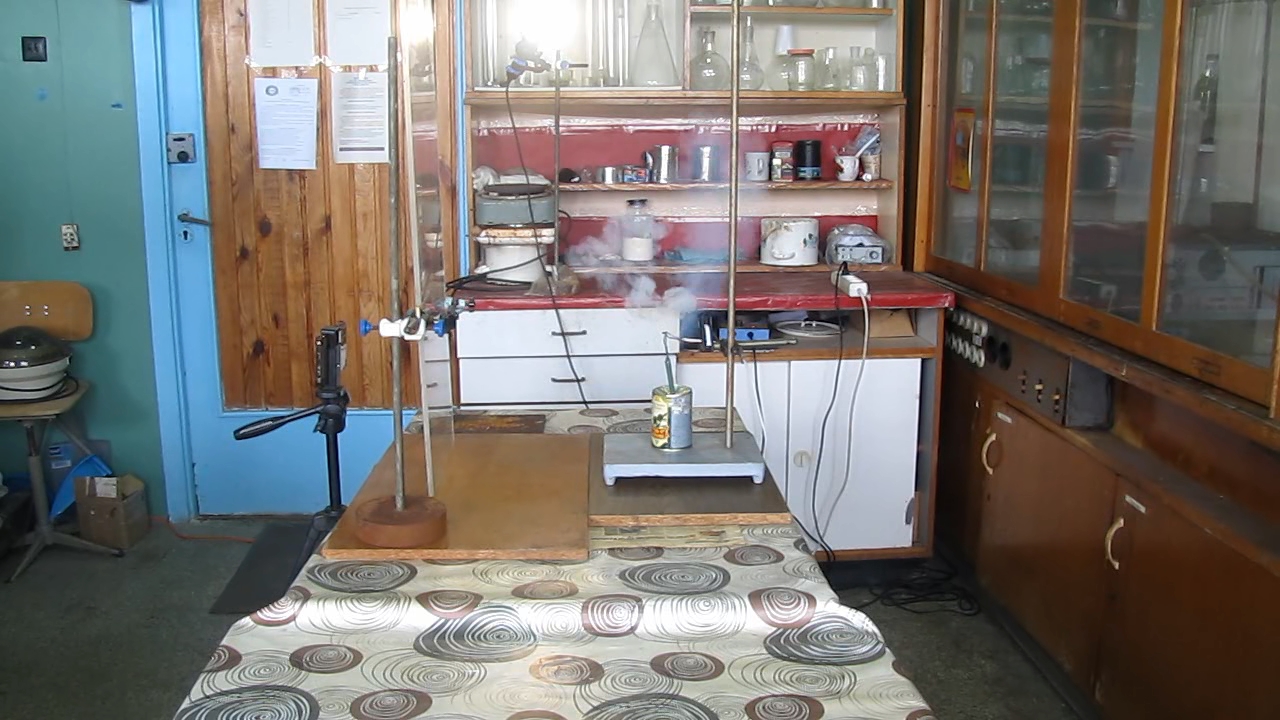
|
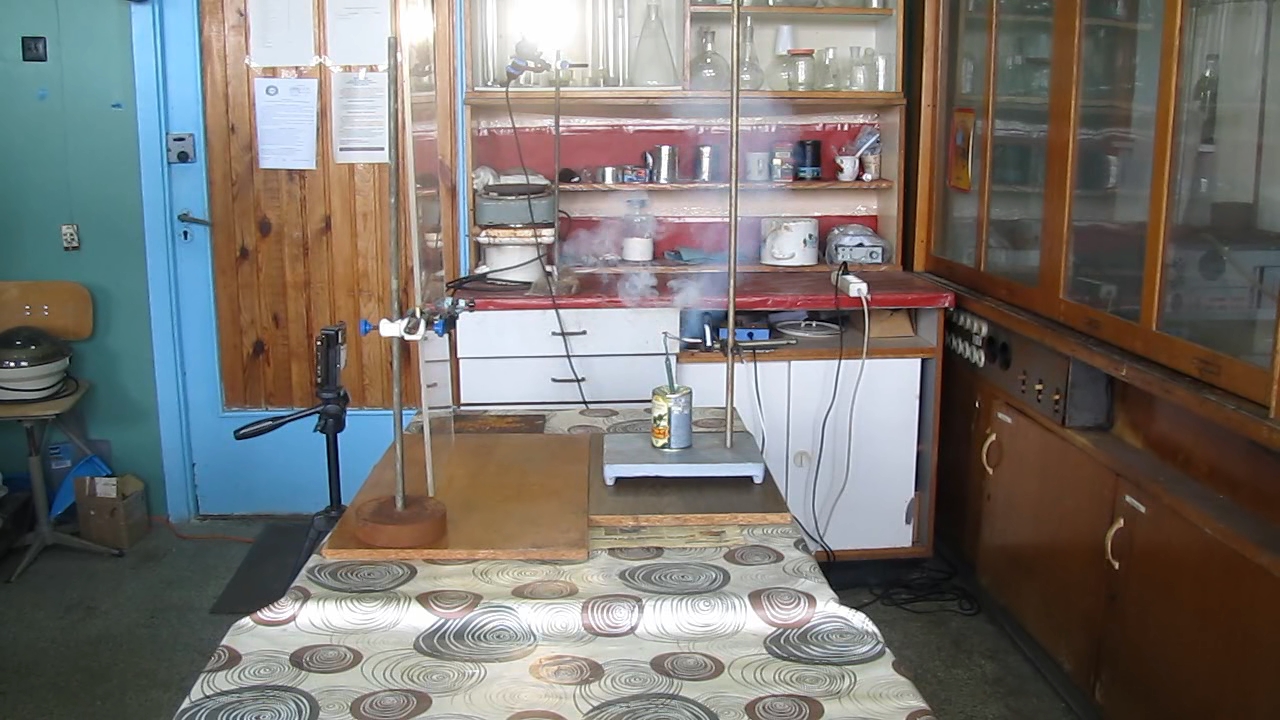
|
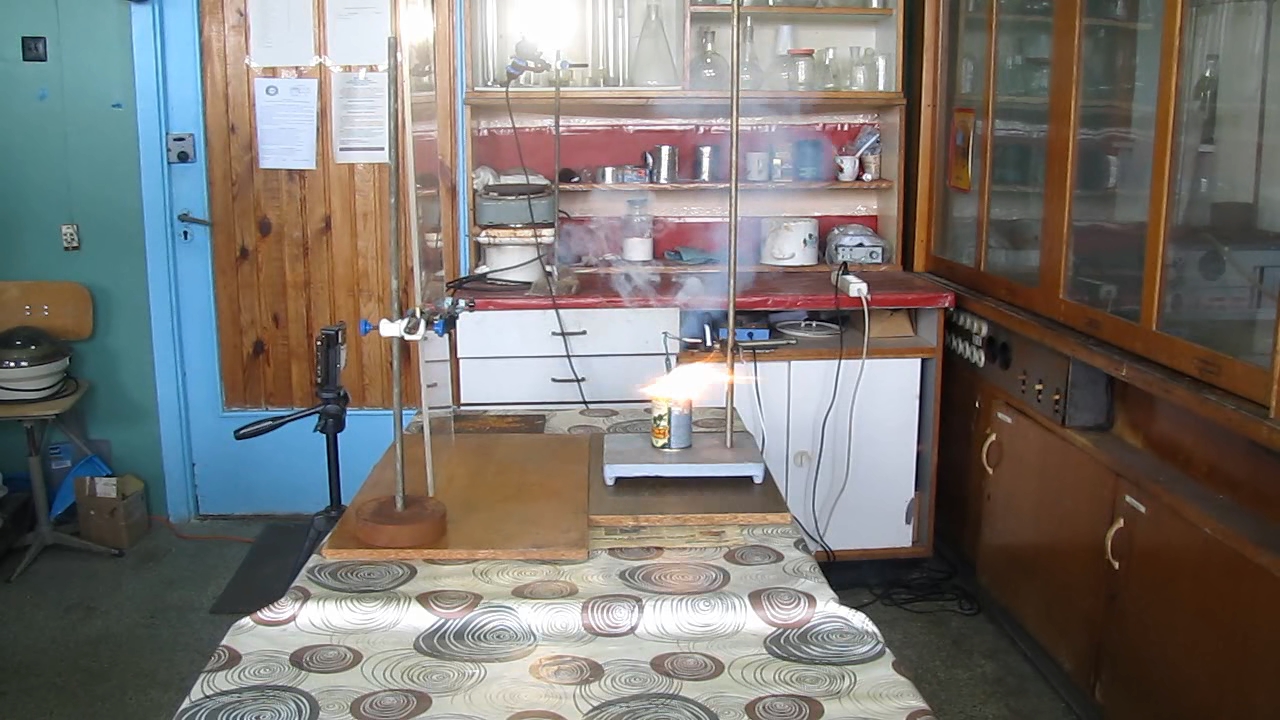
|
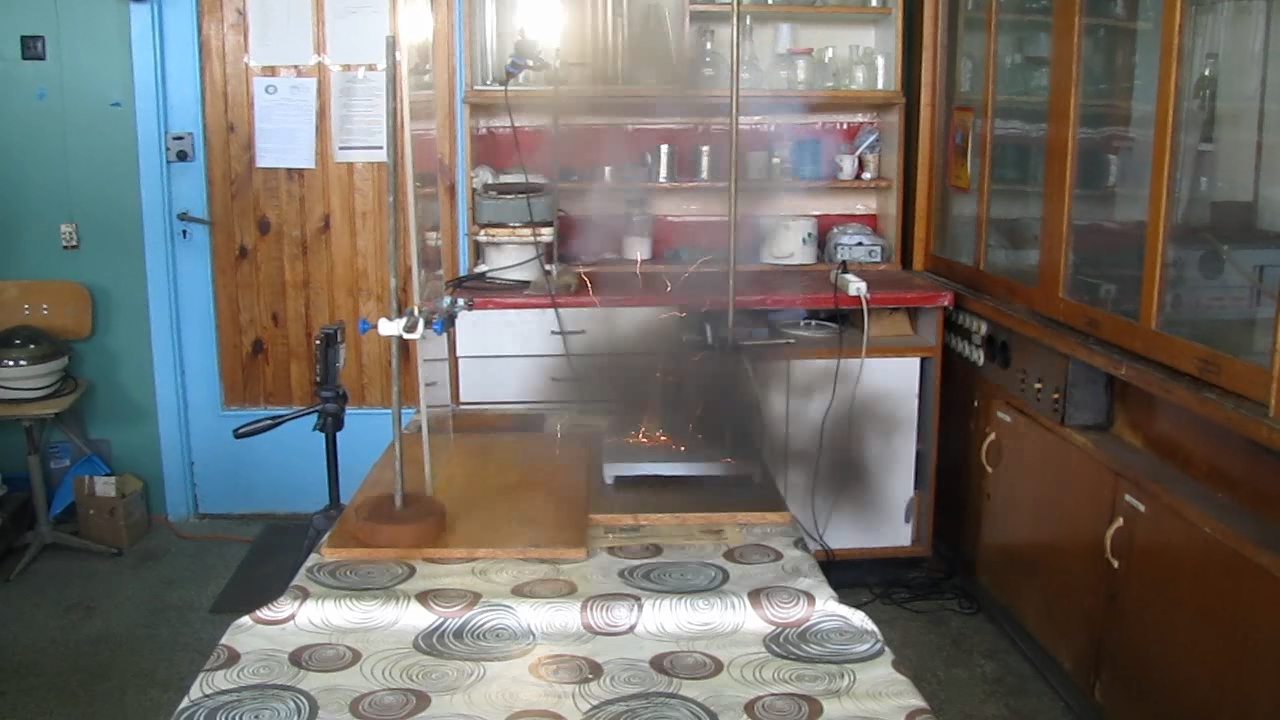
|
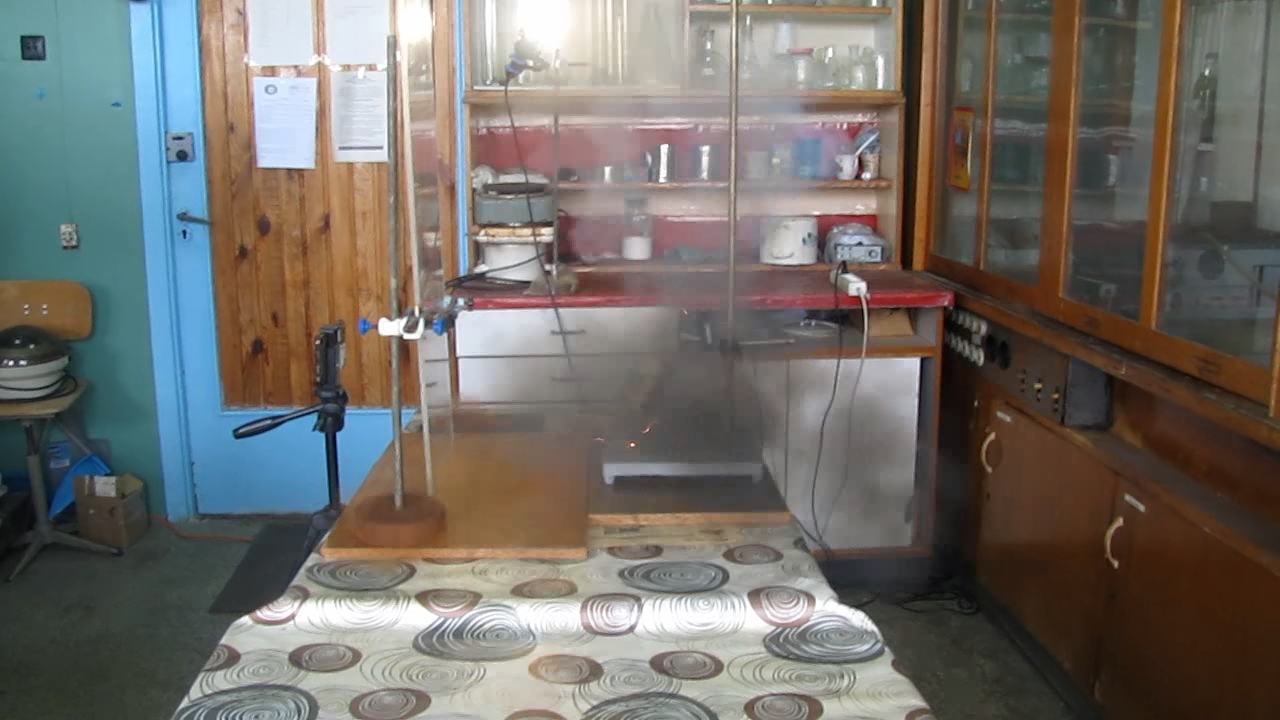
|
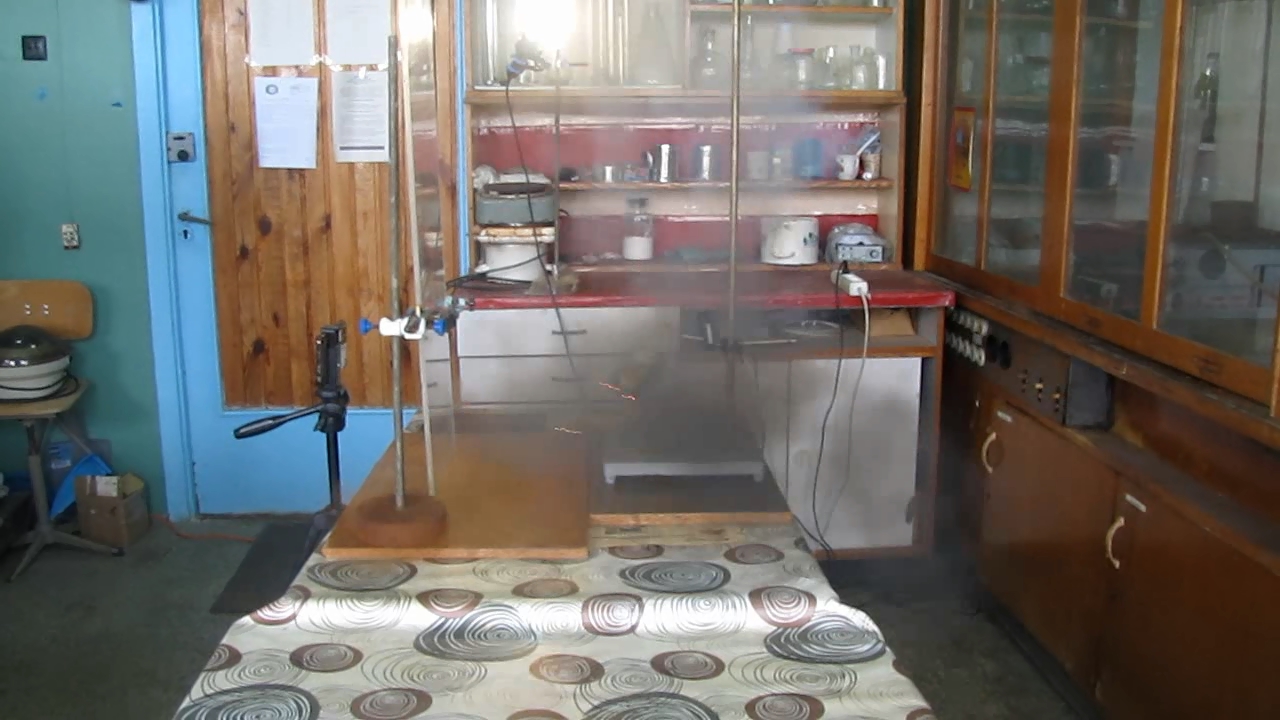
|
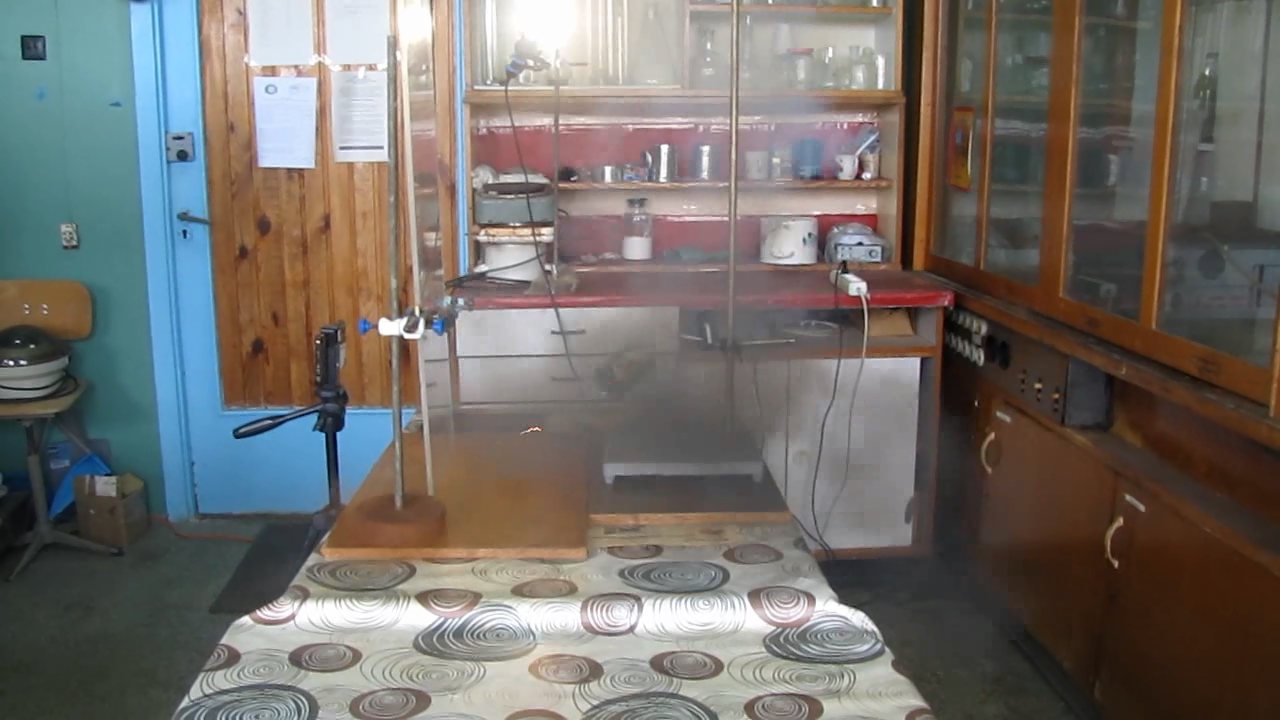
|
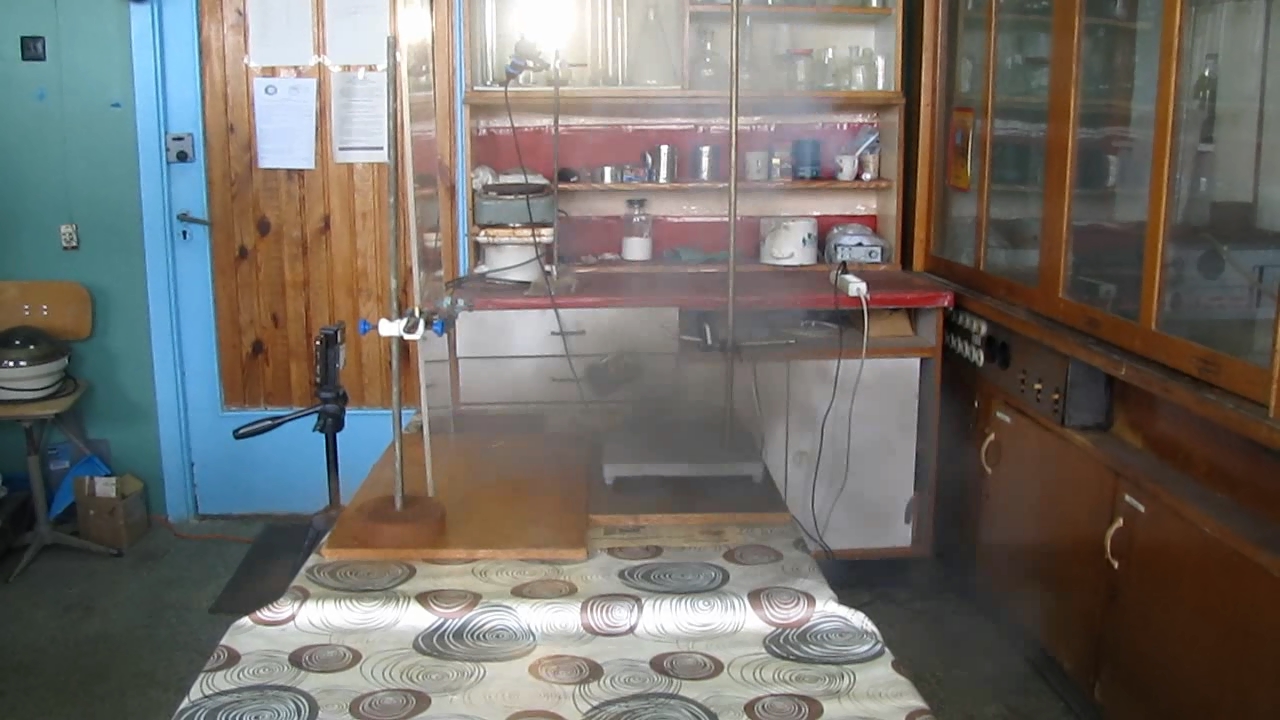
|
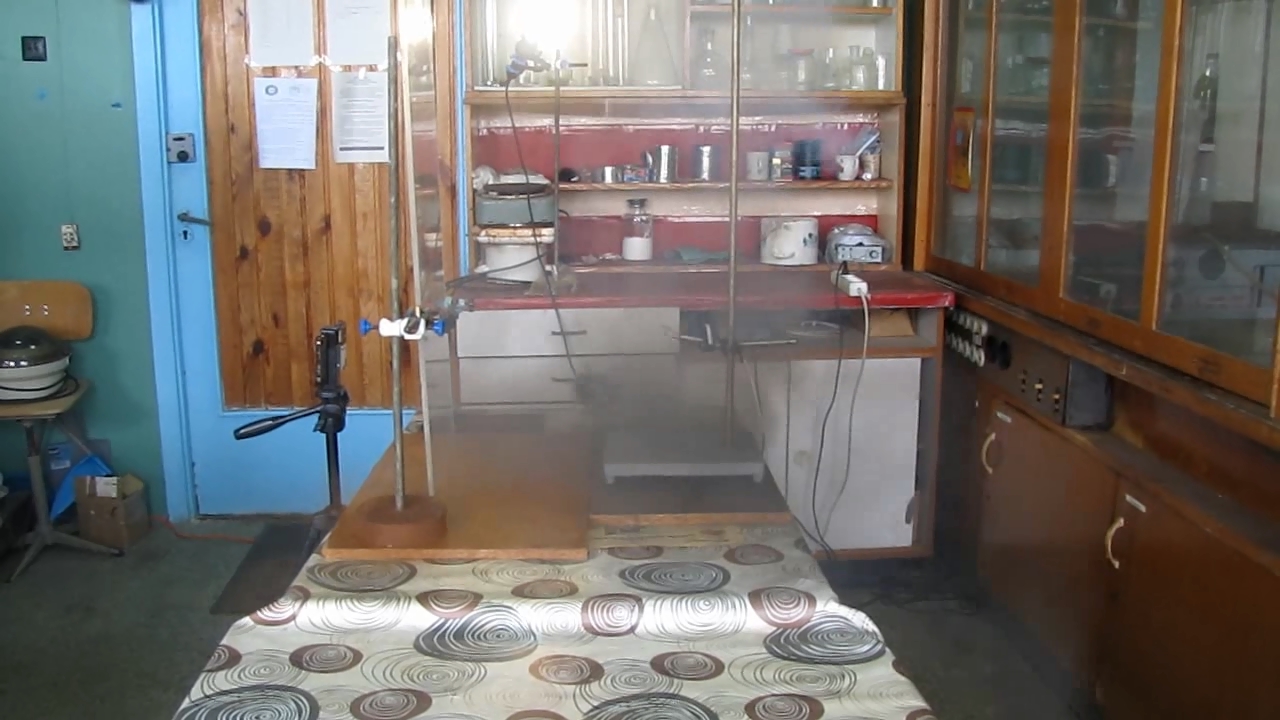
|
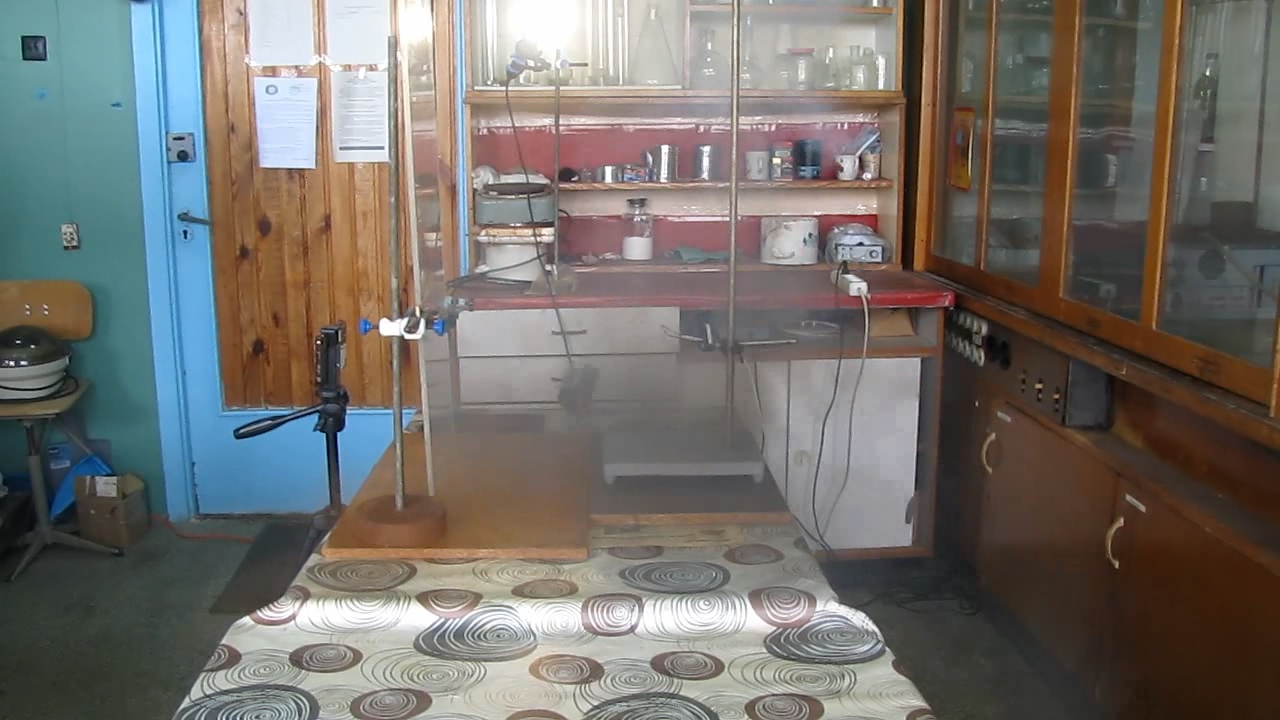
|
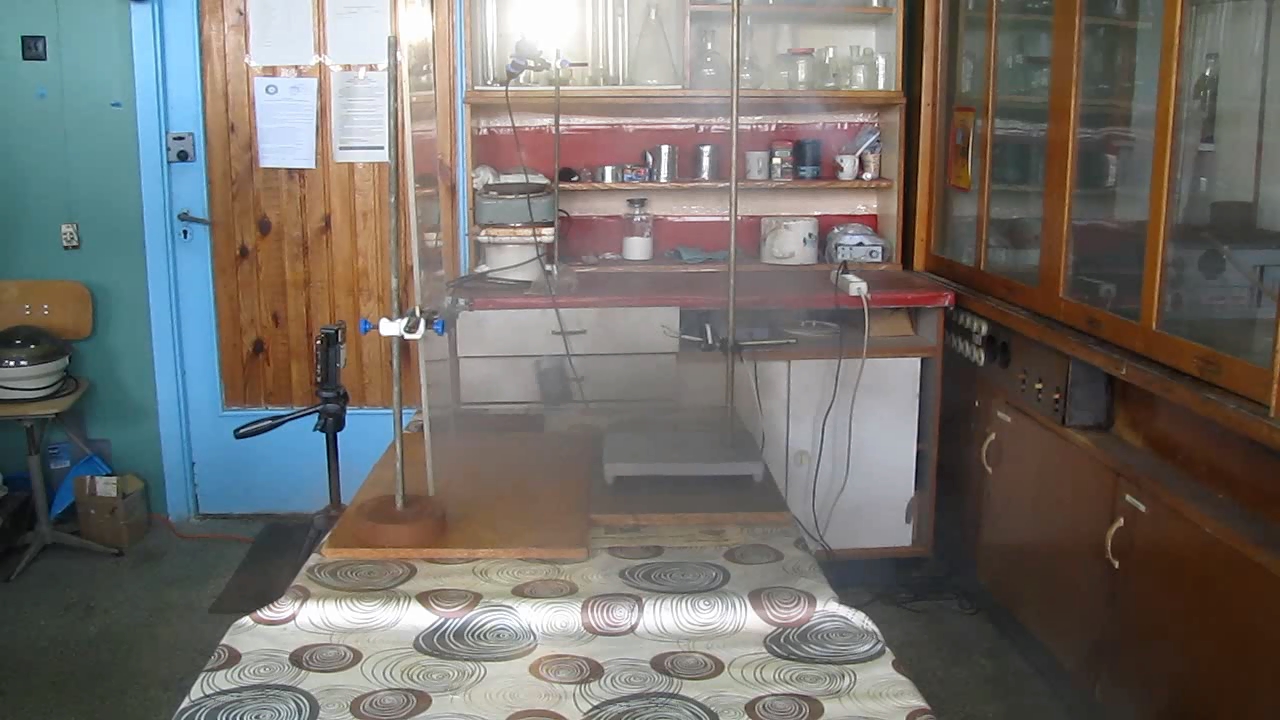
|
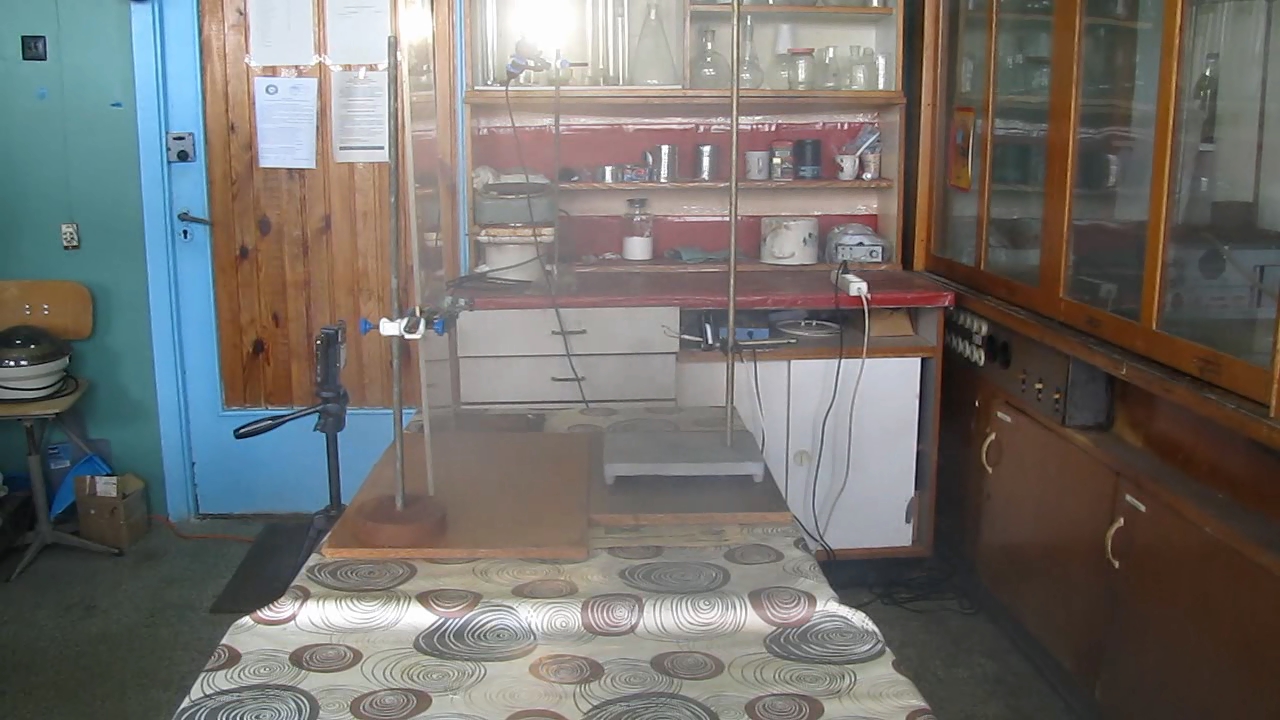
|
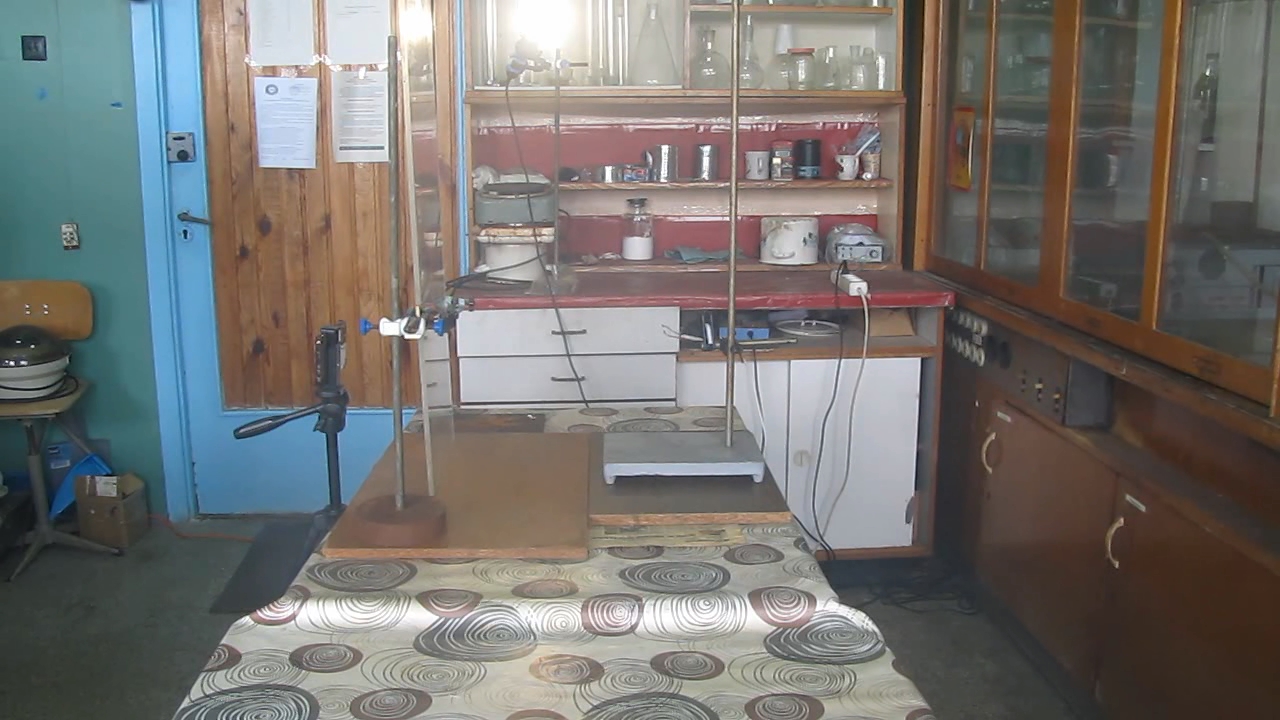
|
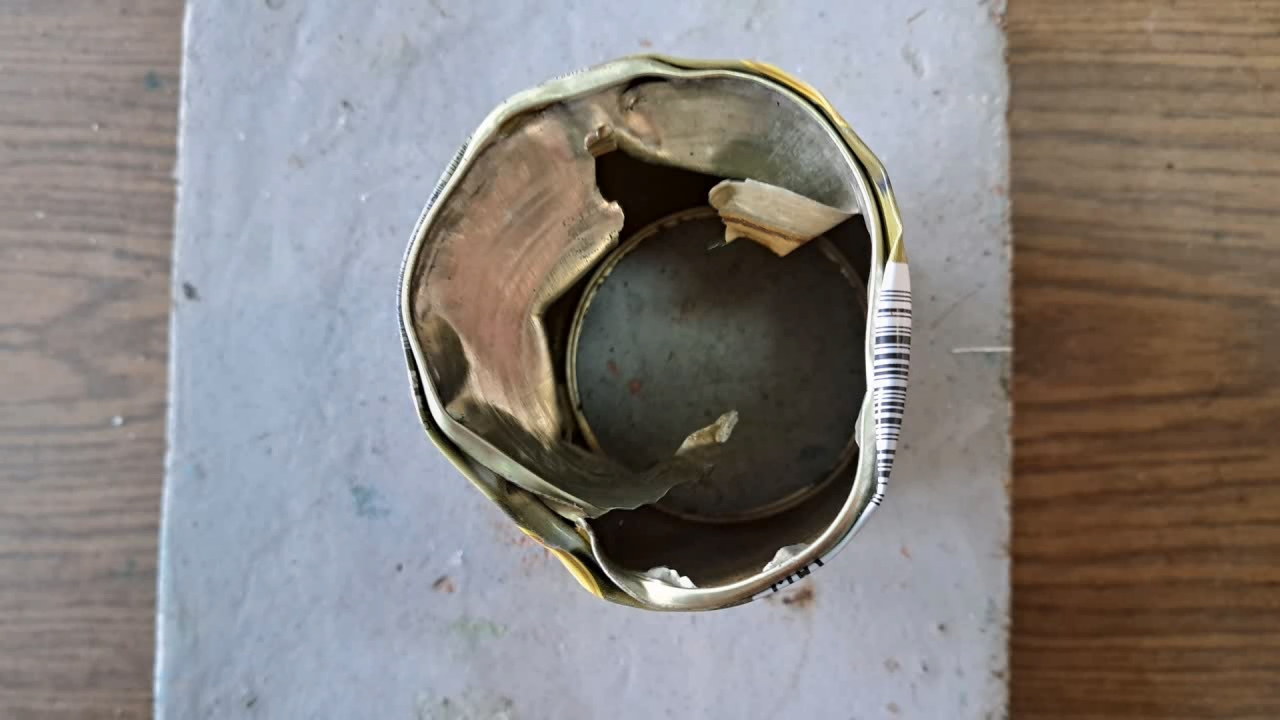
|
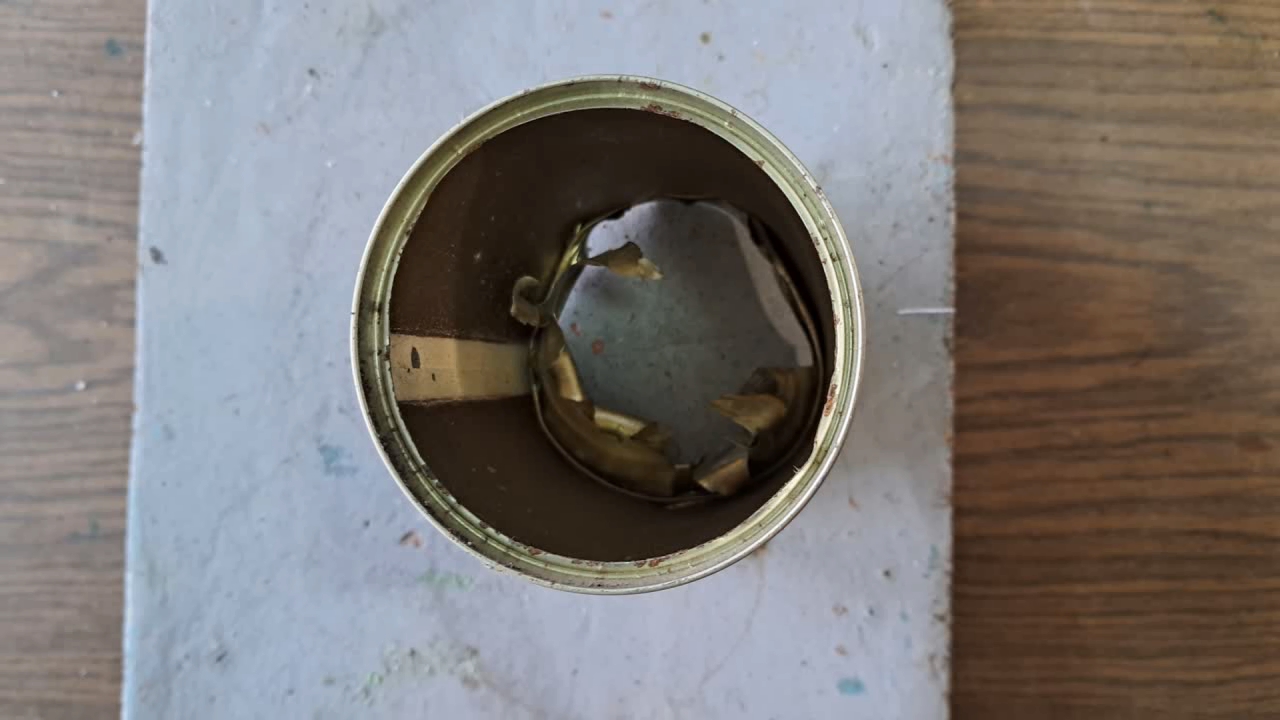
|
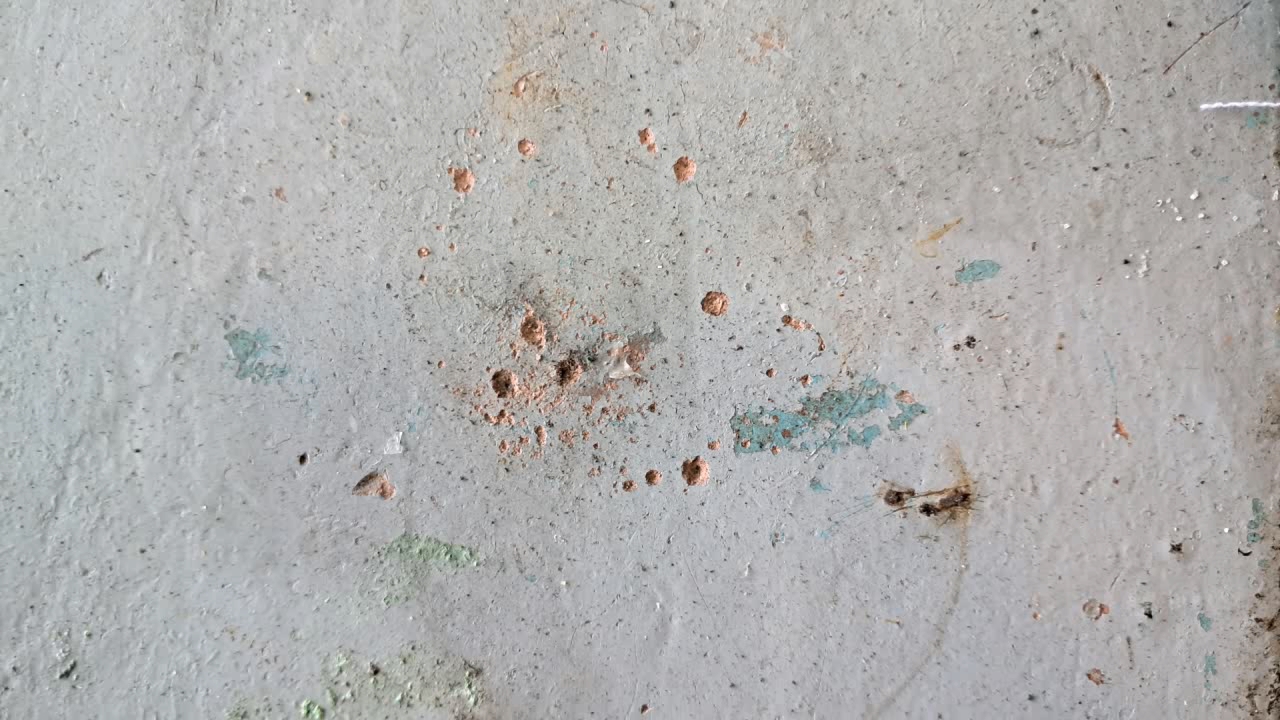
|
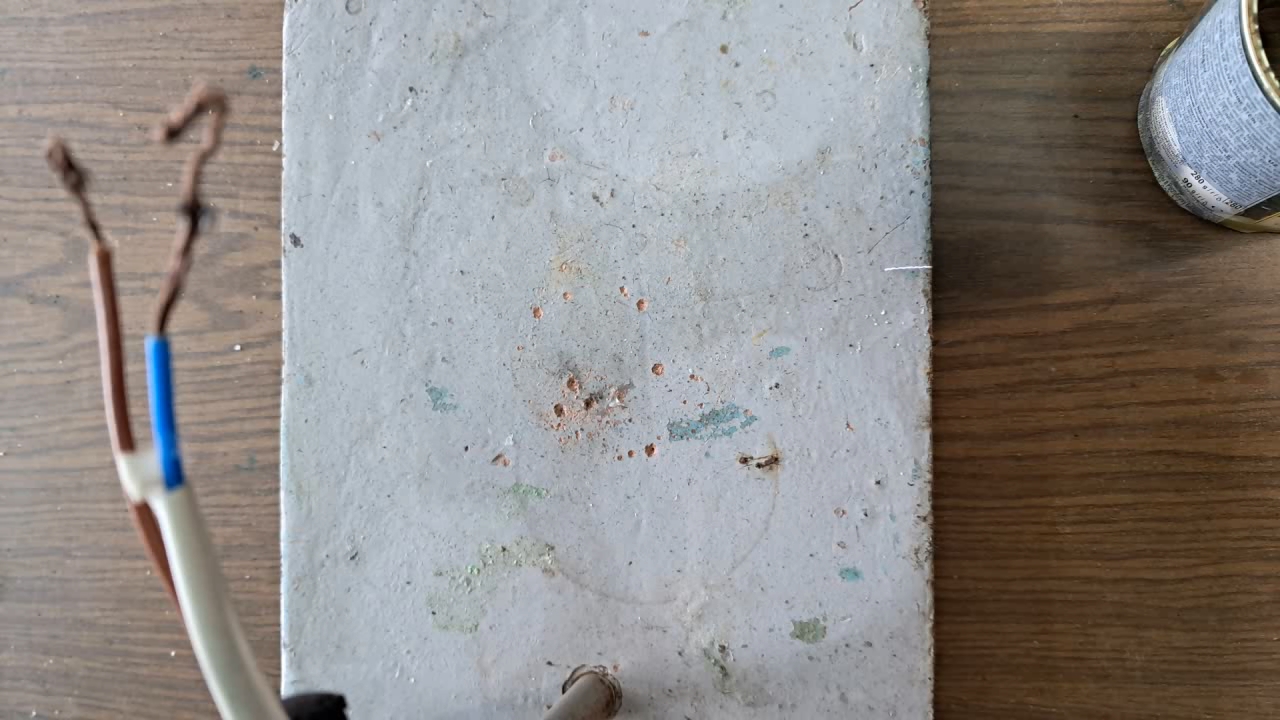
|
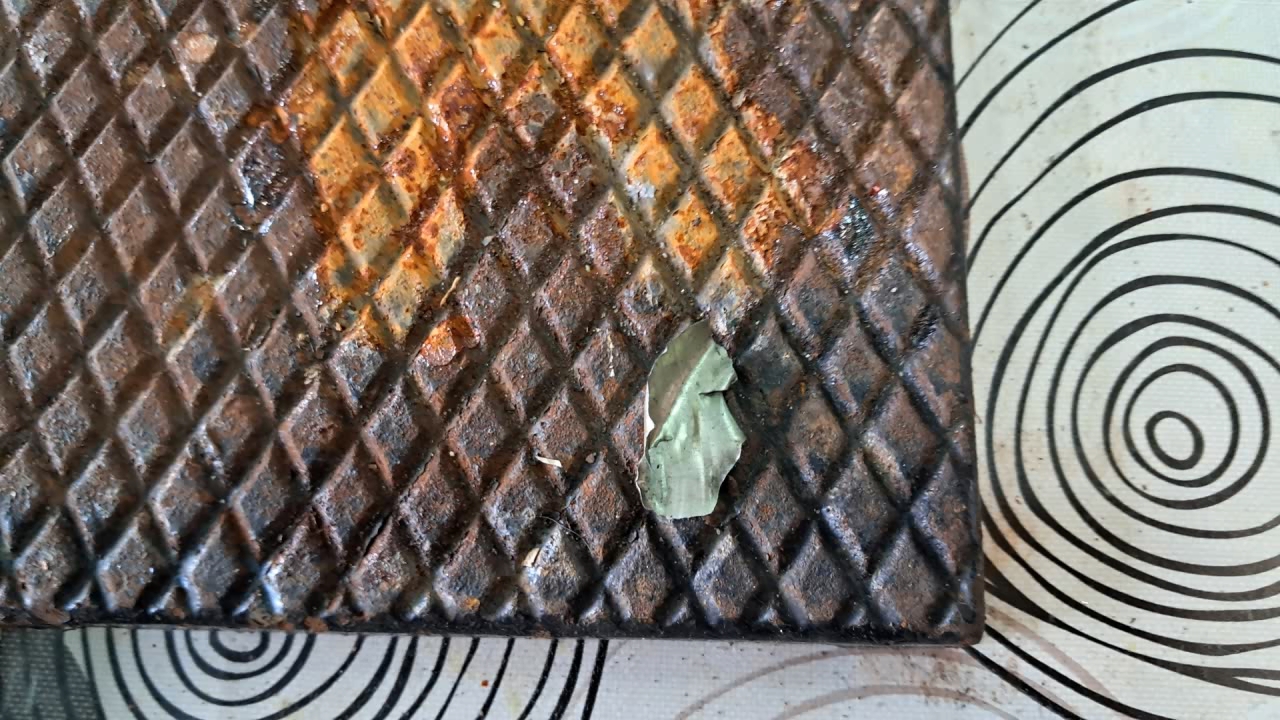
|
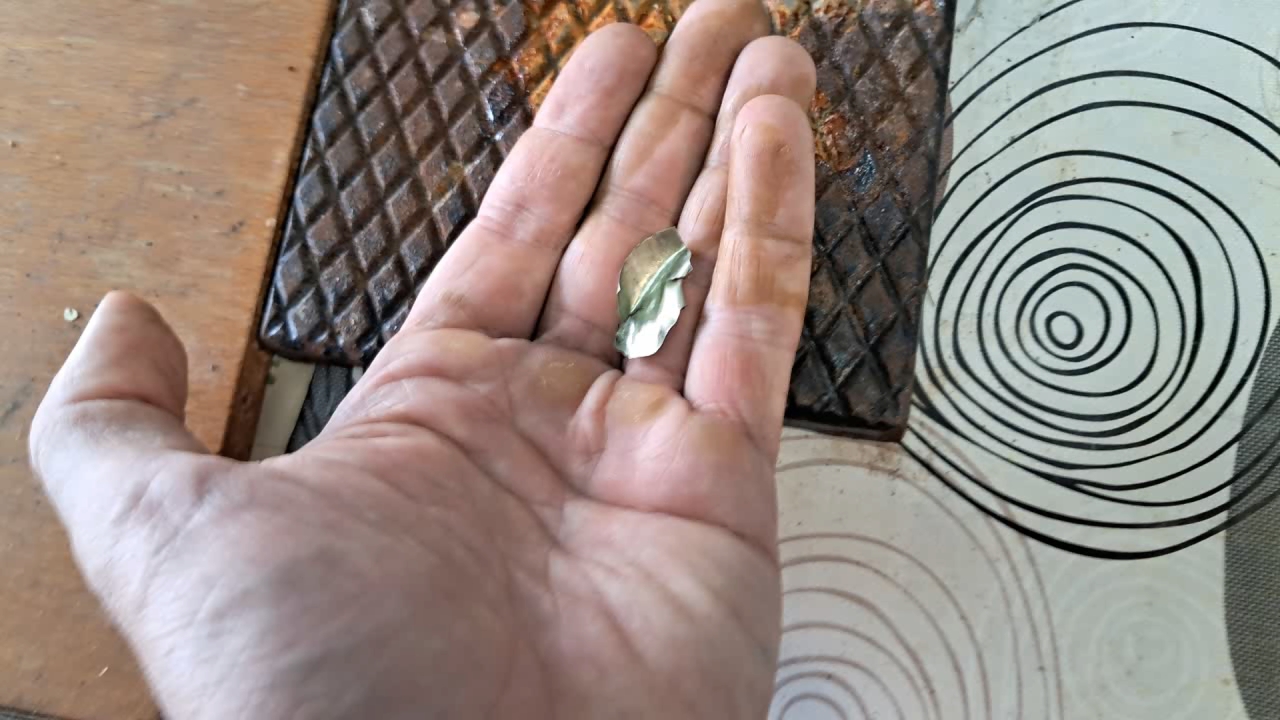
|
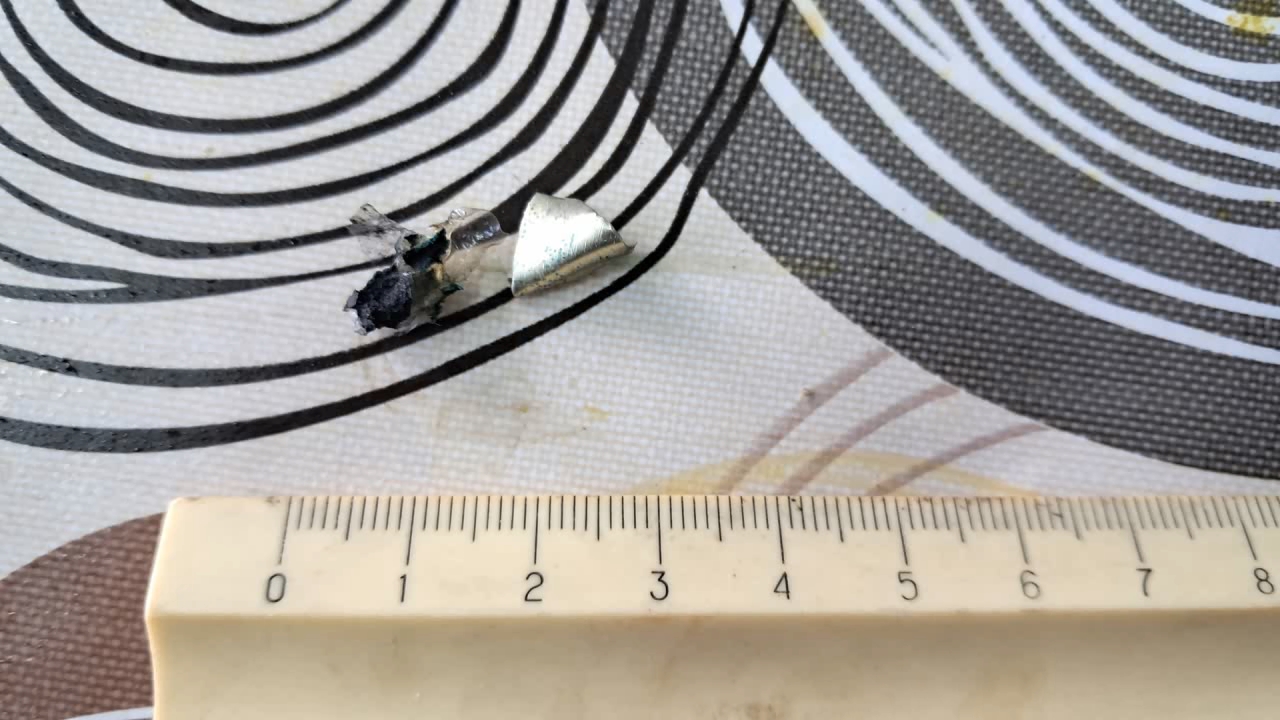
|
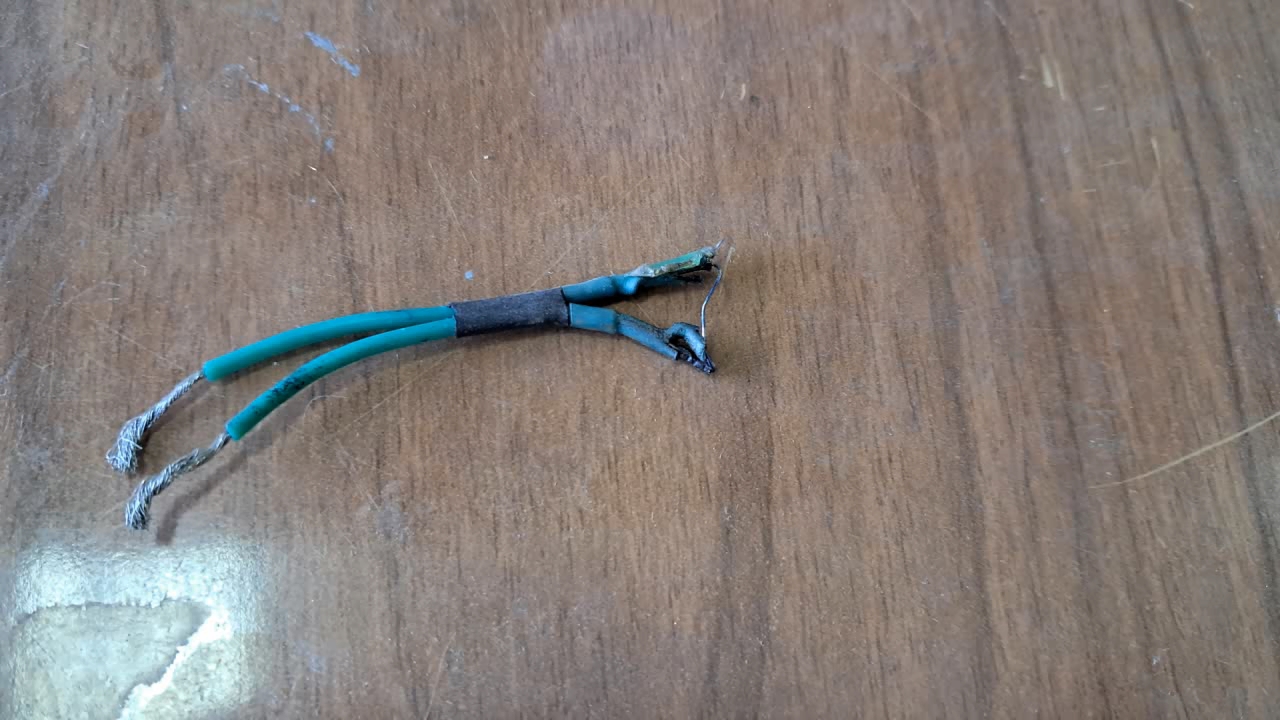
|
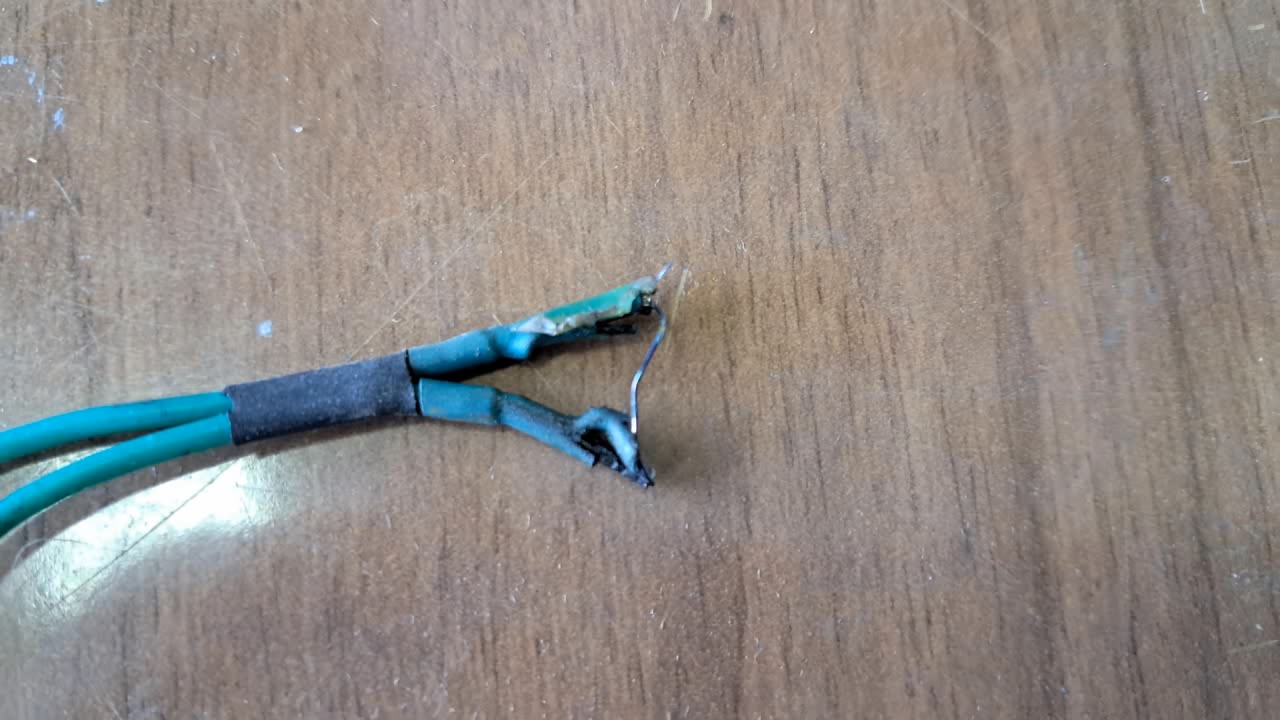
|
|
Having noticed a mistake in the text, allocate it and press Ctrl-Enter
Explosion of HMTD after 12 Months of Storage - Part 5
Finally, it was time to test the third and final sample - one year and one day had passed since its preparation.
Взрыв ГМТД после 12 месяцев хранения - Часть 5 The sample contained 1 g of HMTD. I connected the wires and measured the electrical resistance; it was 0.9 Ohms. I installed a protective plexiglass shield, secured the wires holding the cylinder in a retort stand, and placed an upside-down tin can beneath the cylinder. I invited a colleague to be present. The video was filmed with two smartphones: one positioned behind the protective shield, and the other set at a 90-degree angle to the first camera's field of view. I hoped the explosion would occur immediately, though I feared there might be a delay - or that the sample would not explode at all. The longer the storage time, the higher the likelihood of a negative result. I put on headphones and connected the contacts to a 6-volt lead-acid battery. I forgot to wear a protective mask, even though I was looking directly at the sample. Immediately, there was a loud explosion that threw the can into the air. A large amount of black and white smoke was released, accompanied by a distinctive odor. A colleague claimed it smelled like hexamine, but I did not detect hexamine - only the characteristic odor of HMTD decomposition products. The black smoke was most likely caused by the high temperature and shock wave acting on the plastic casing. A hole formed in the bottom of the can. The metal lid (at the opposite end of the can) was perforated with several small holes. My colleague said that fragments flew past him. I was much closer, but I didn't feel any. The hot bridgewire remained intact this time, as in the previous experiment. I motioned to my colleague to step into the hallway to avoid inhaling the smoke. It turned out that two employees from neighboring laboratories had also run into the hallway, startled by the loud noise. I explained to them that everything was fine. I hadn't known they were at work; otherwise, I would have warned them in advance. Thus, the third HMTD sample exploded without delay, despite being stored for a year in contact with titanium wire. |
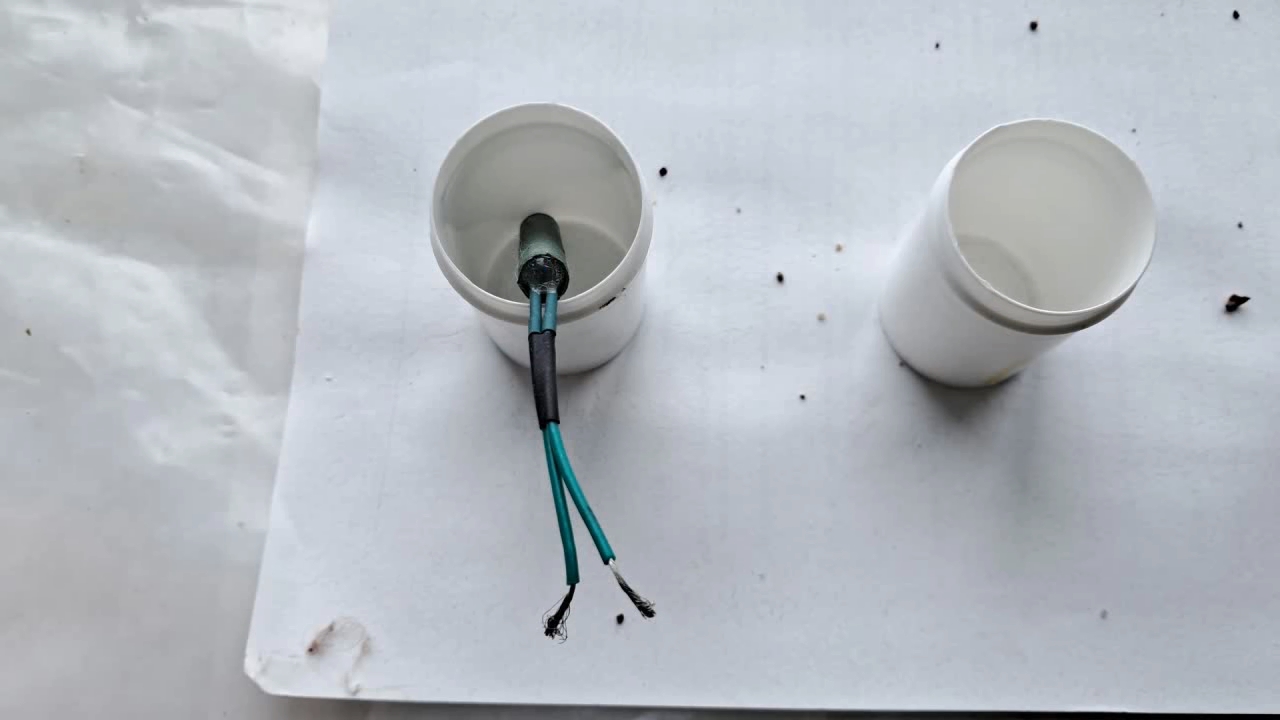
Explosion of HMTD after 12 Months of Storage |
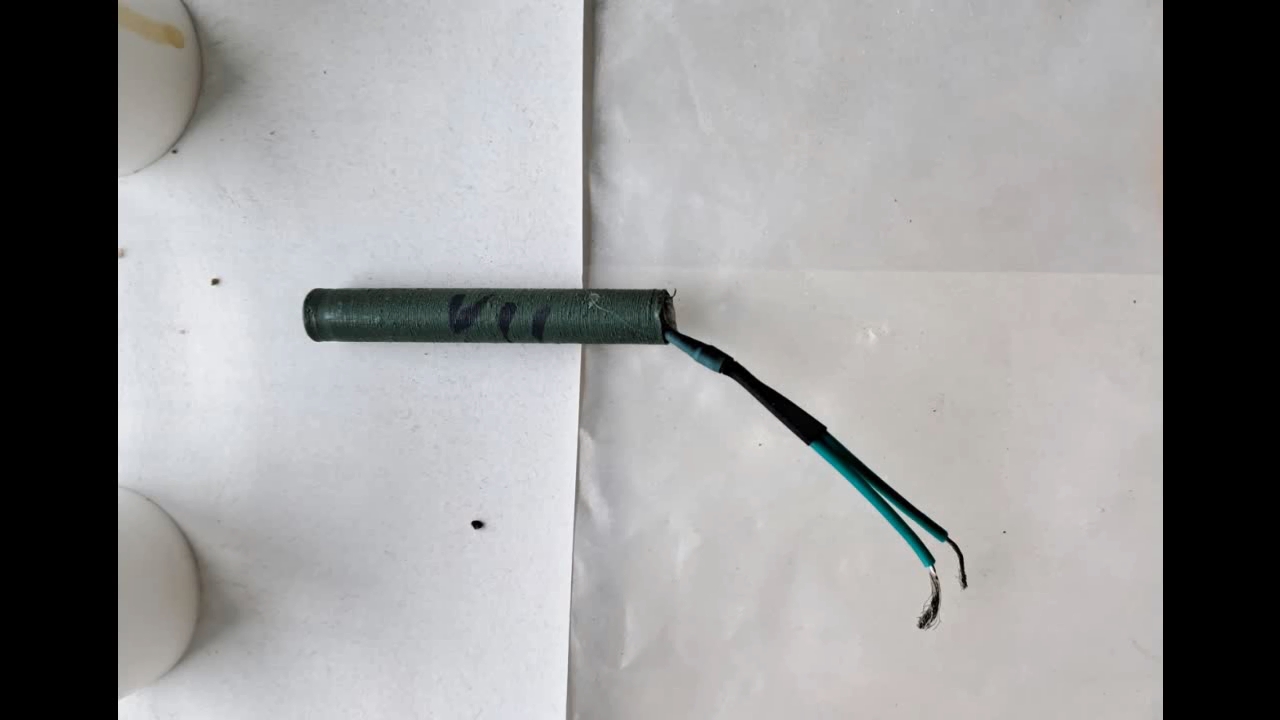
|
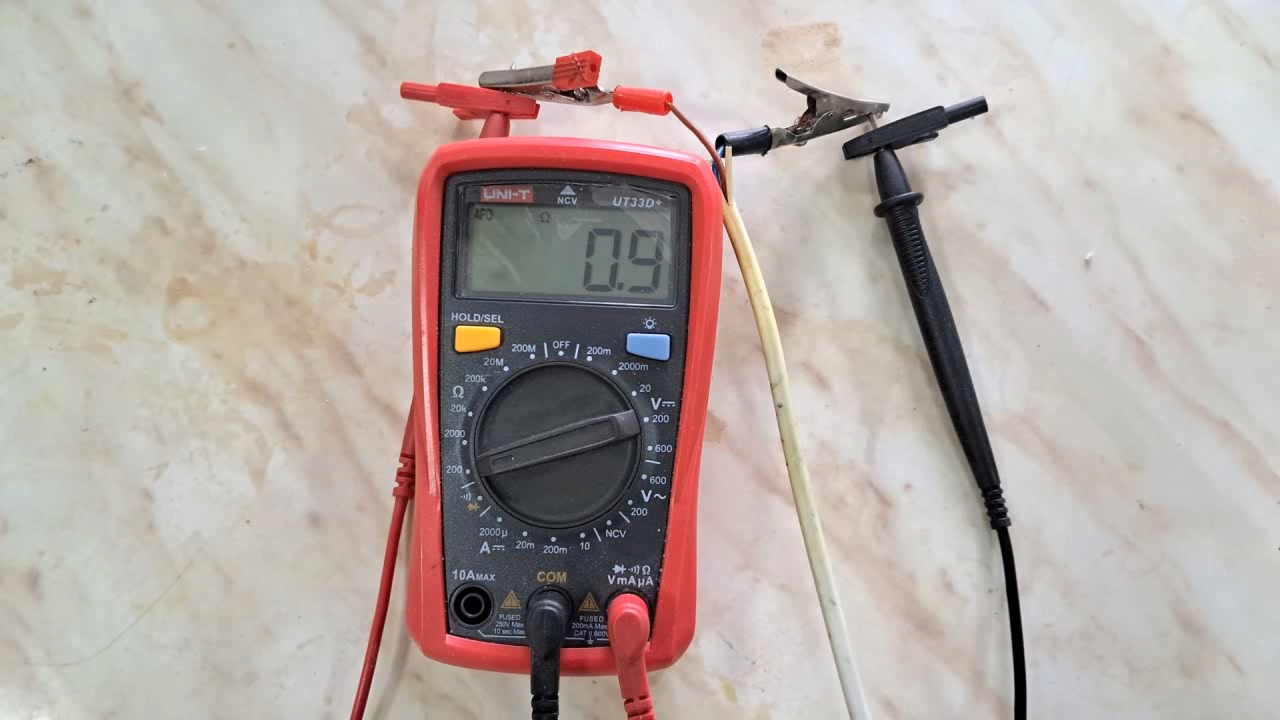
|
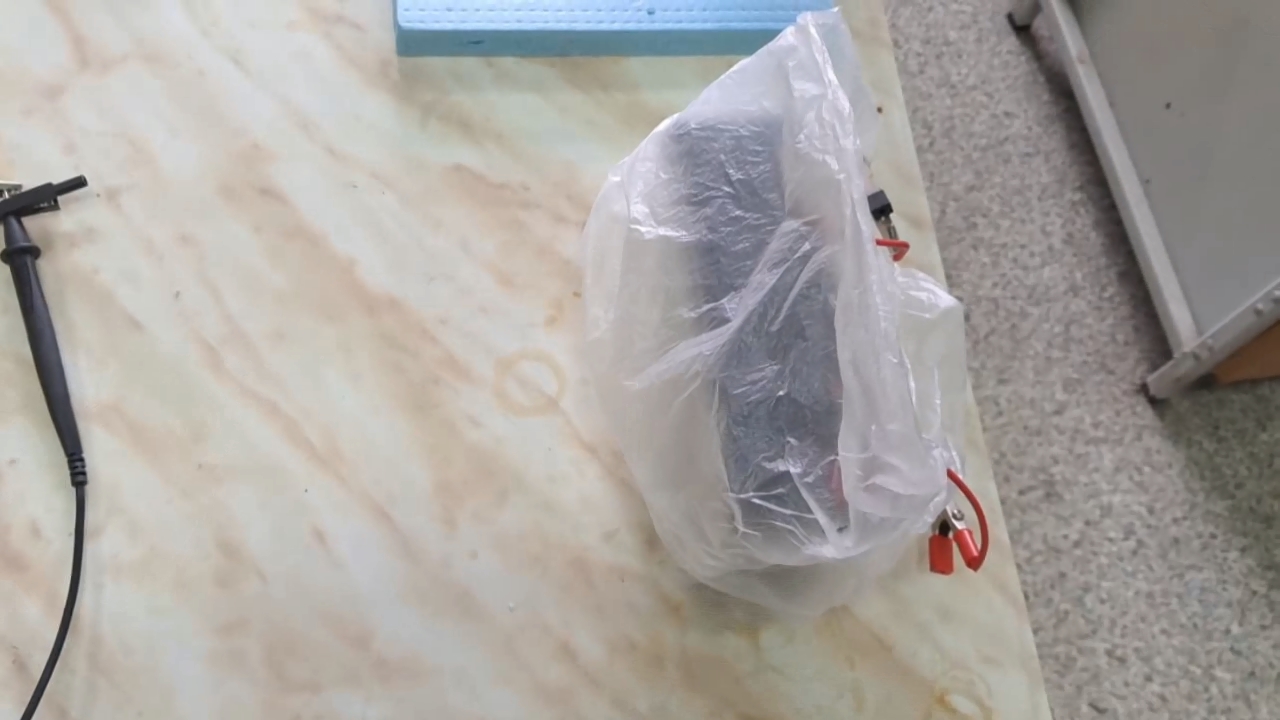
|
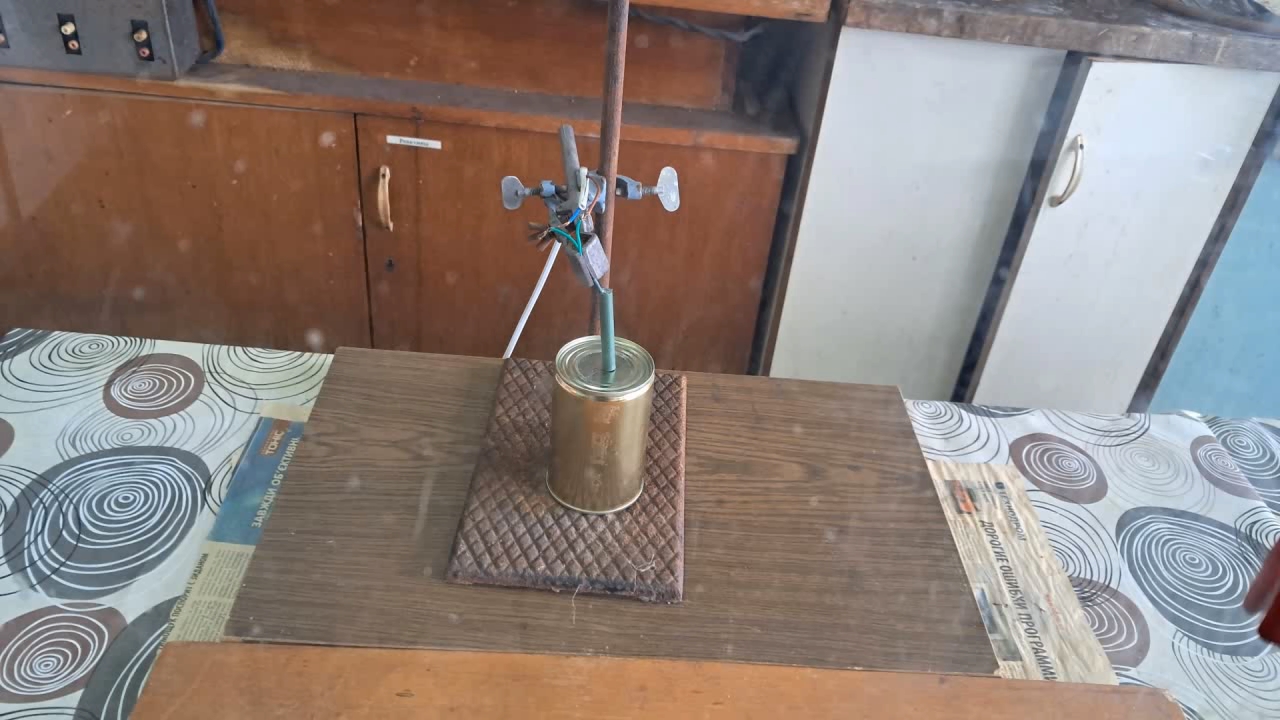
|
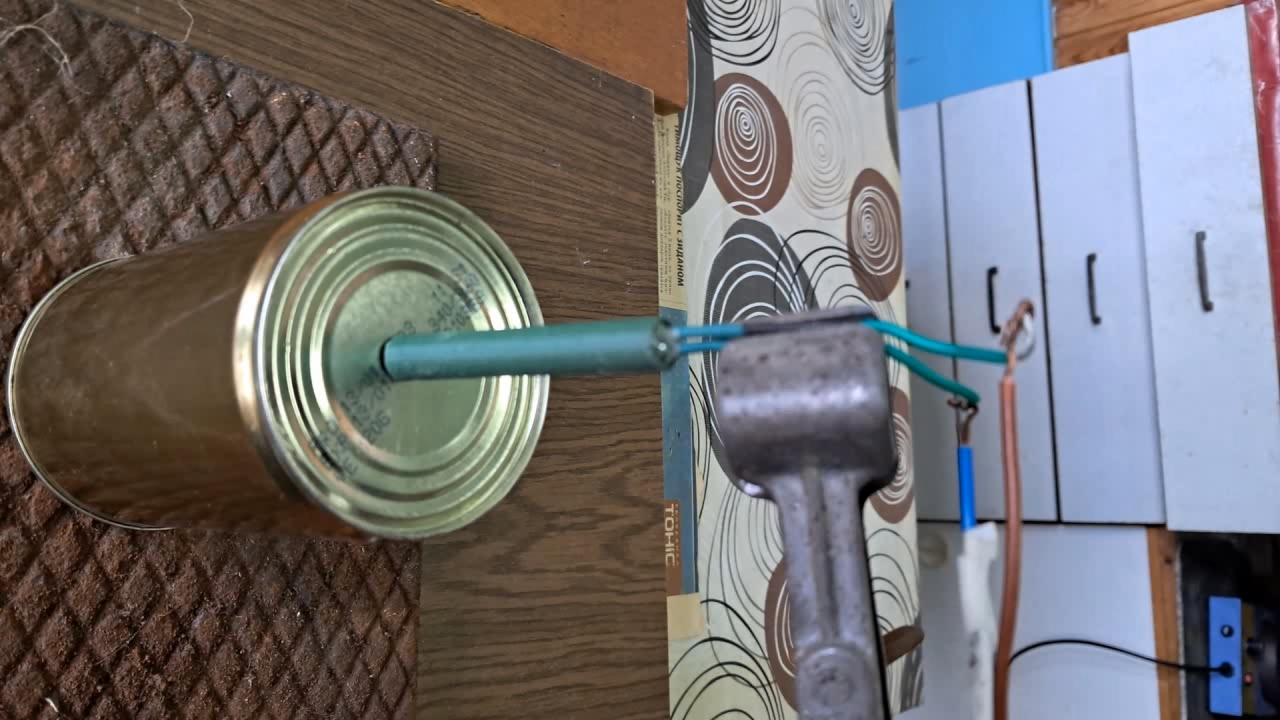
|
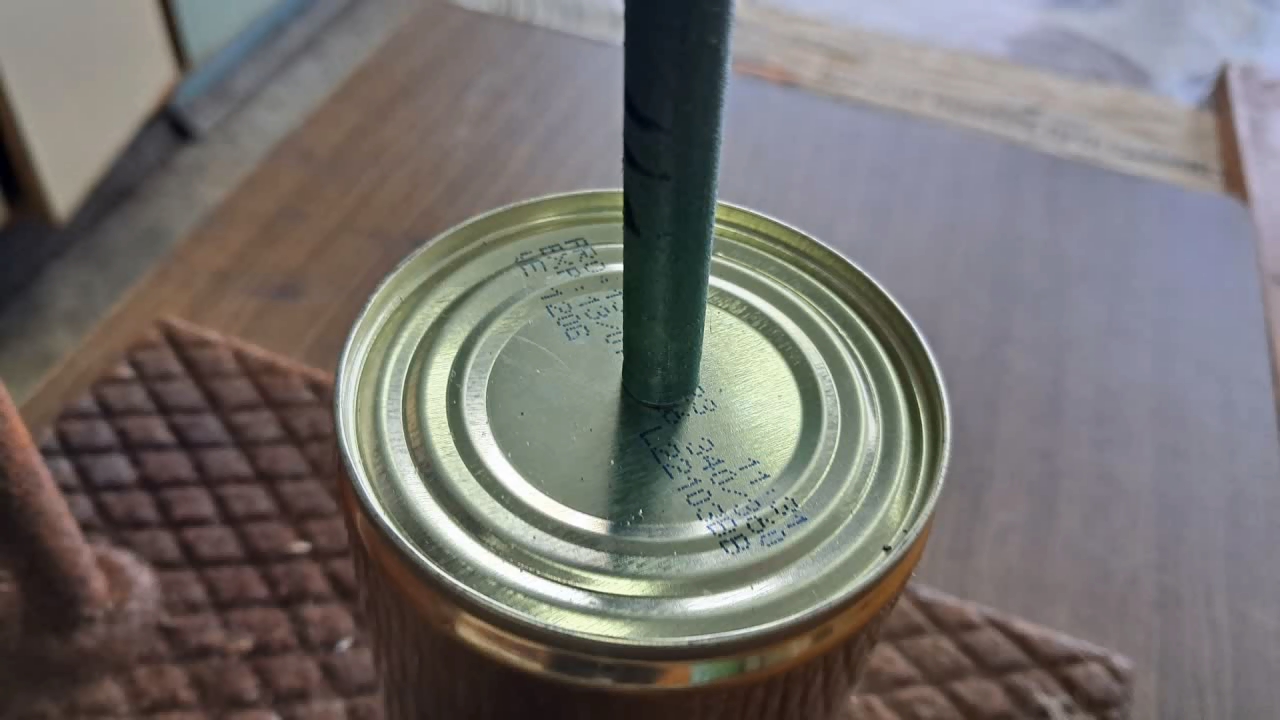
|
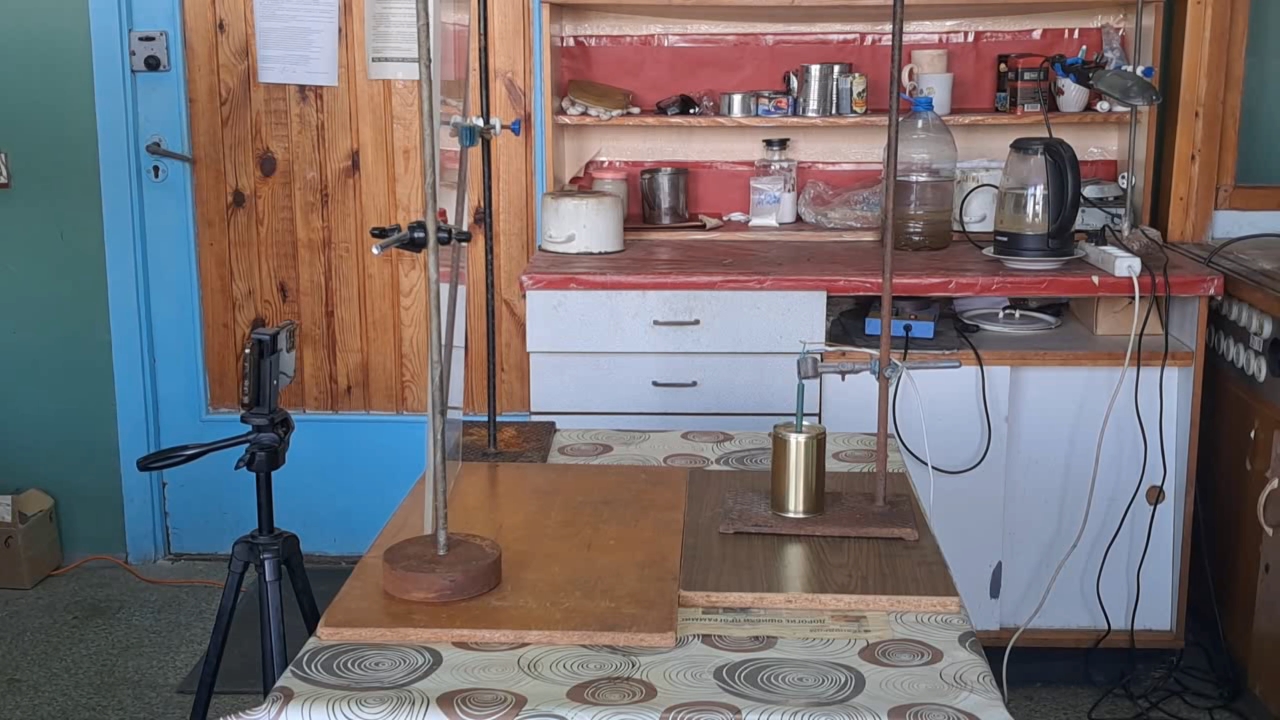
|
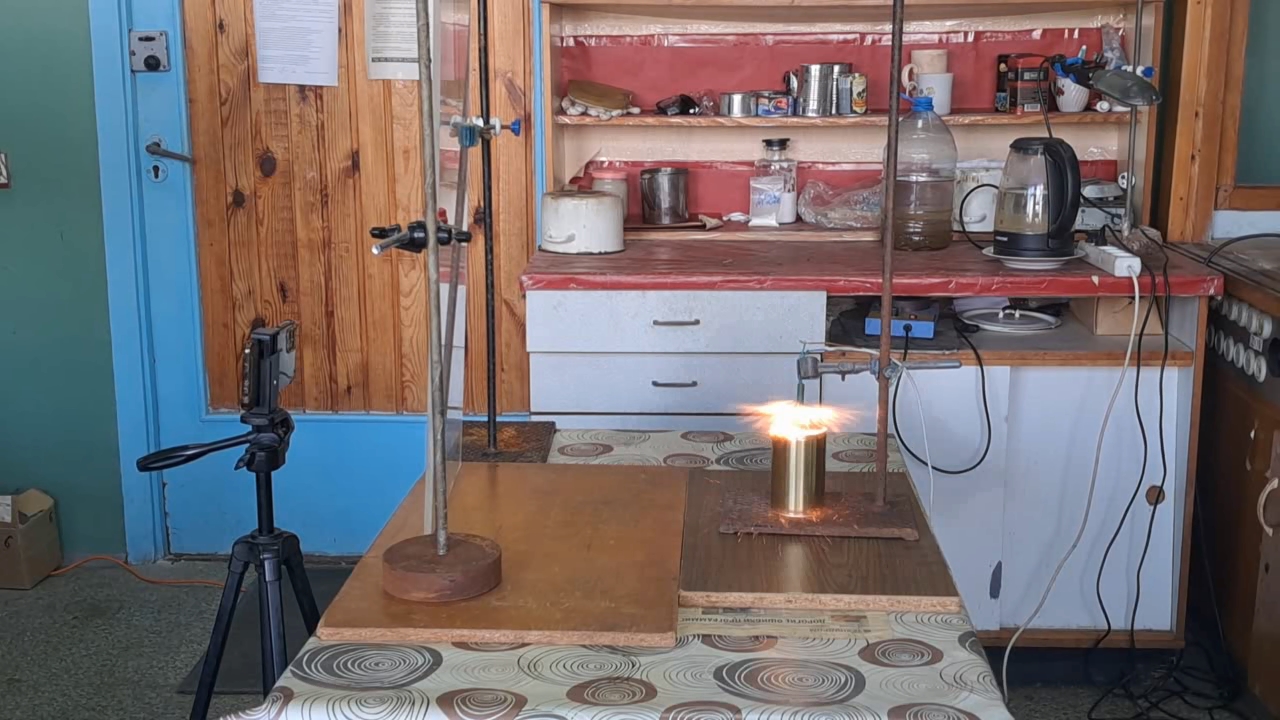
|
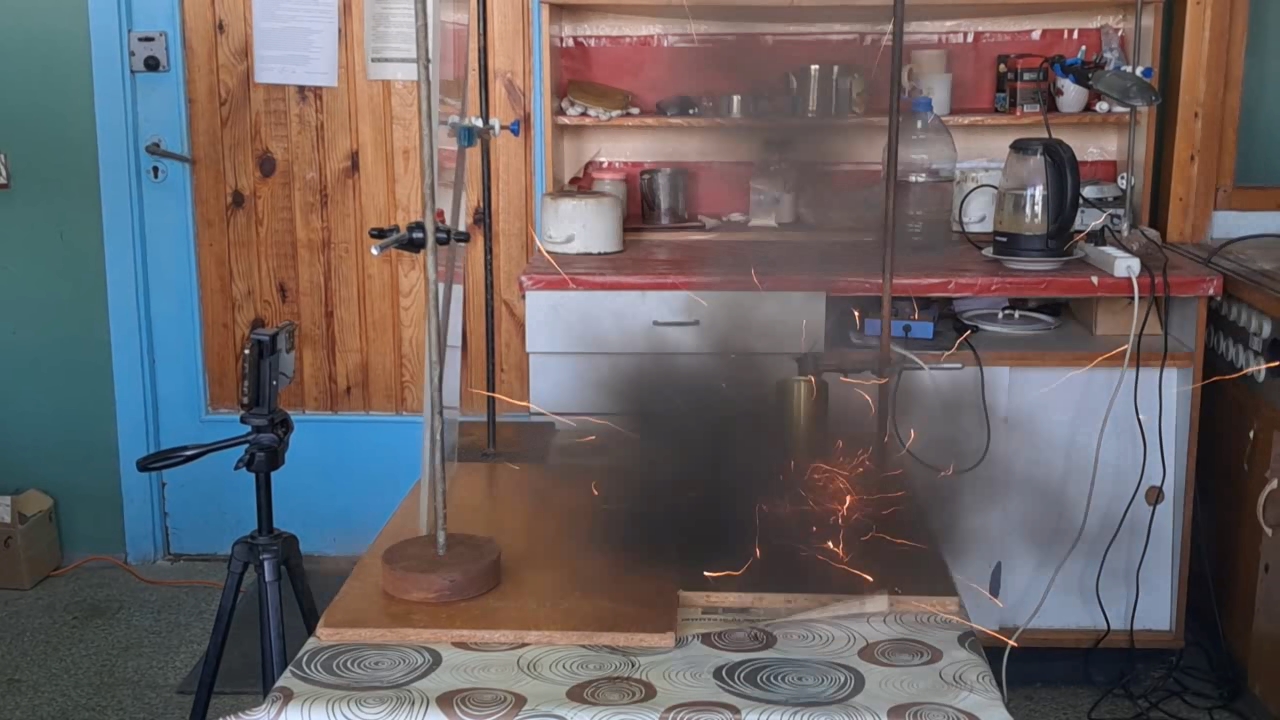
|
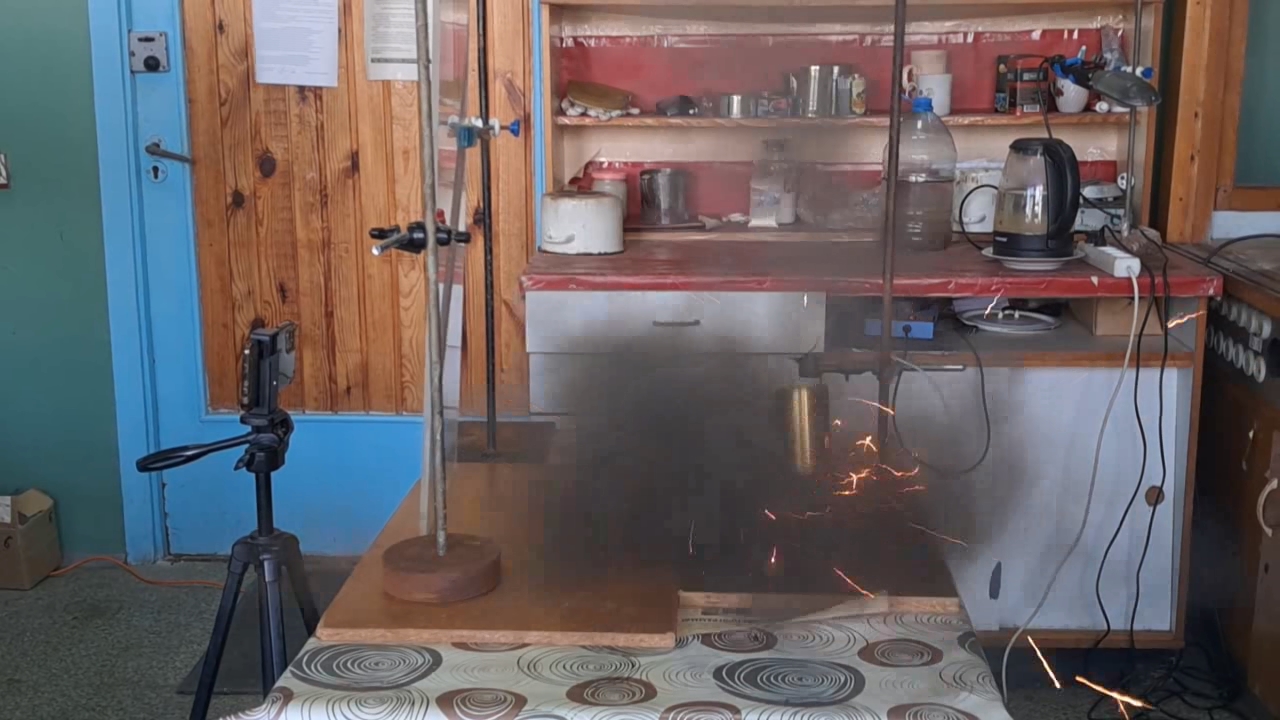
|
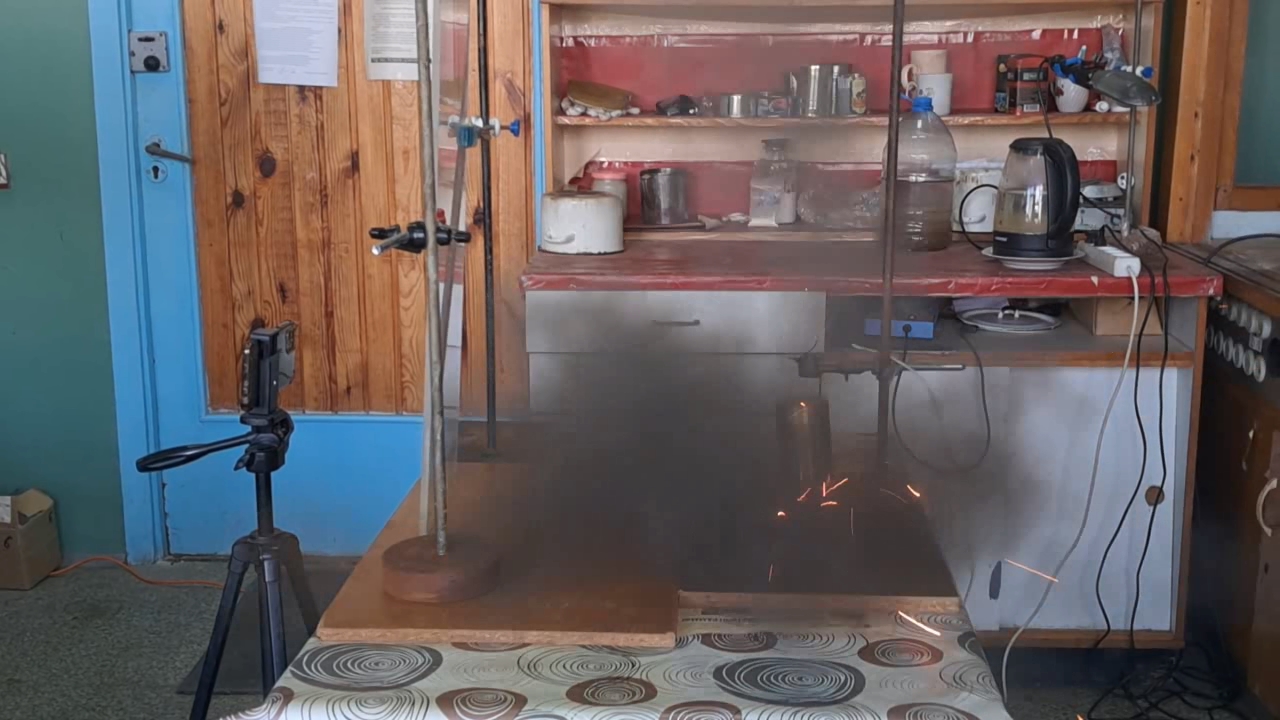
|
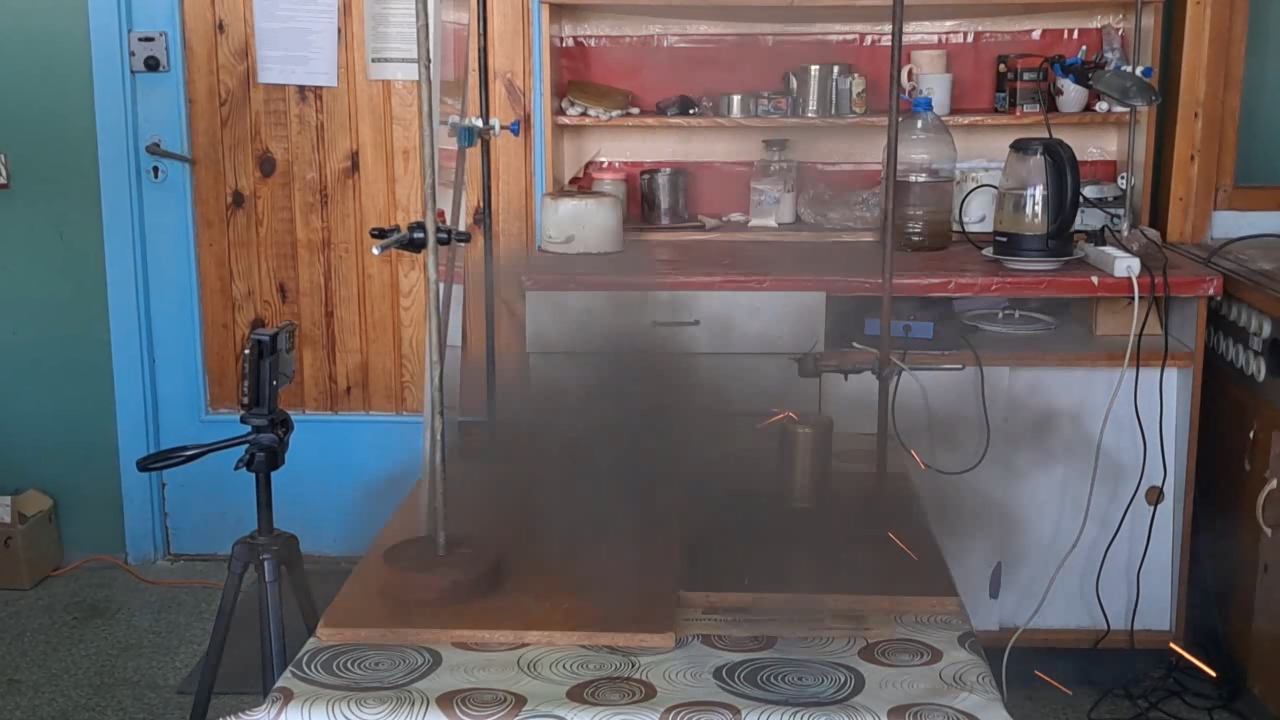
|
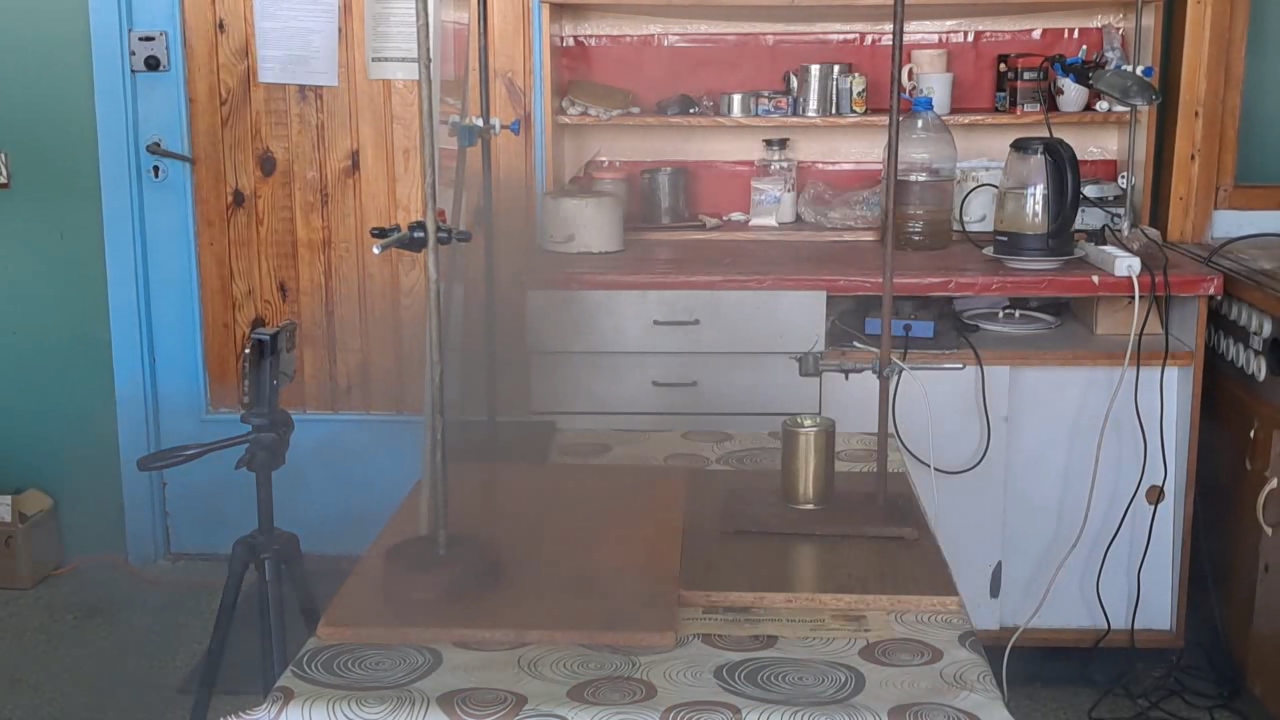
|
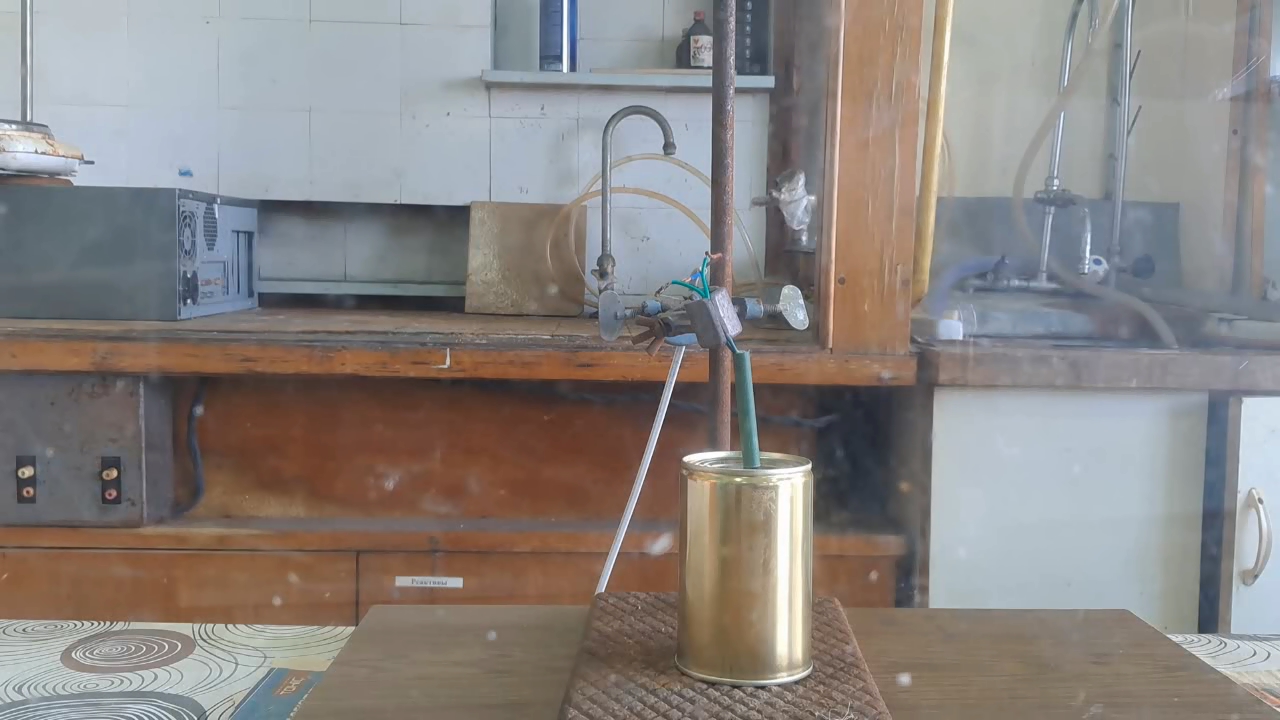
|
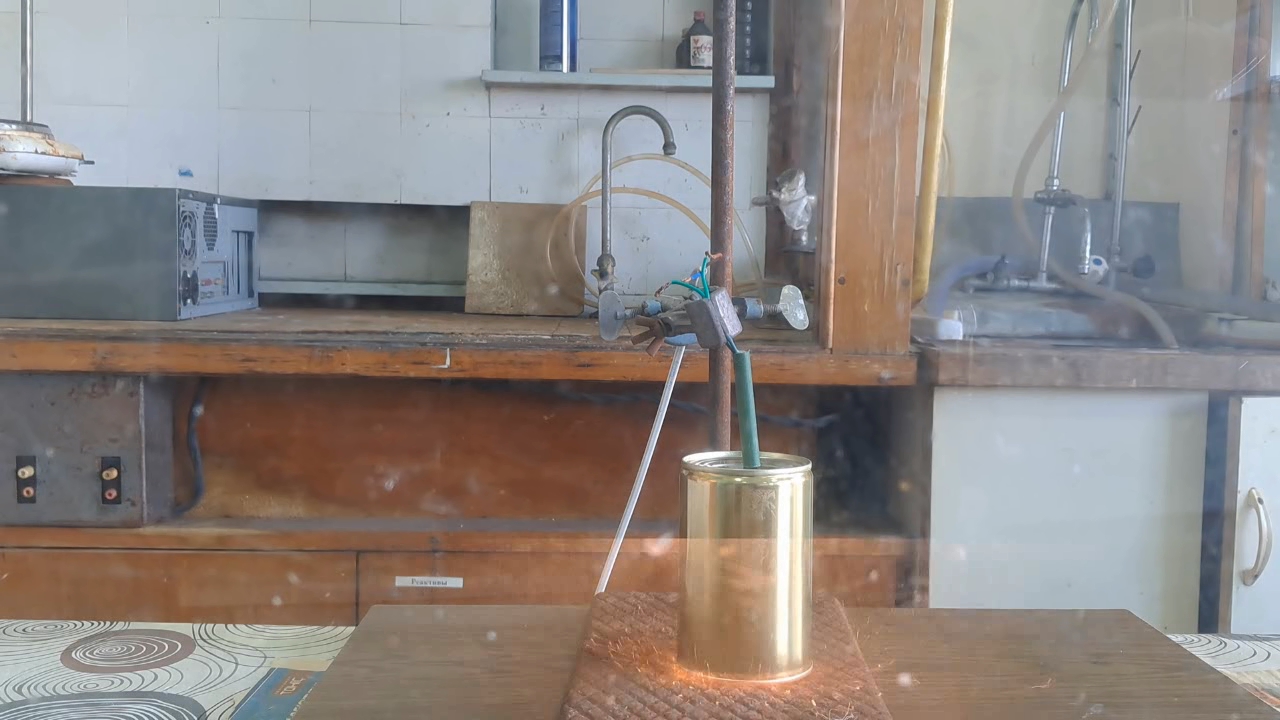
|
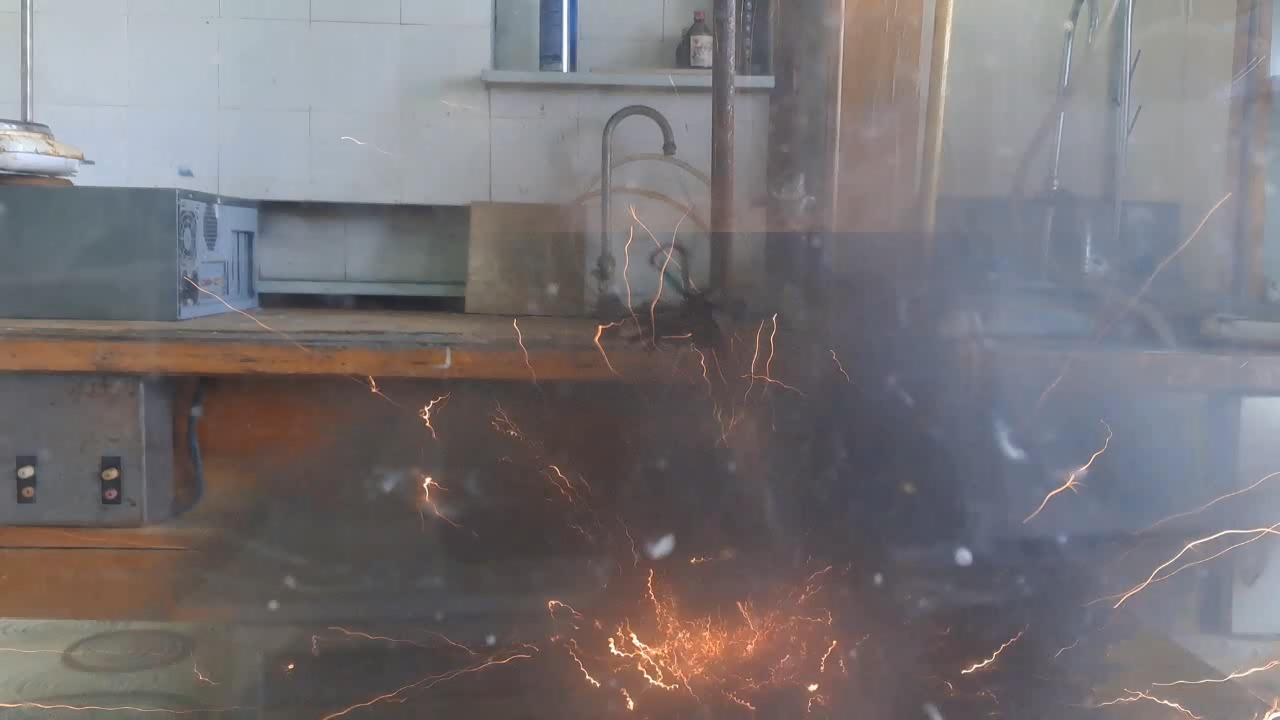
|
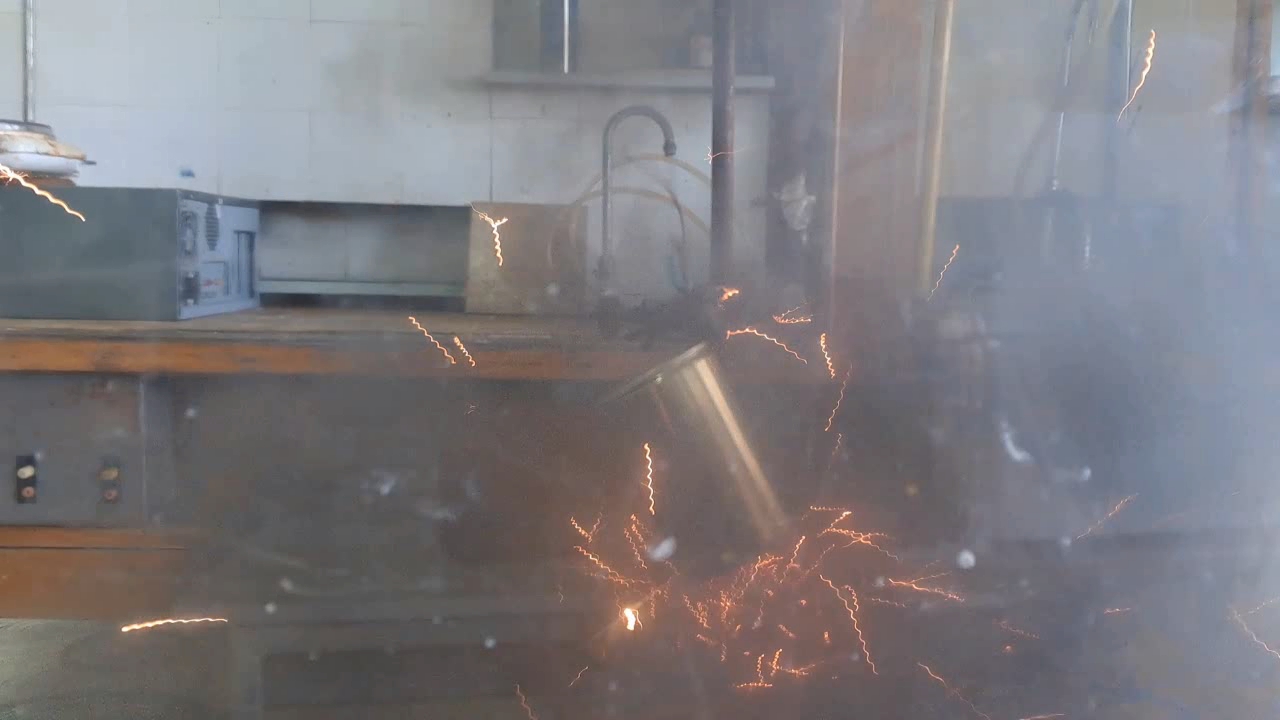
|
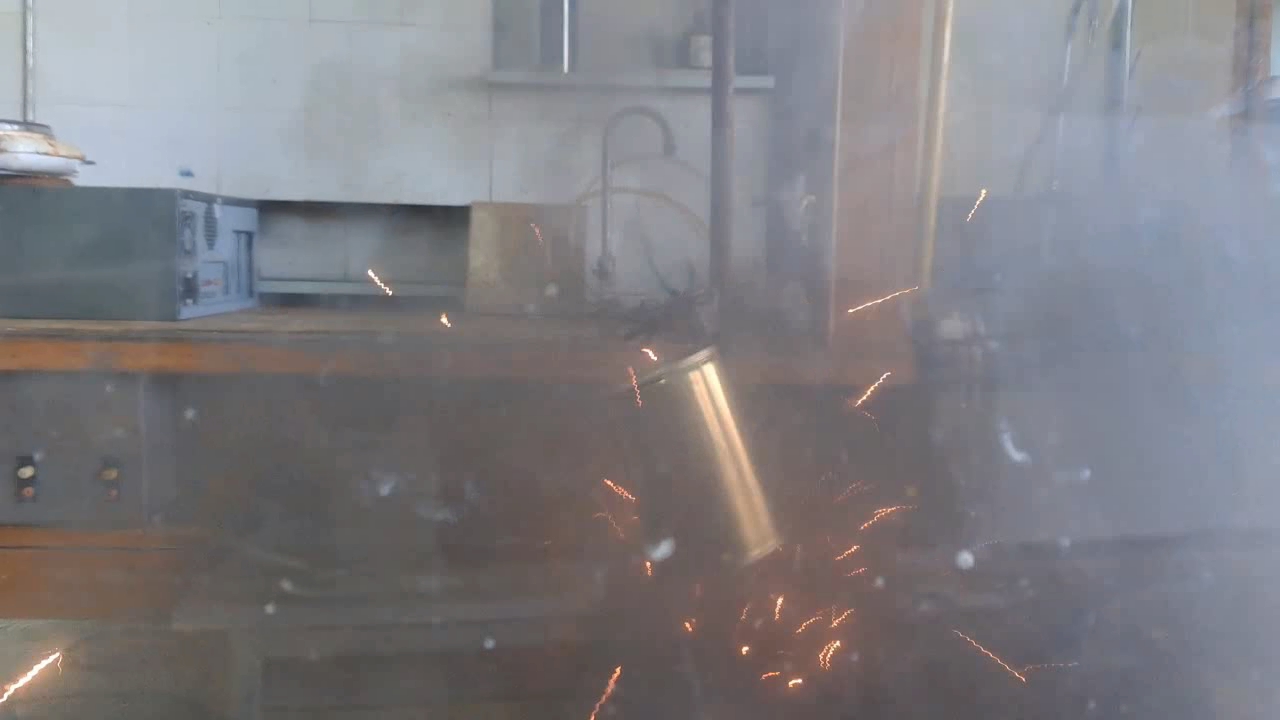
|
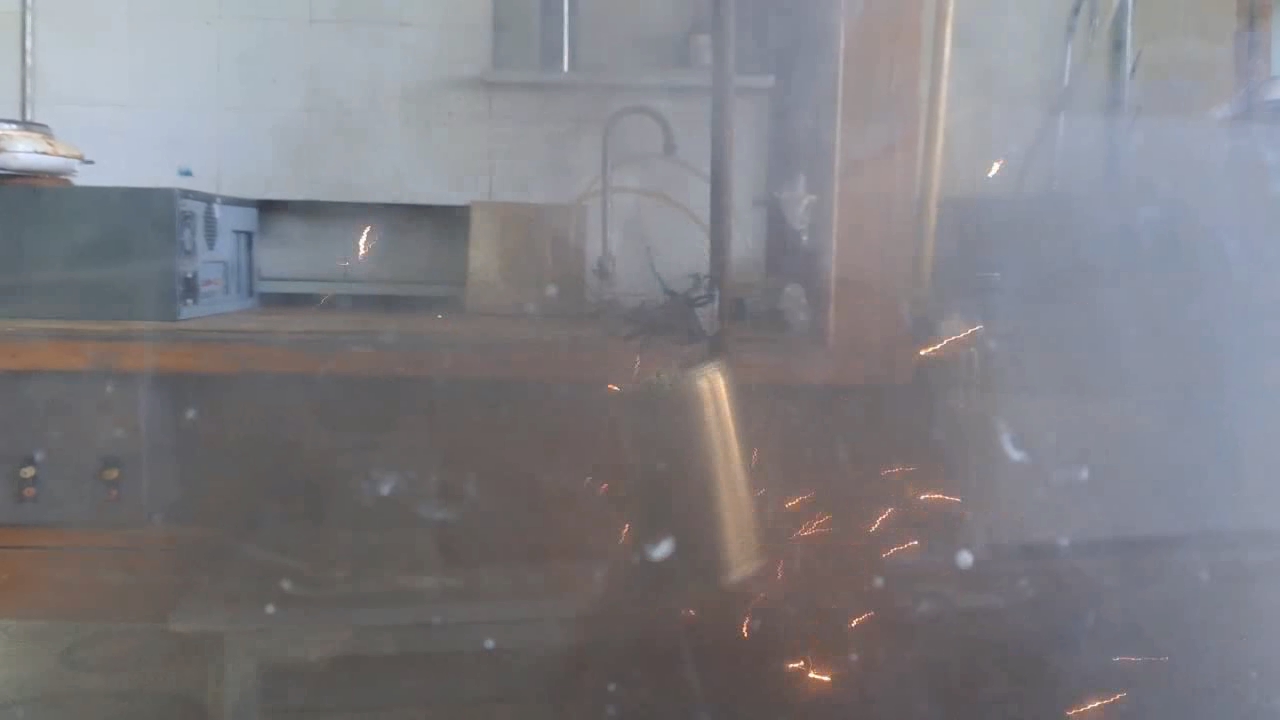
|
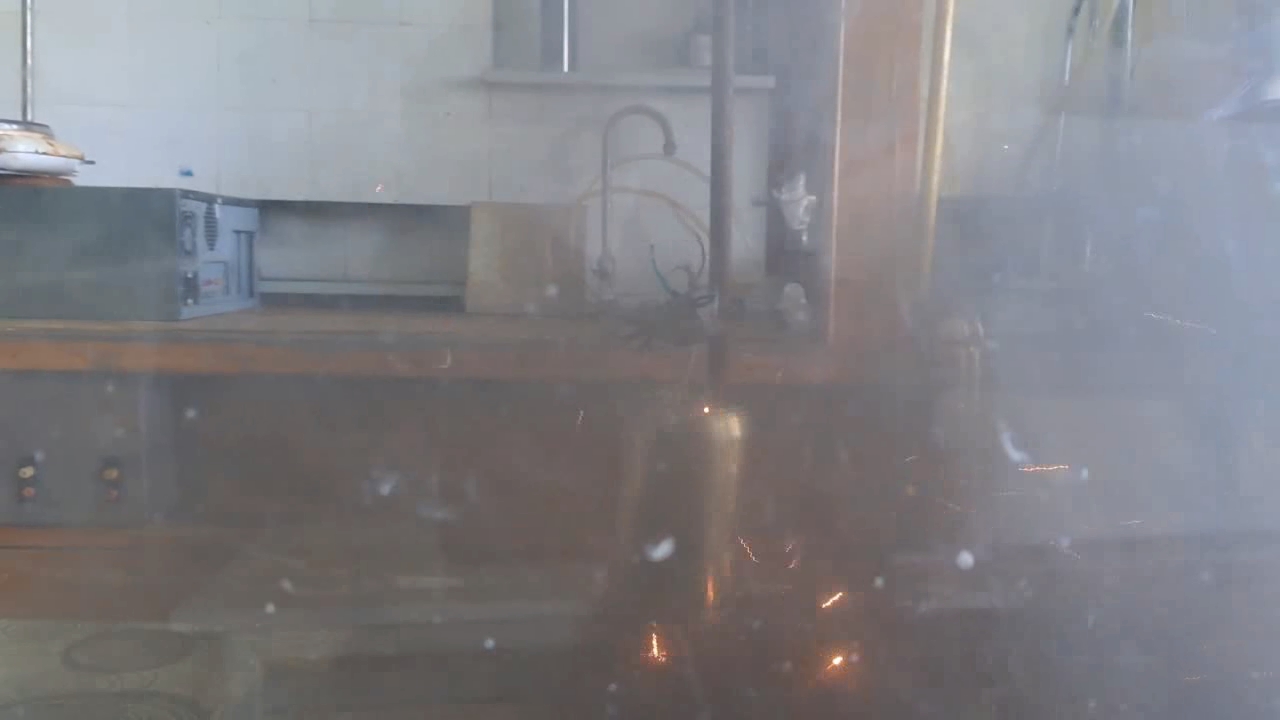
|
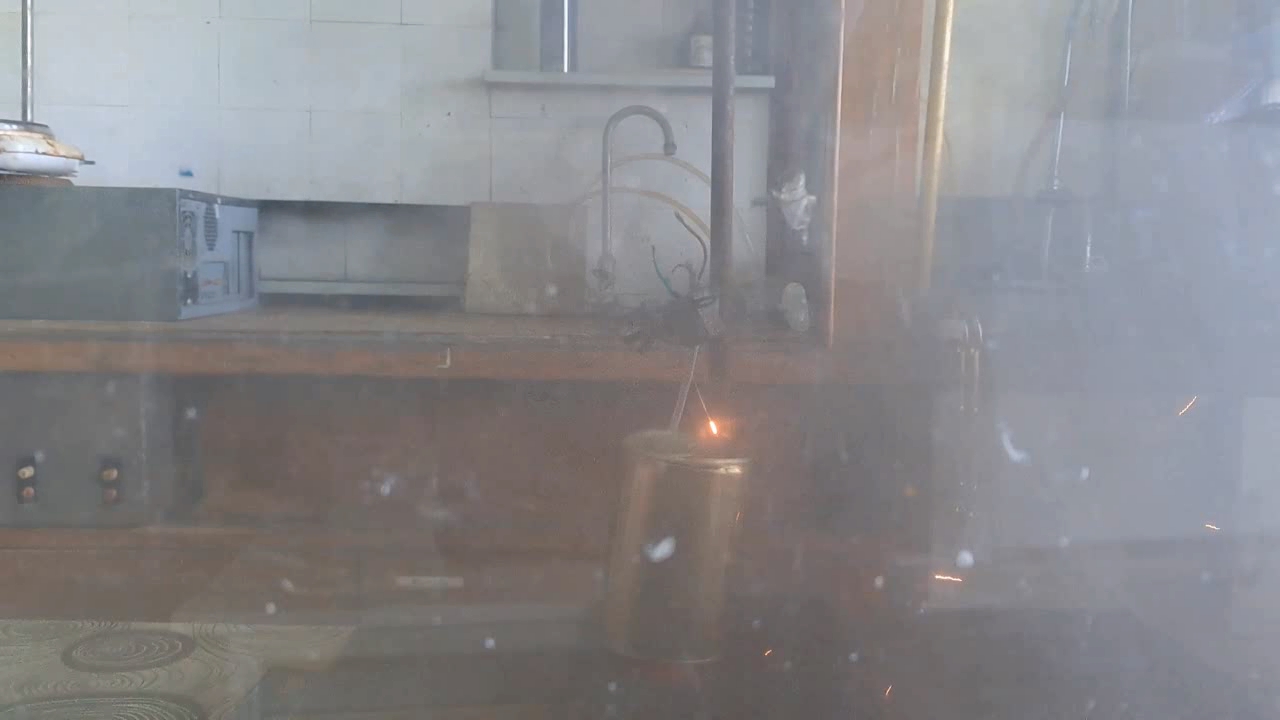
|
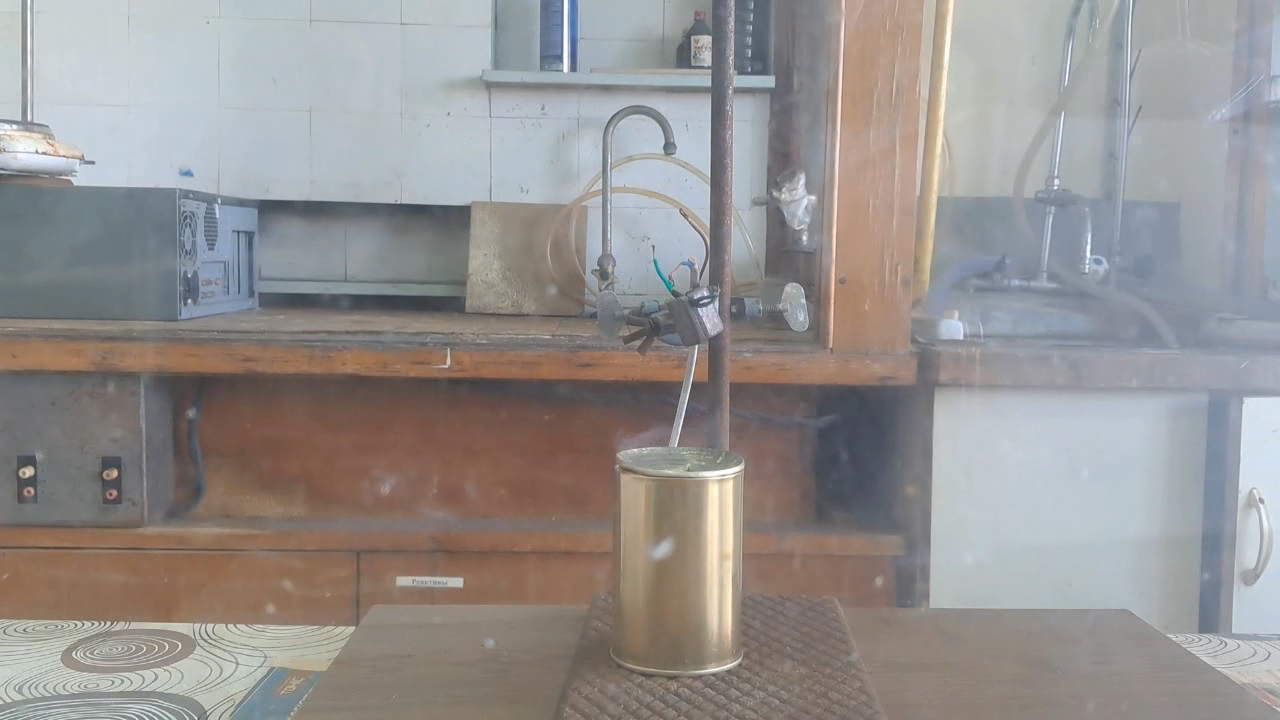
|
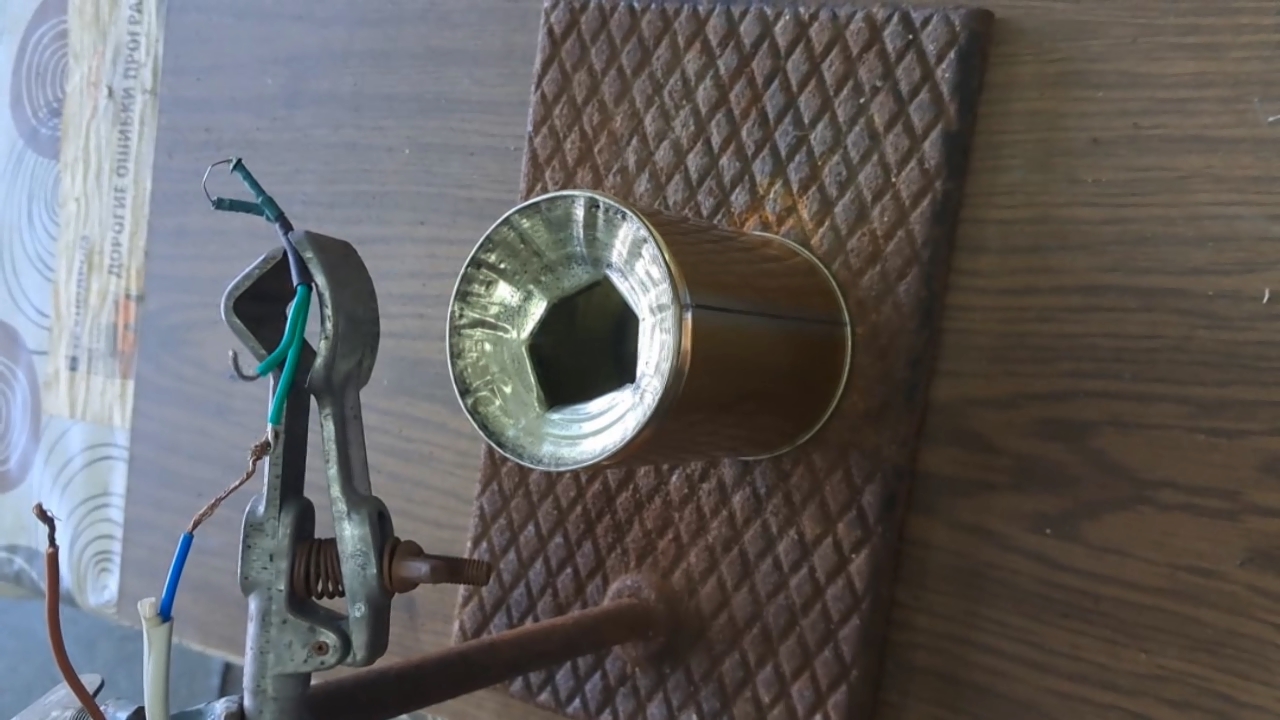
|
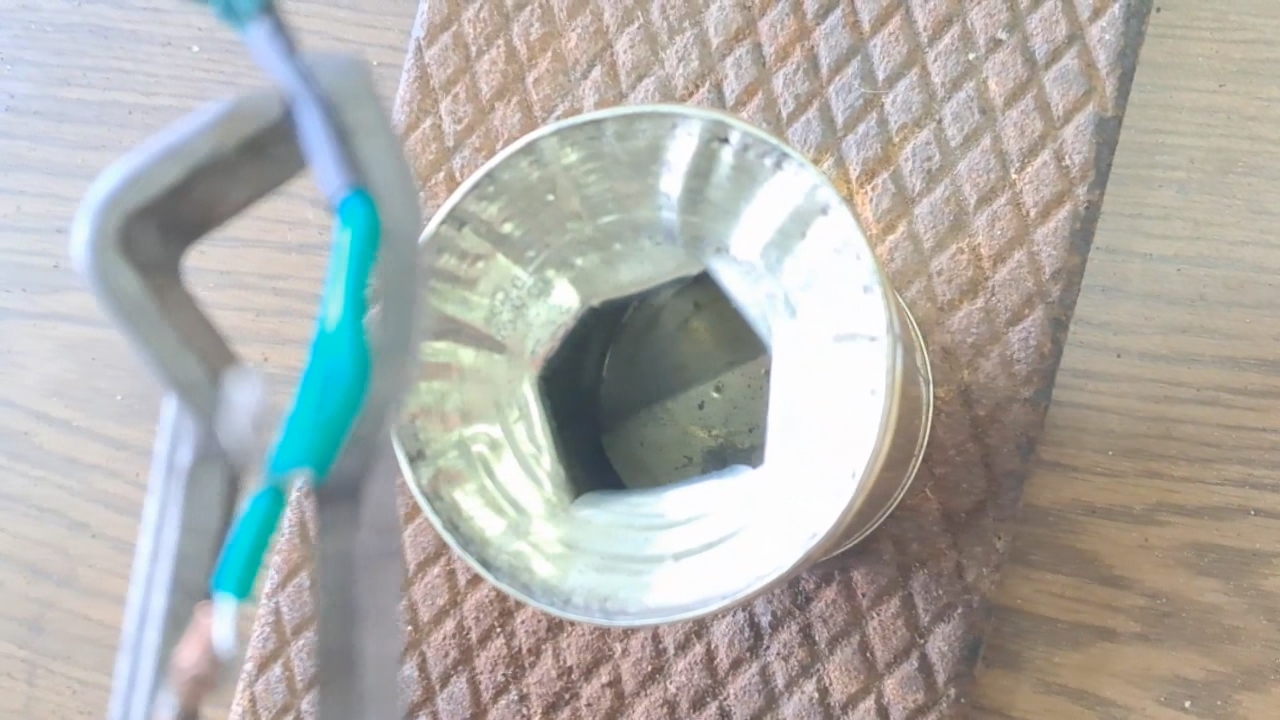
|
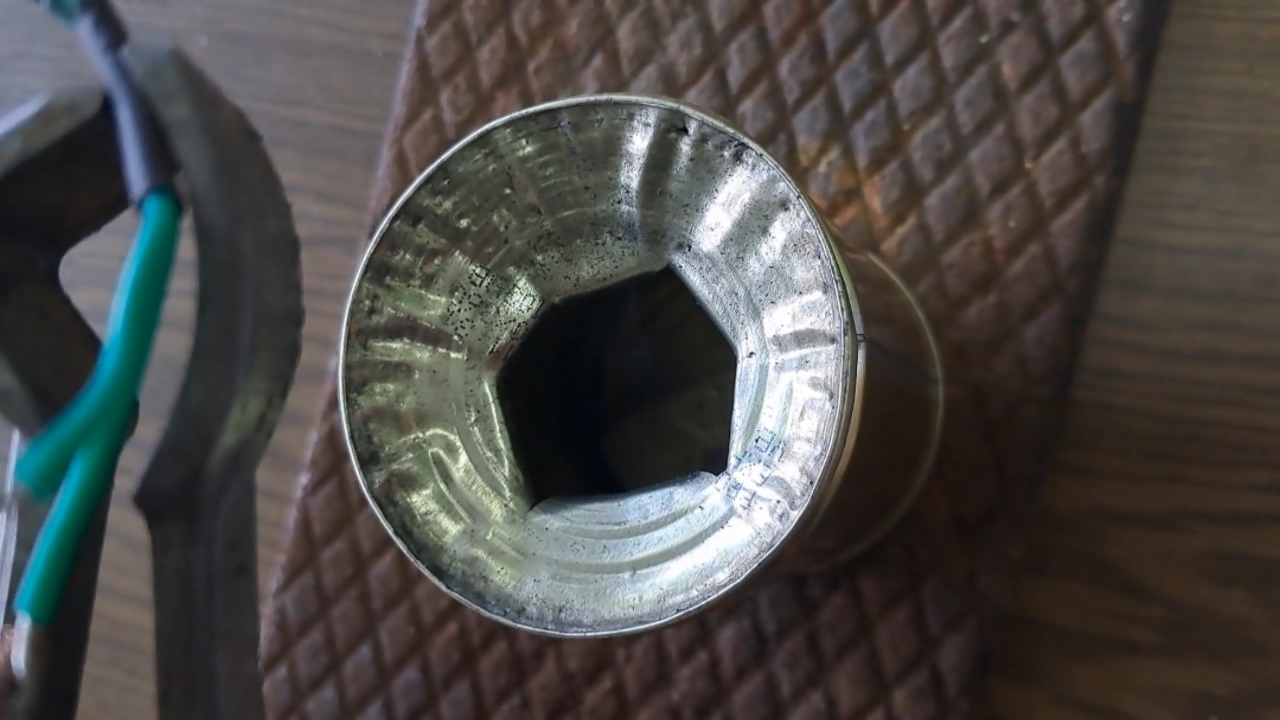
|
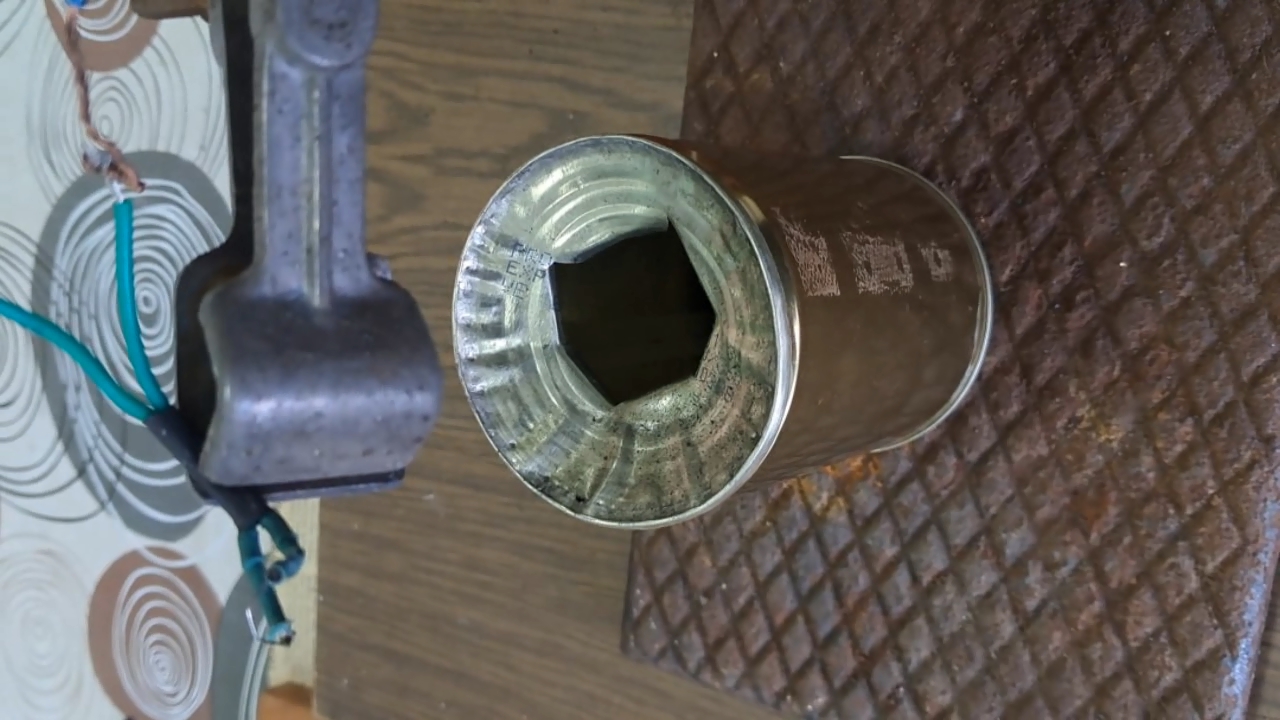
|
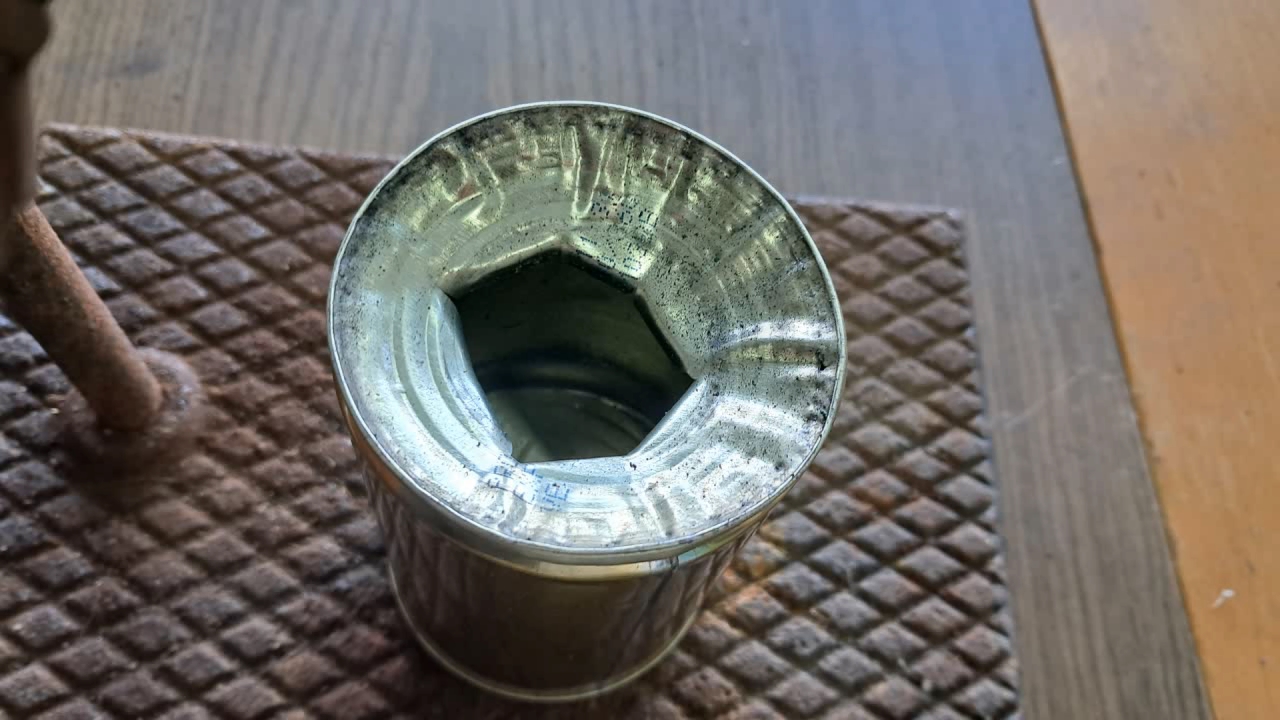
|
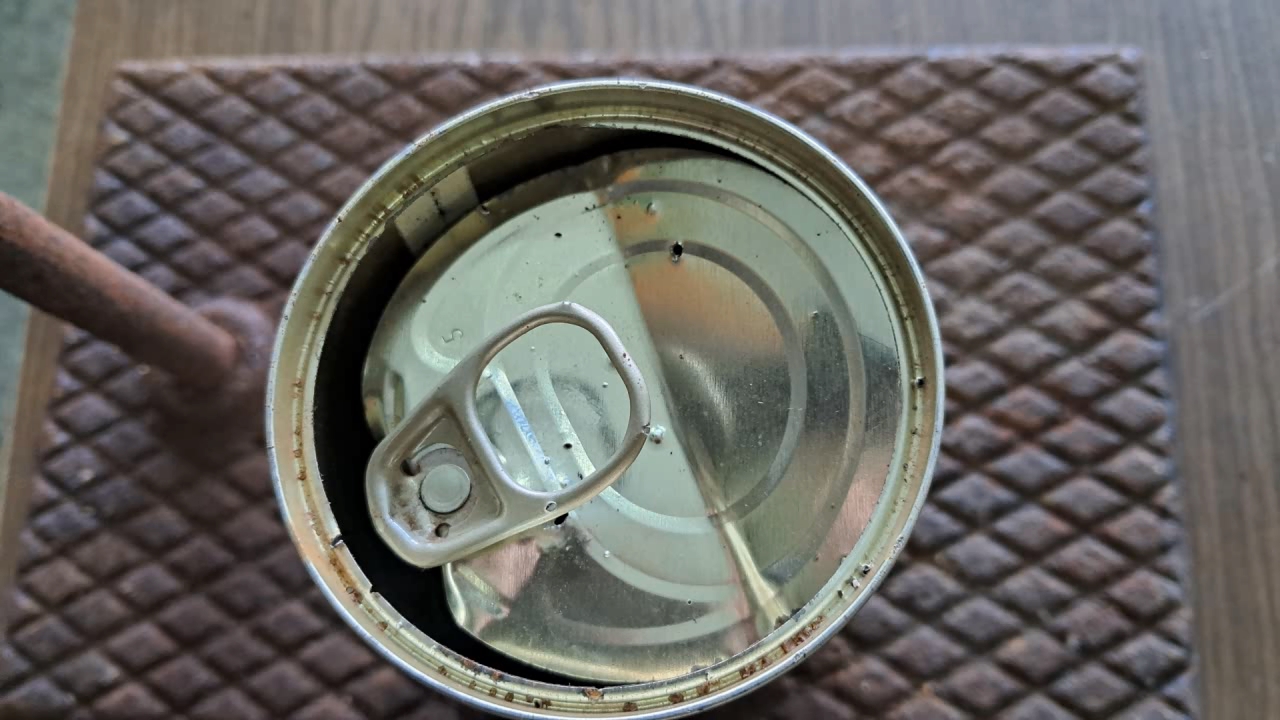
|
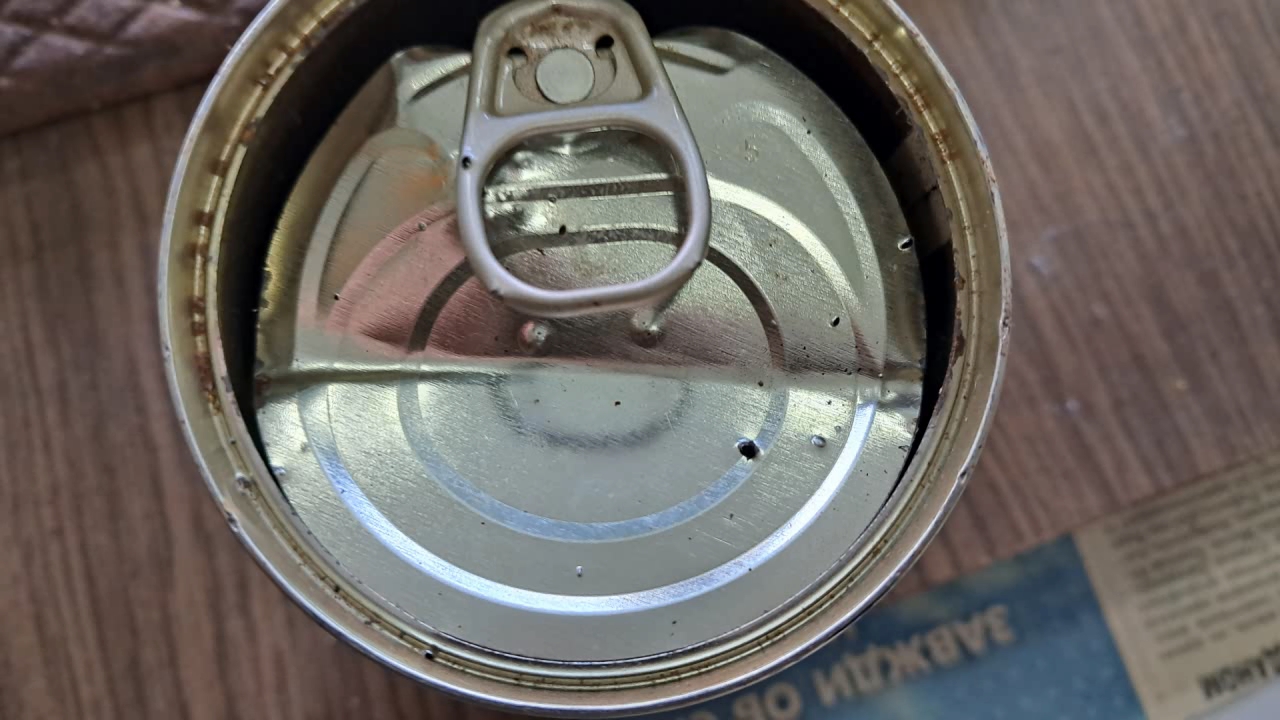
|
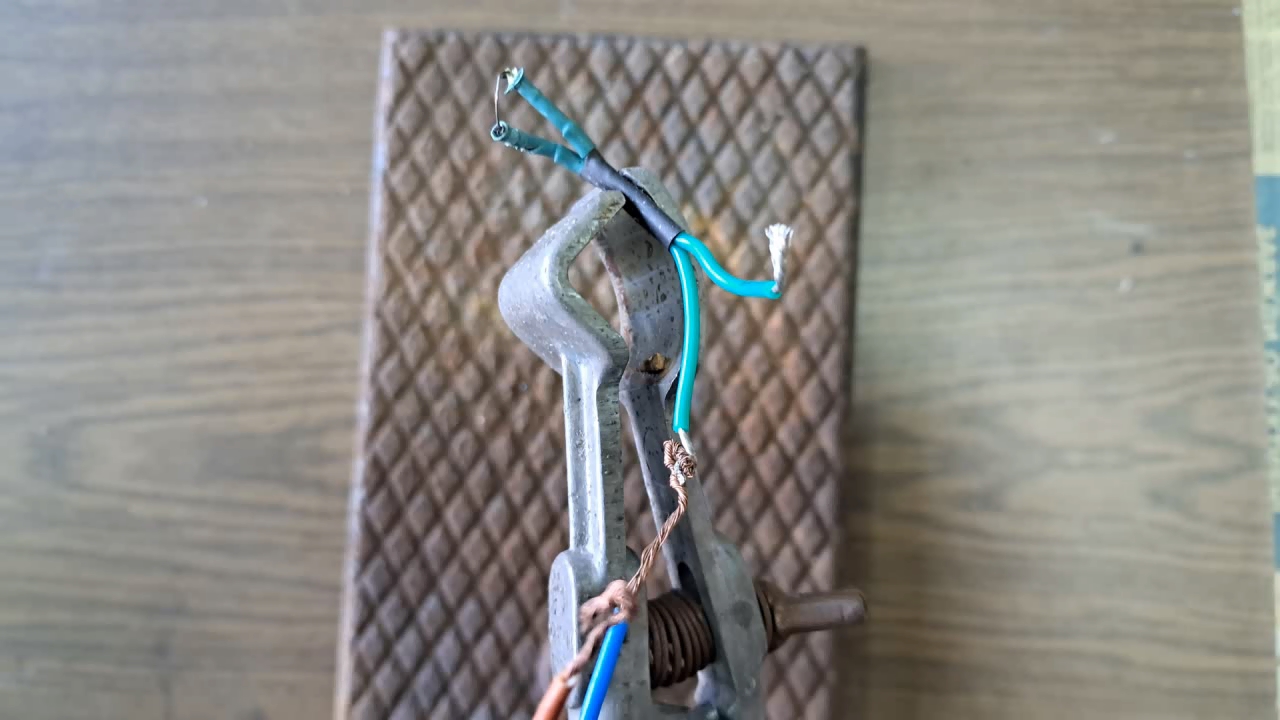
|